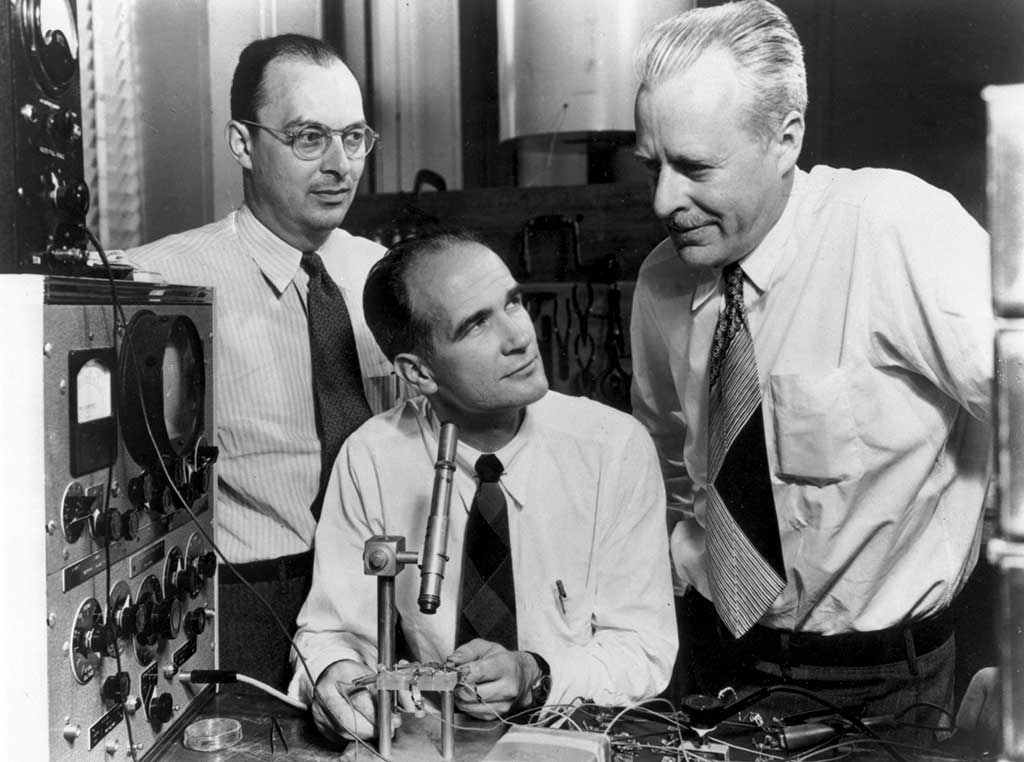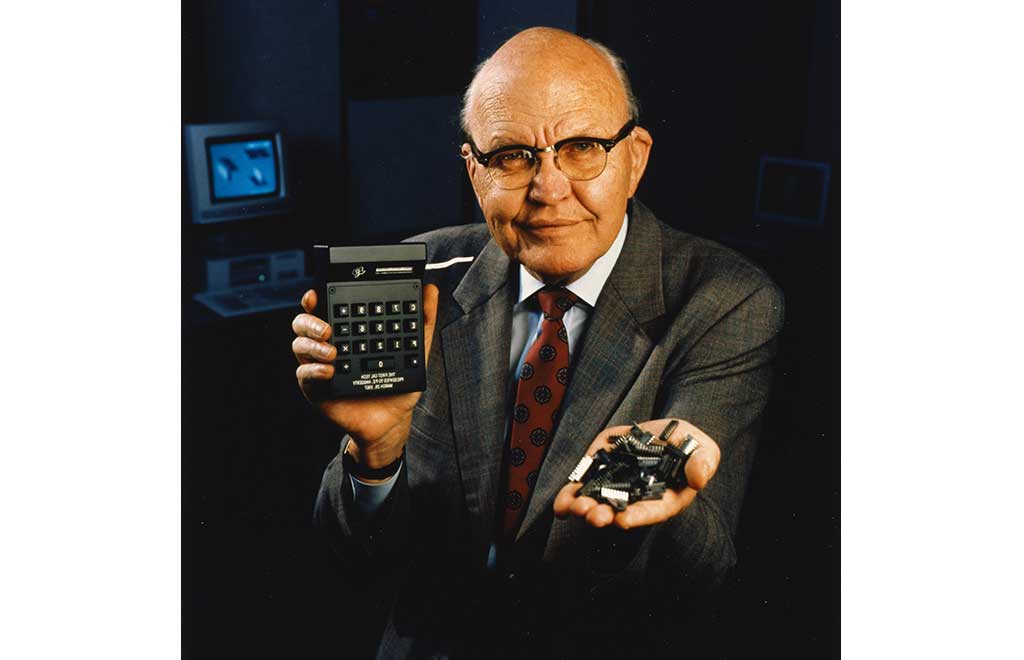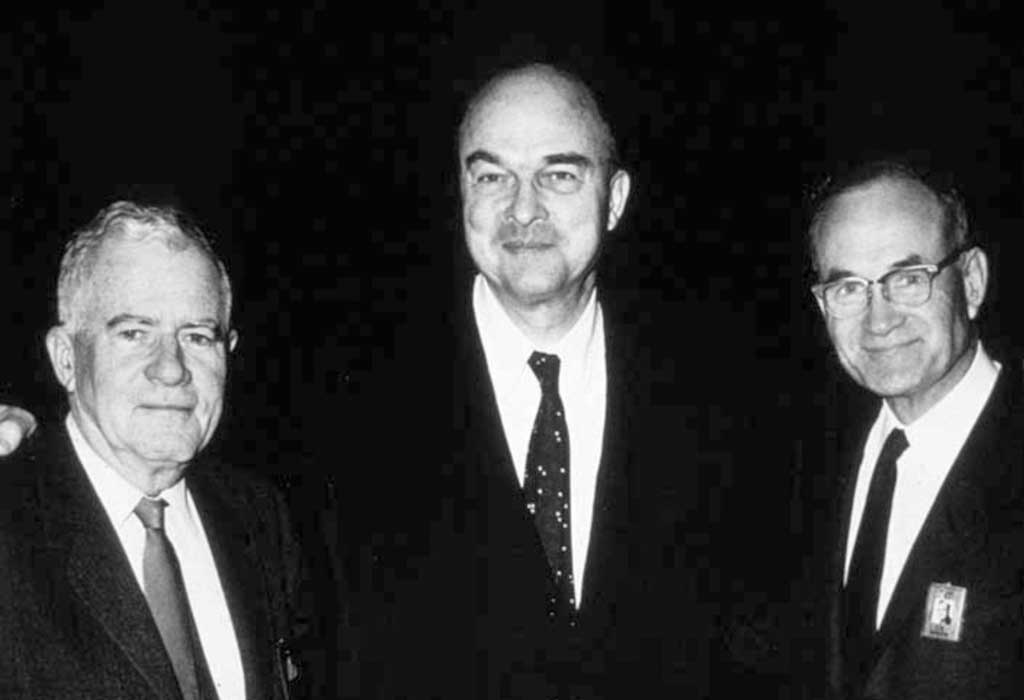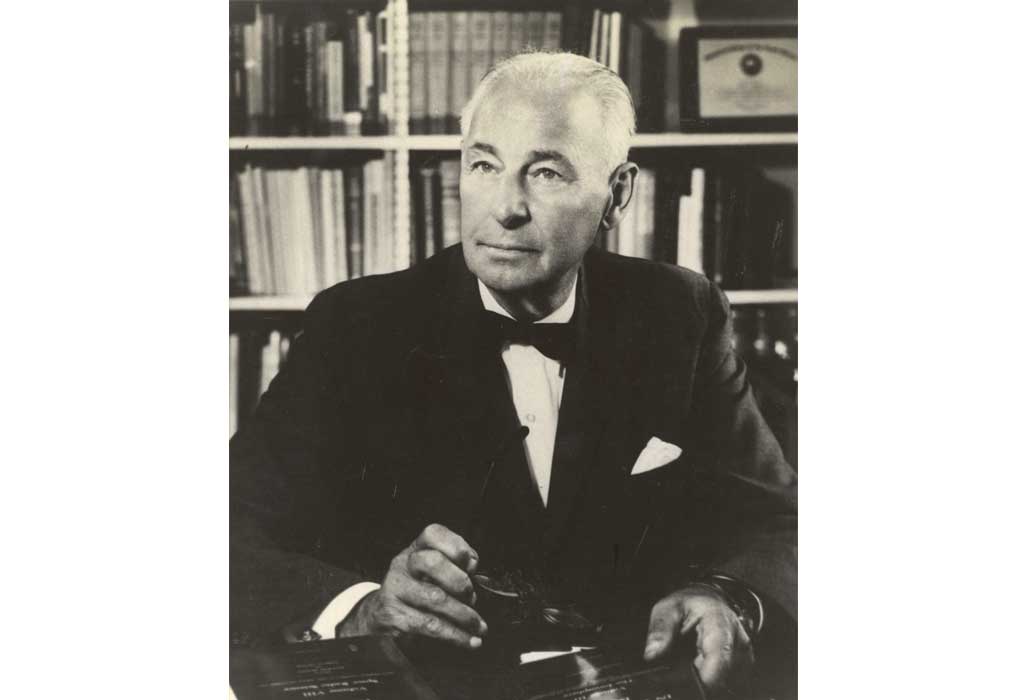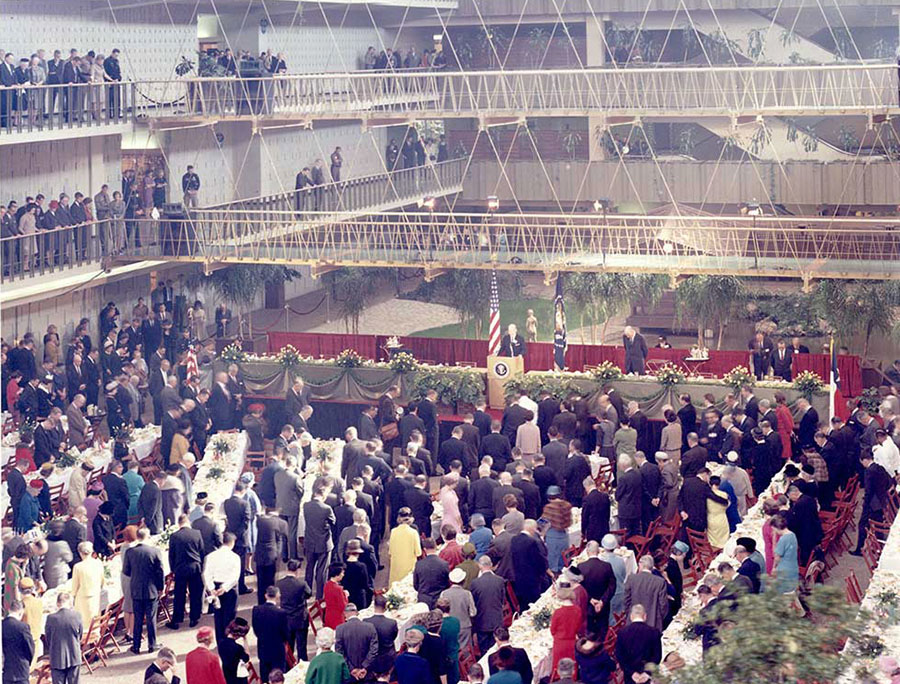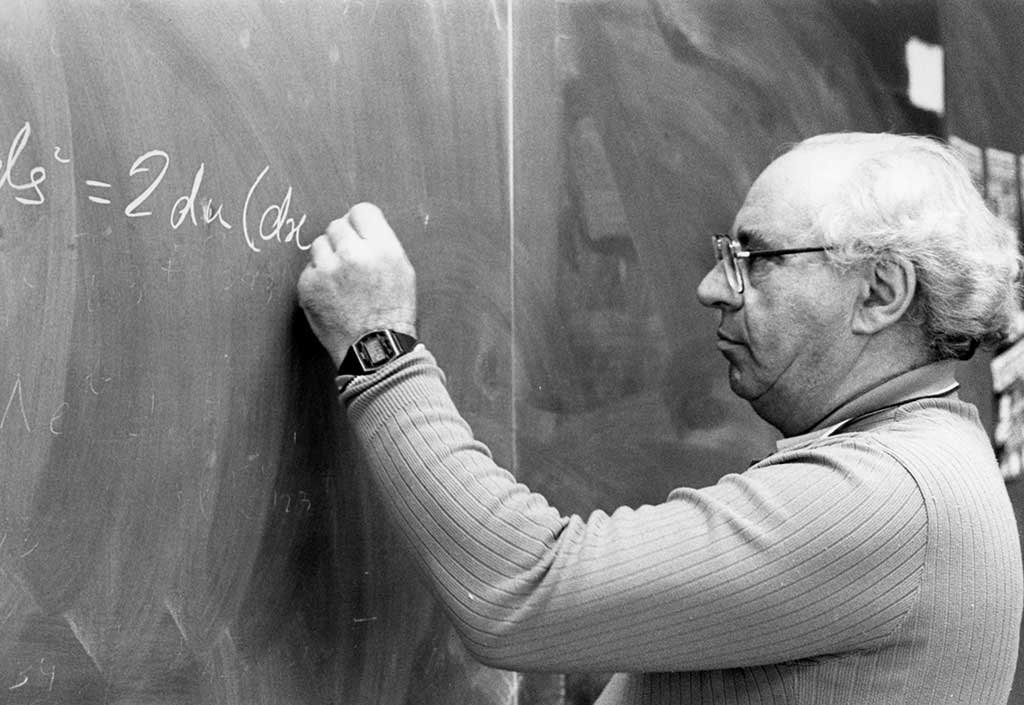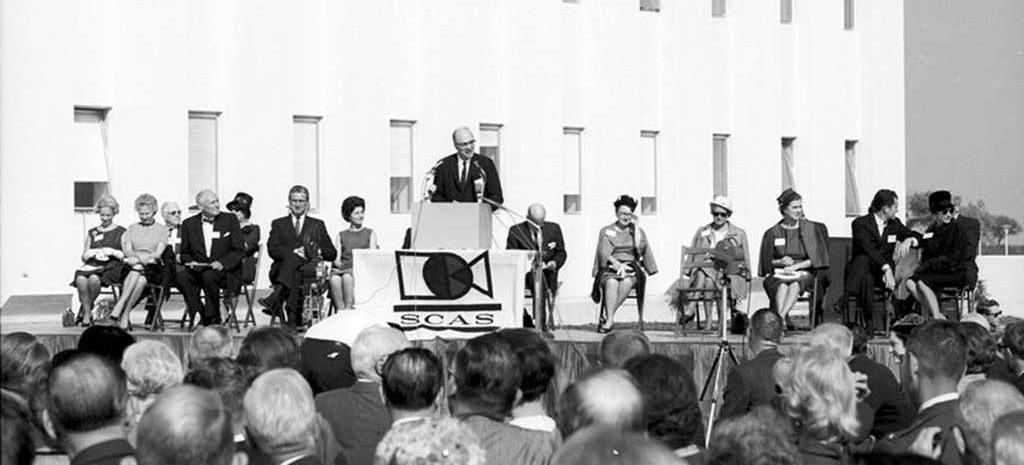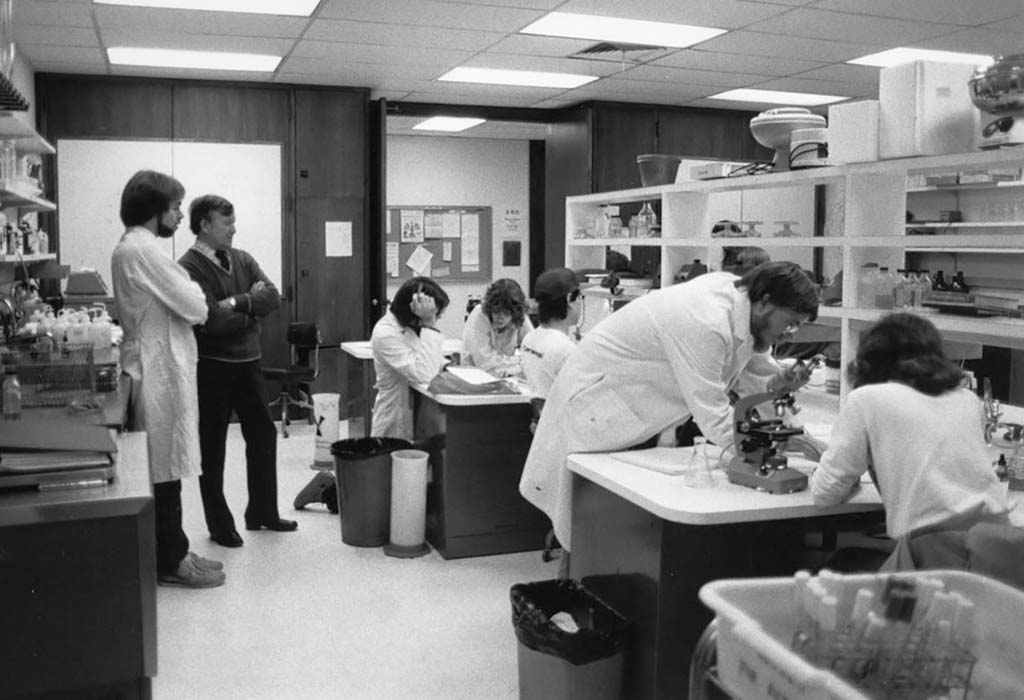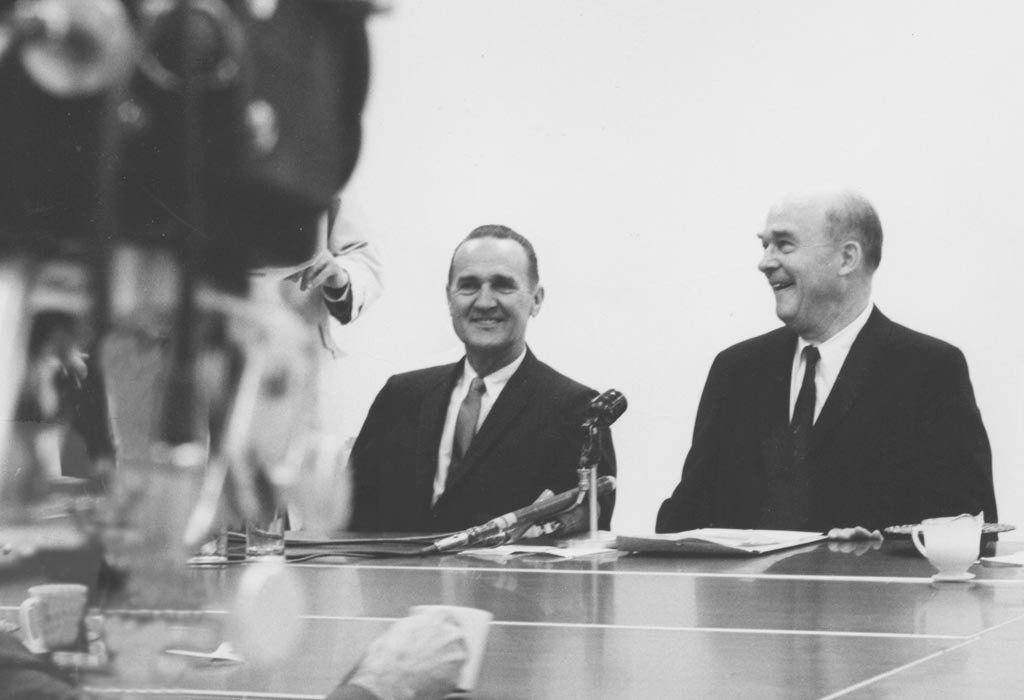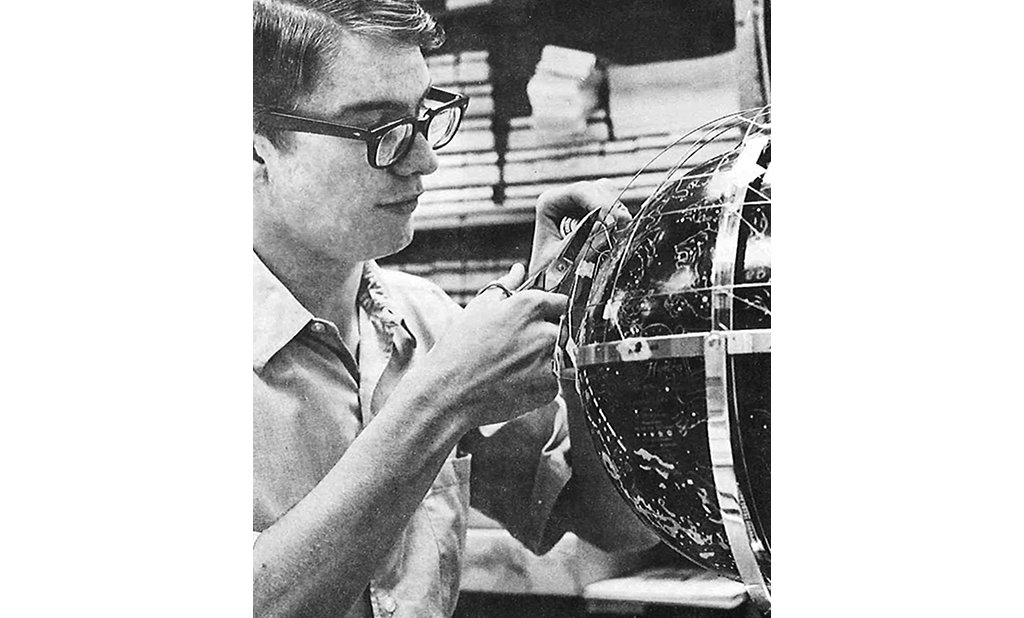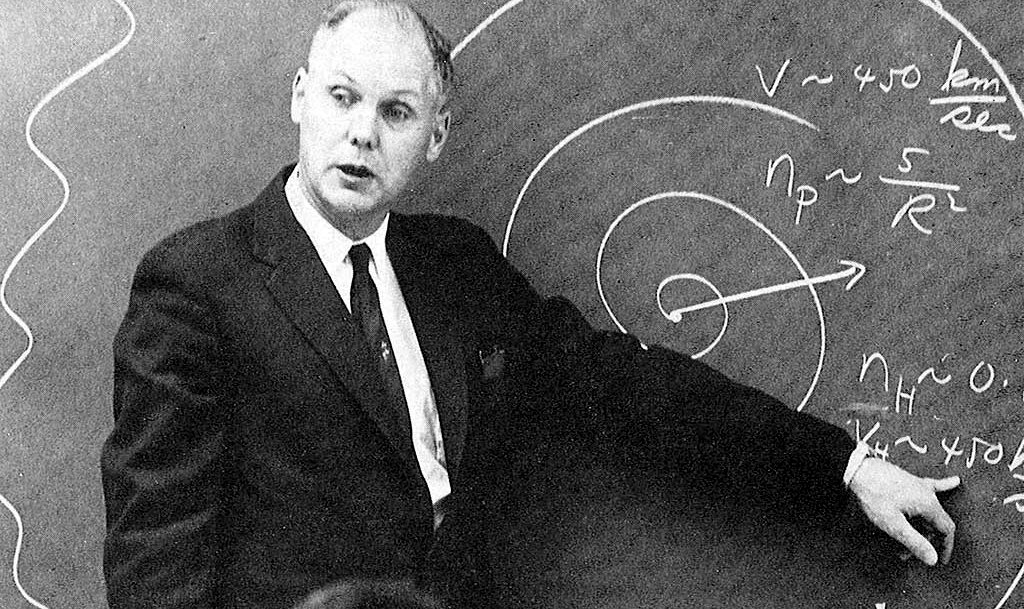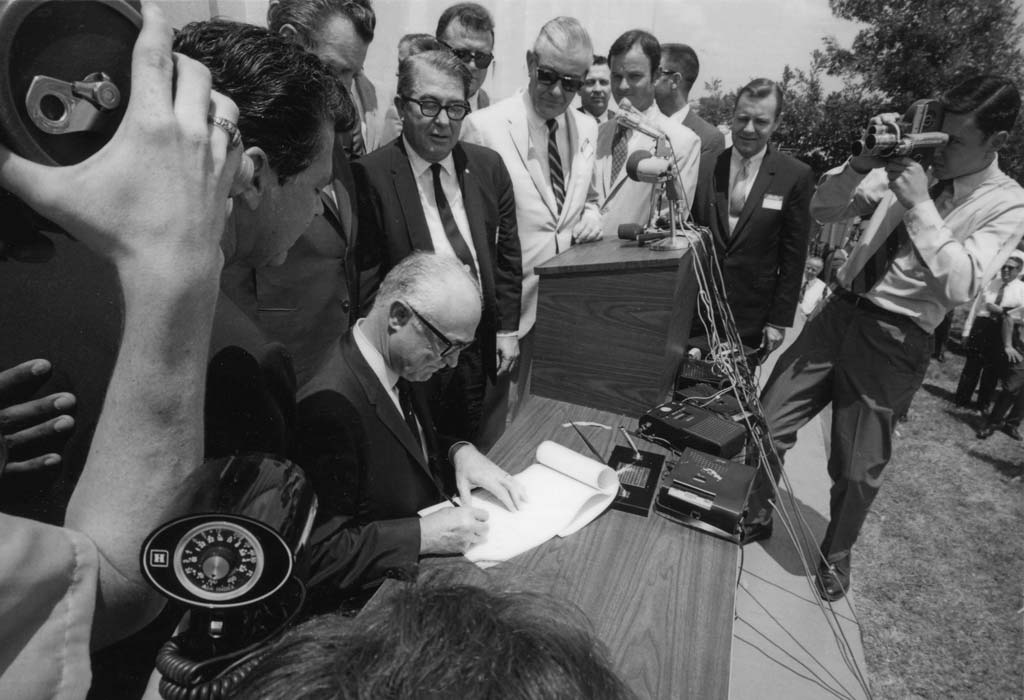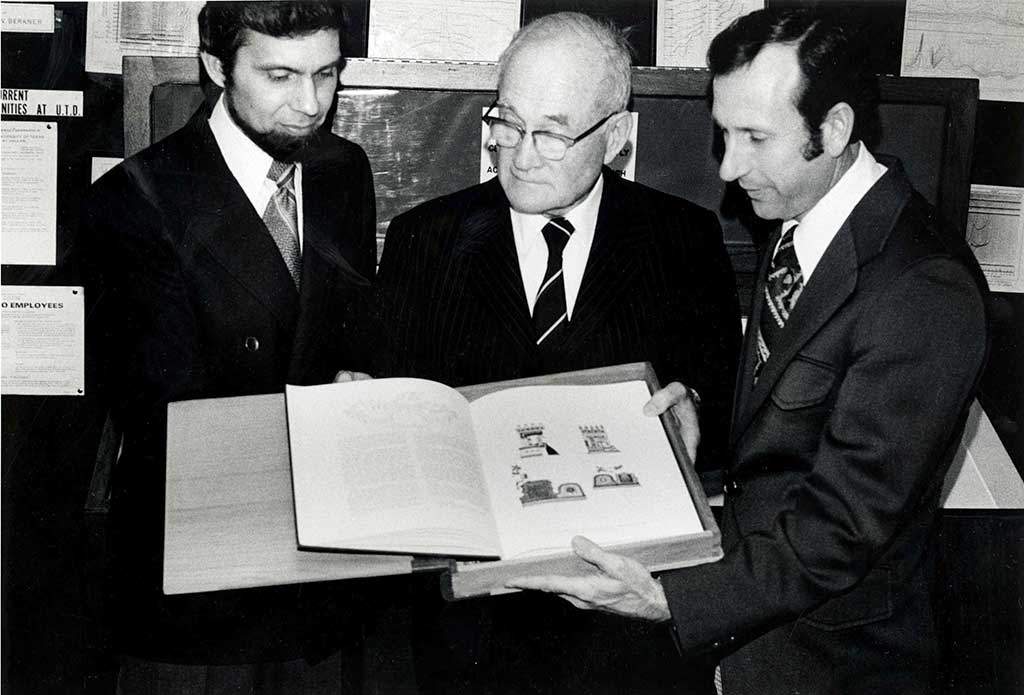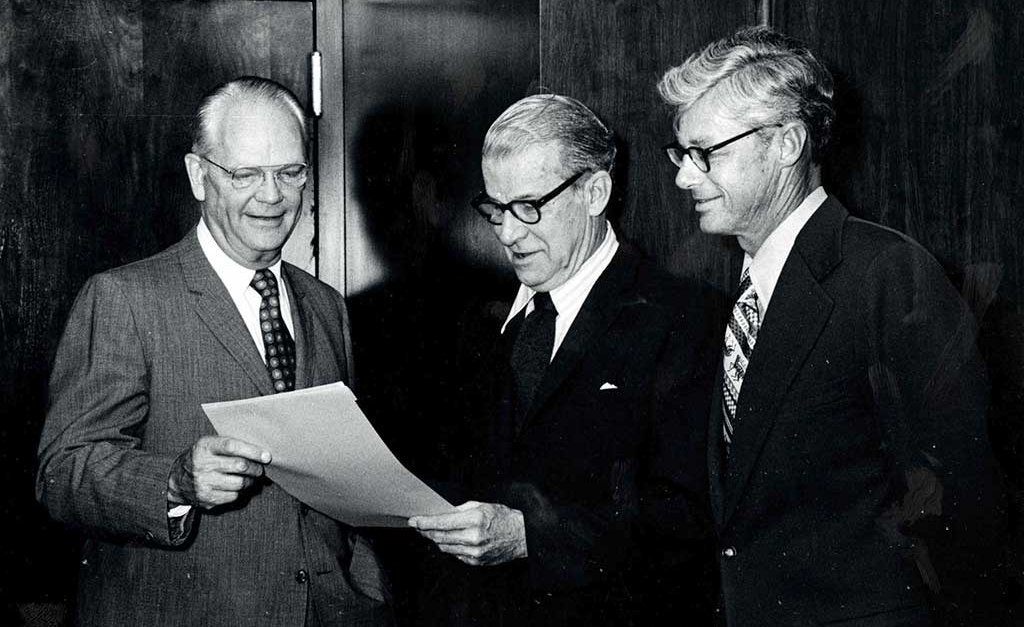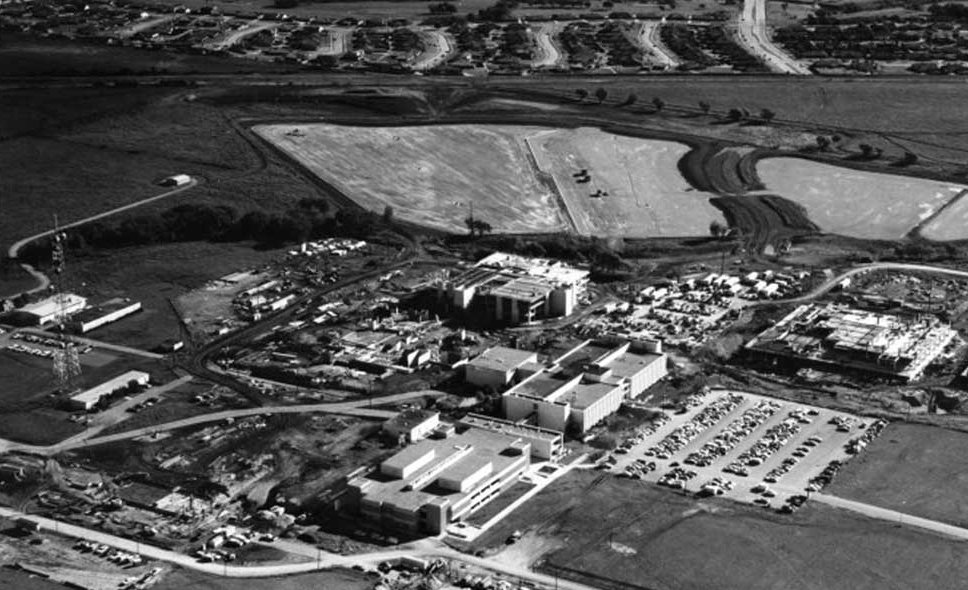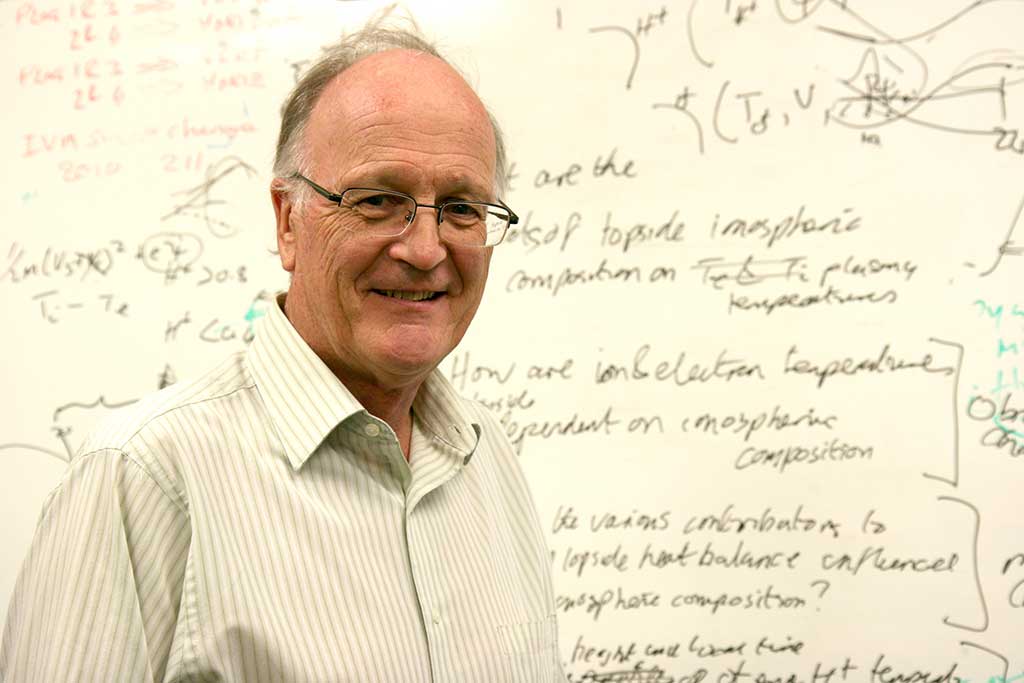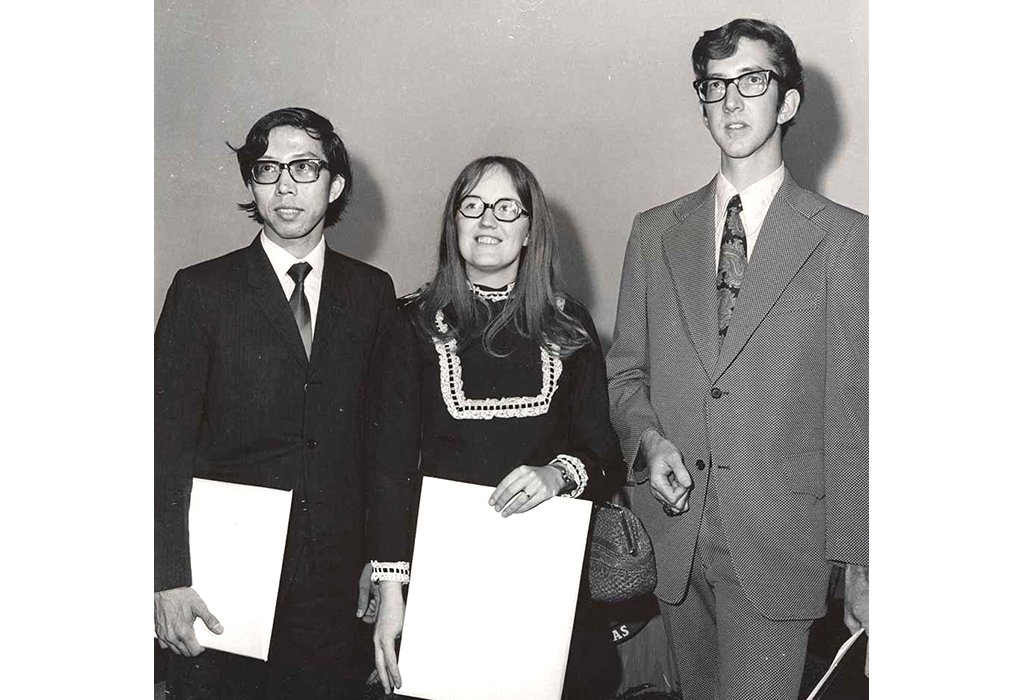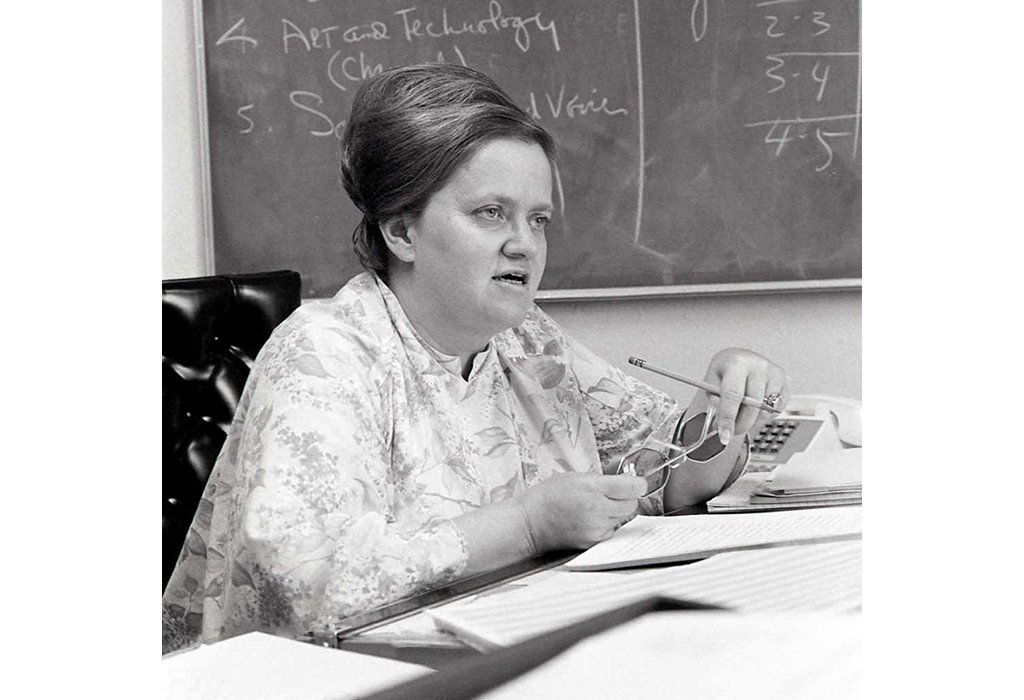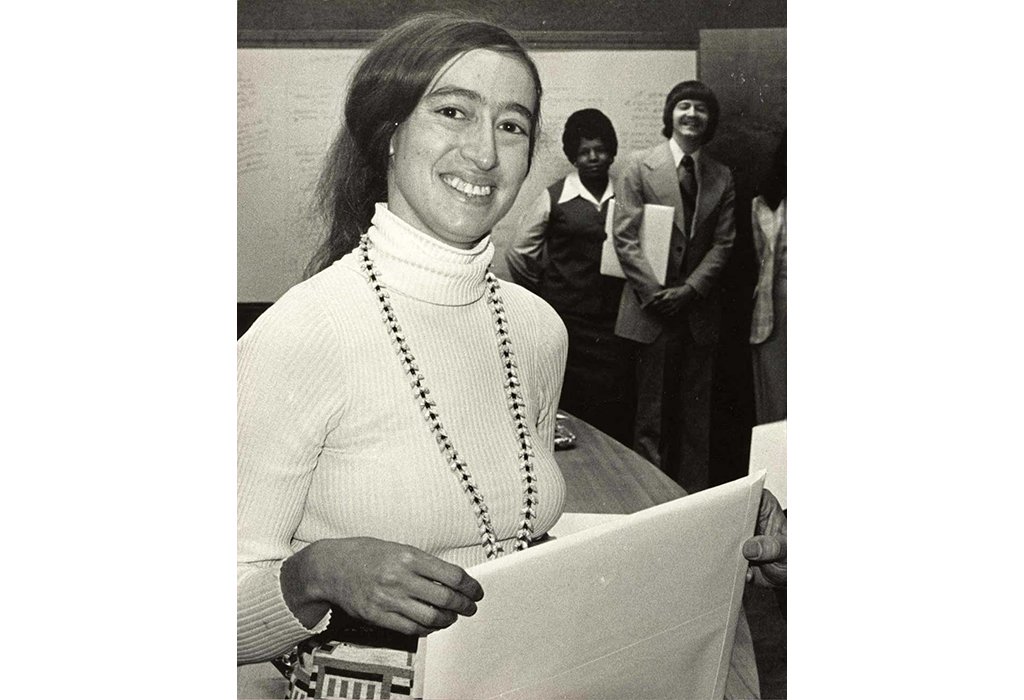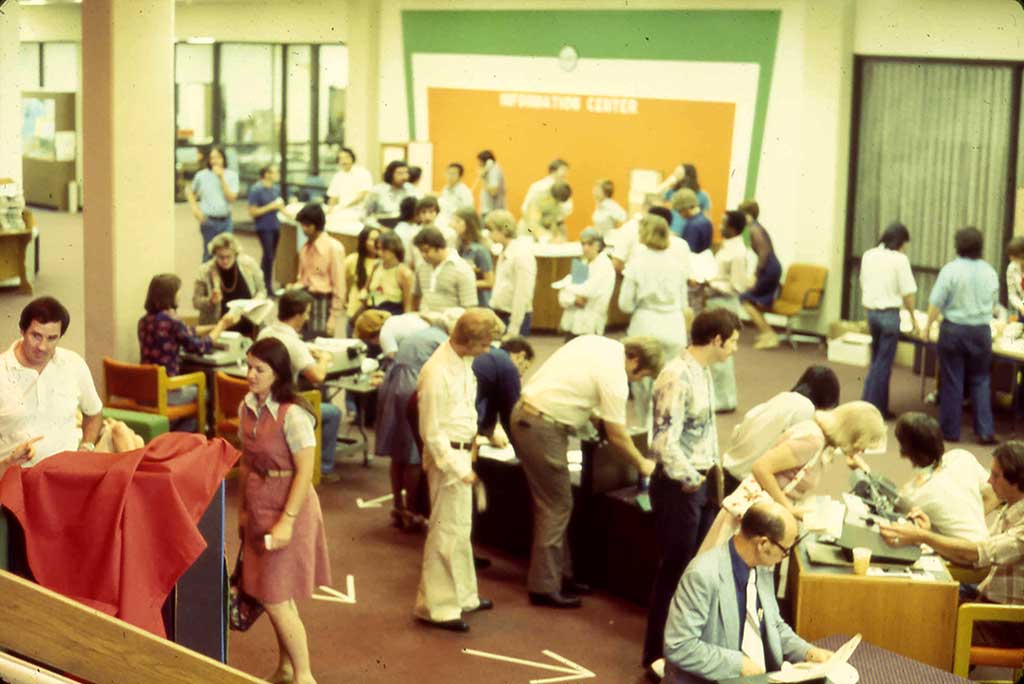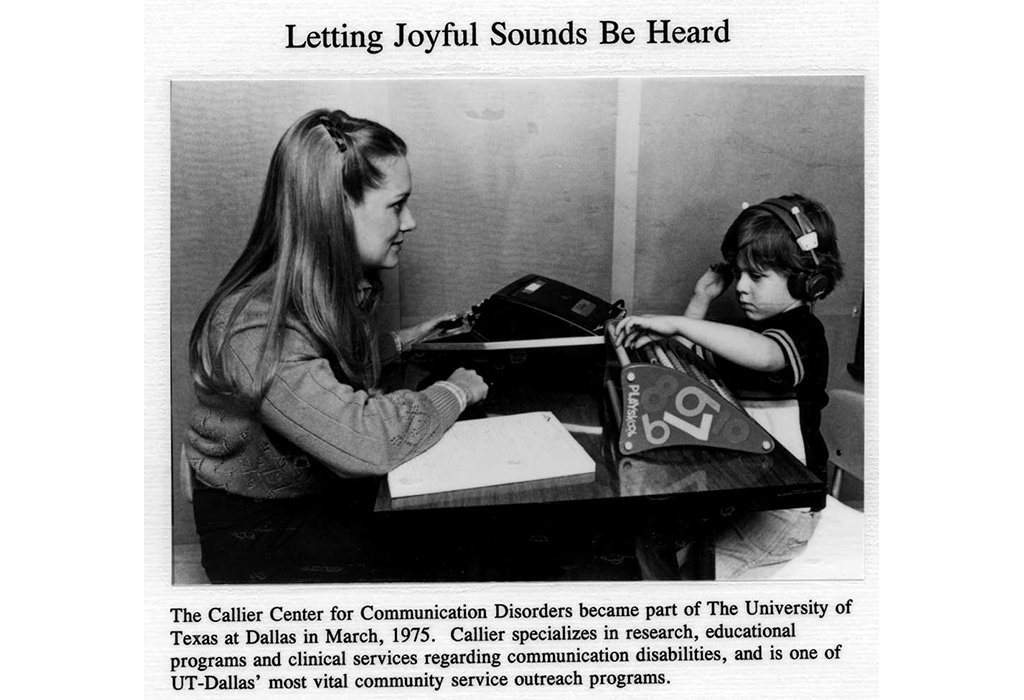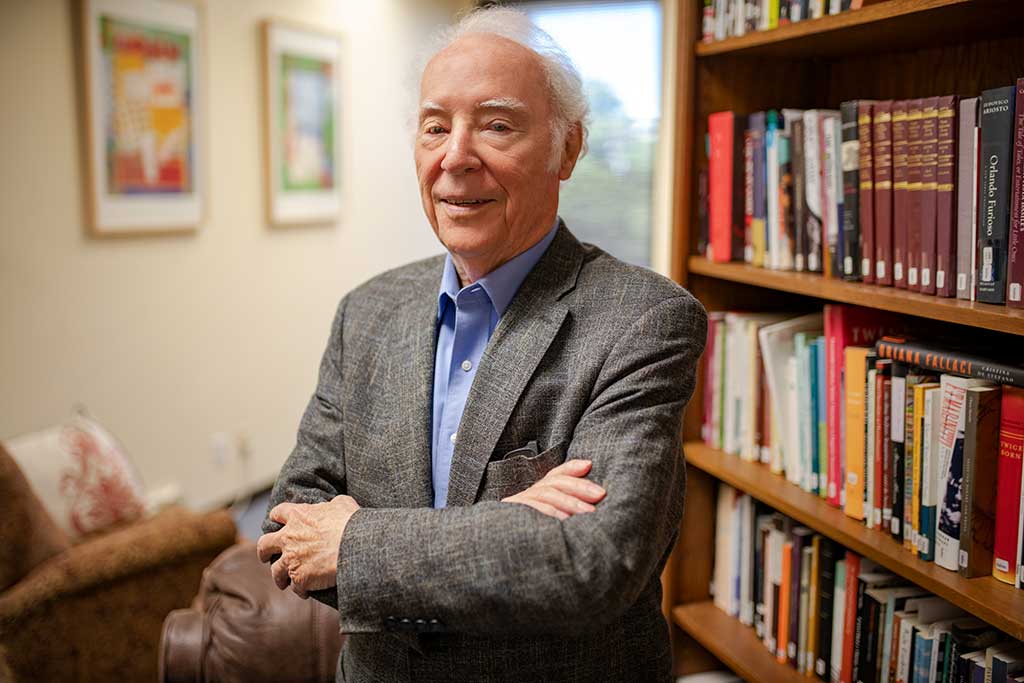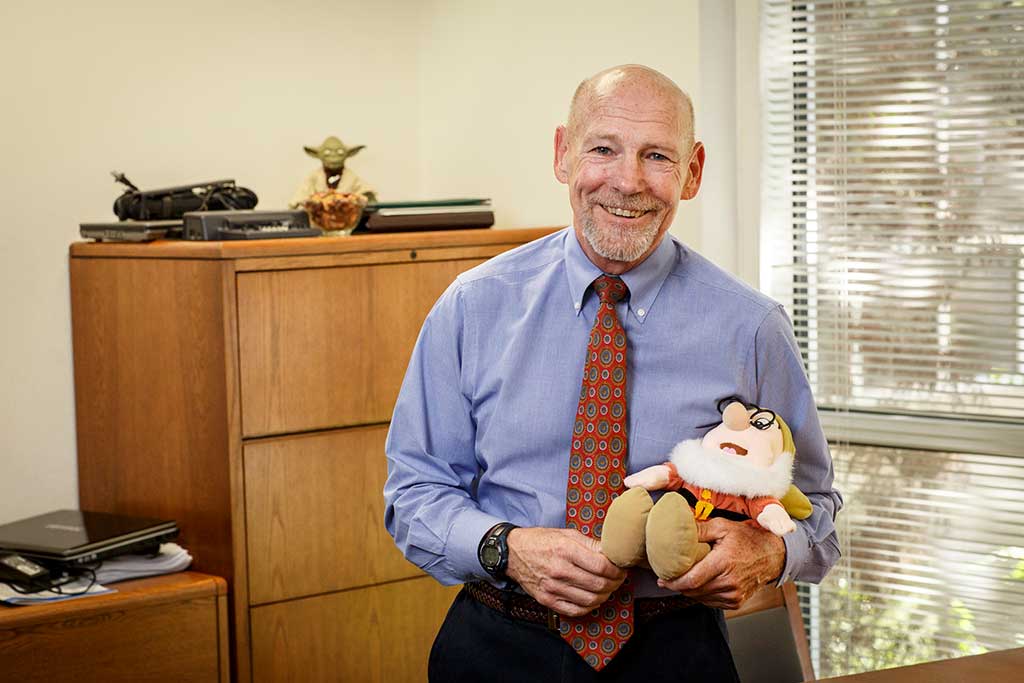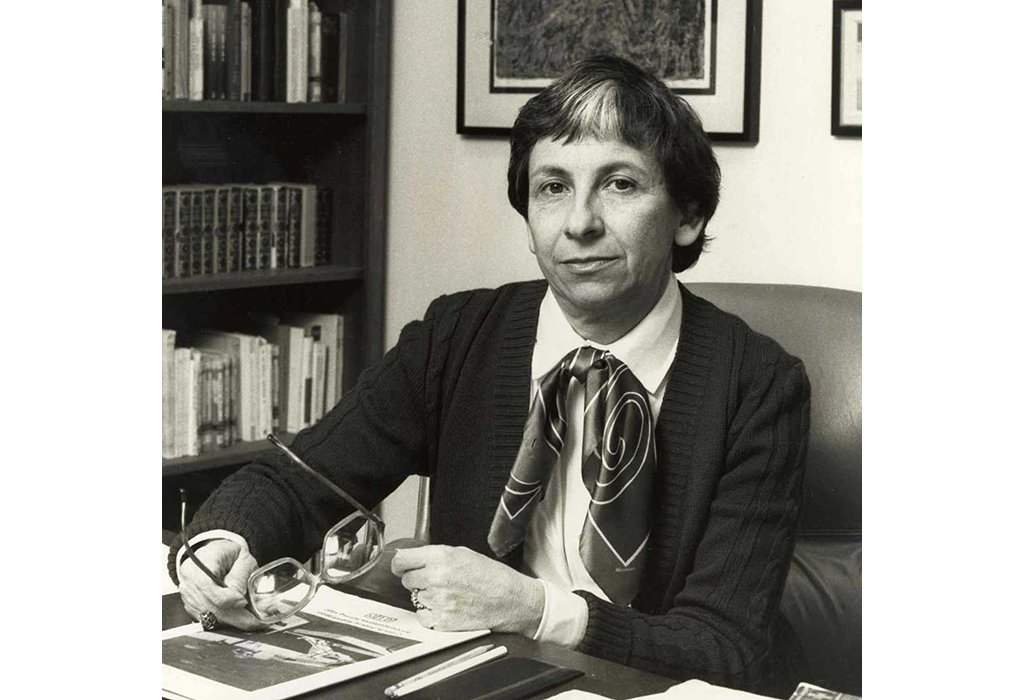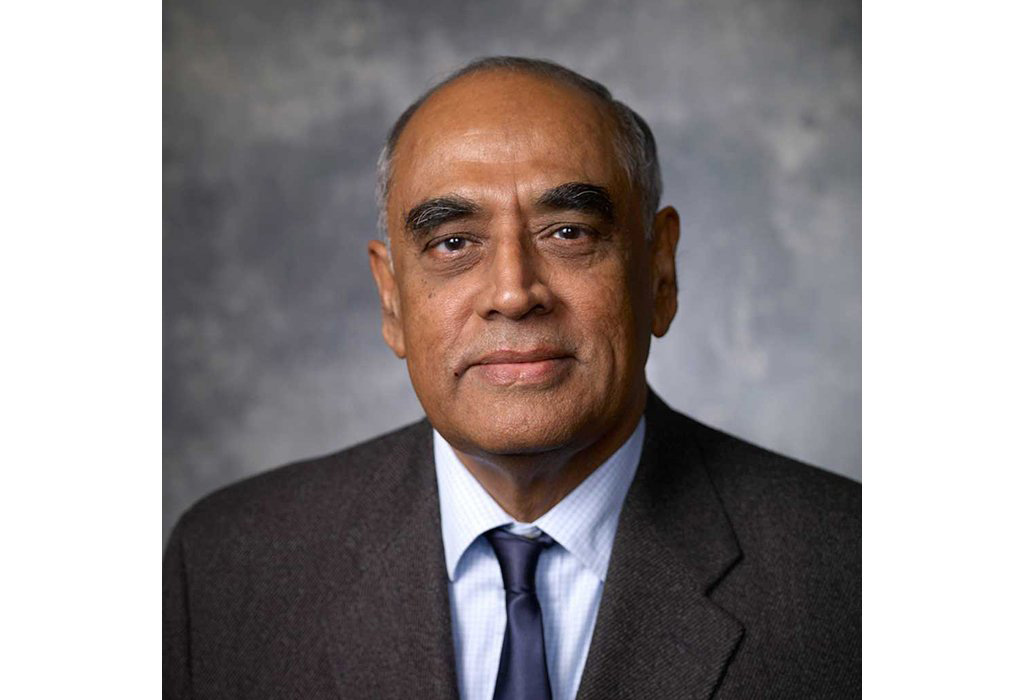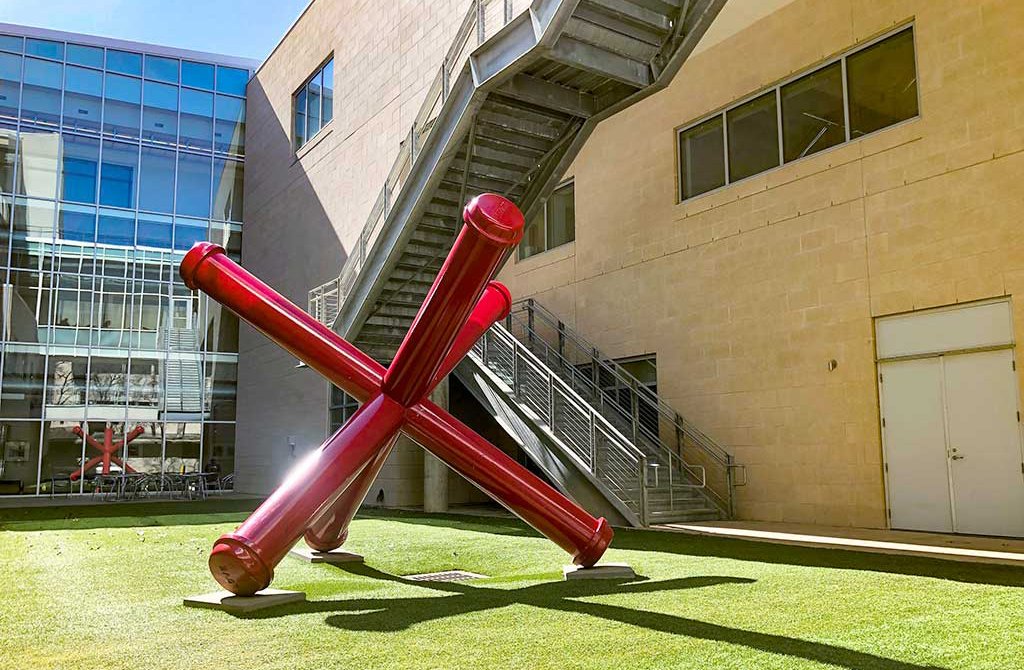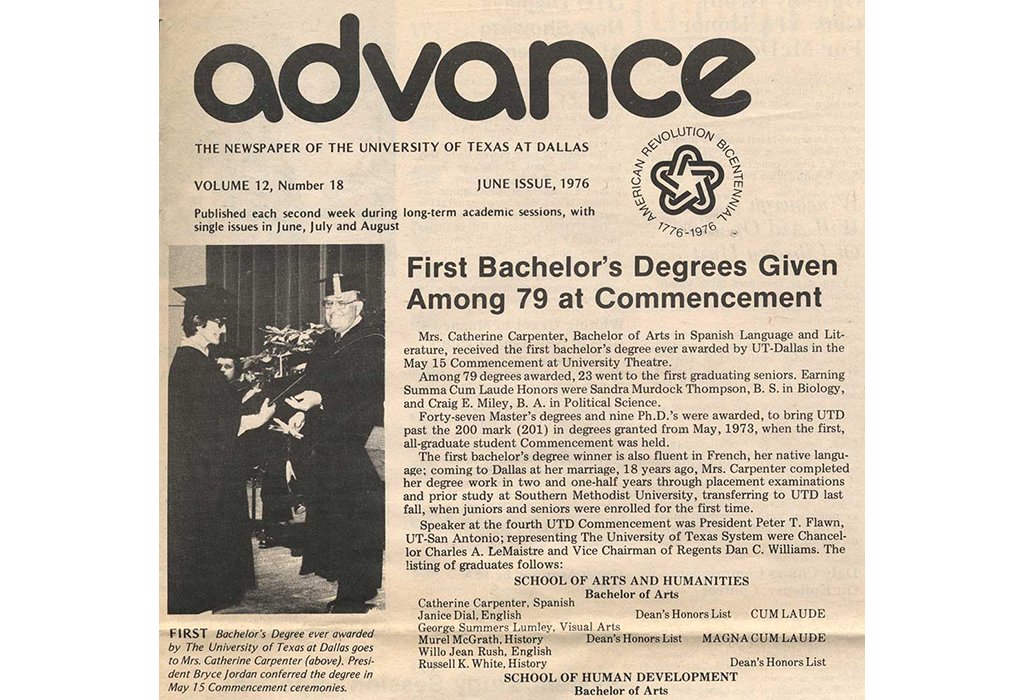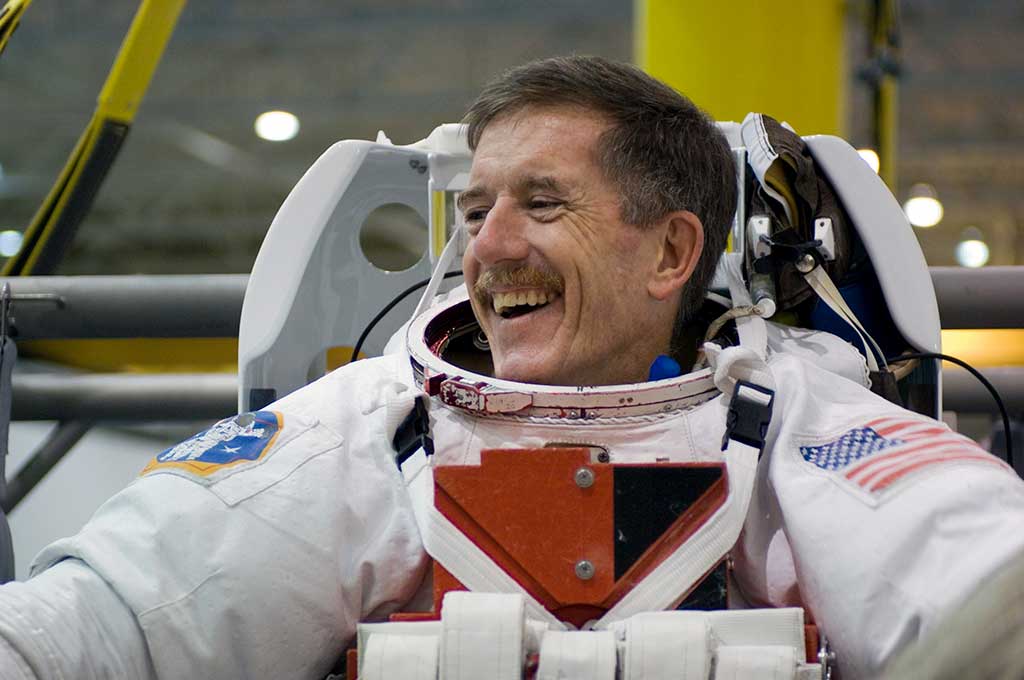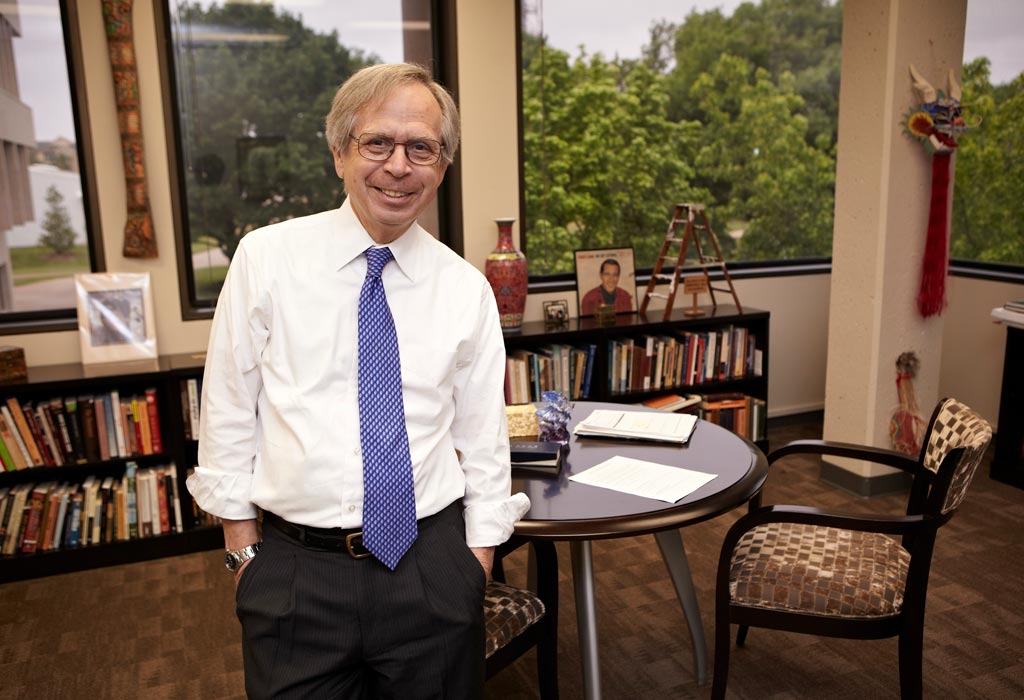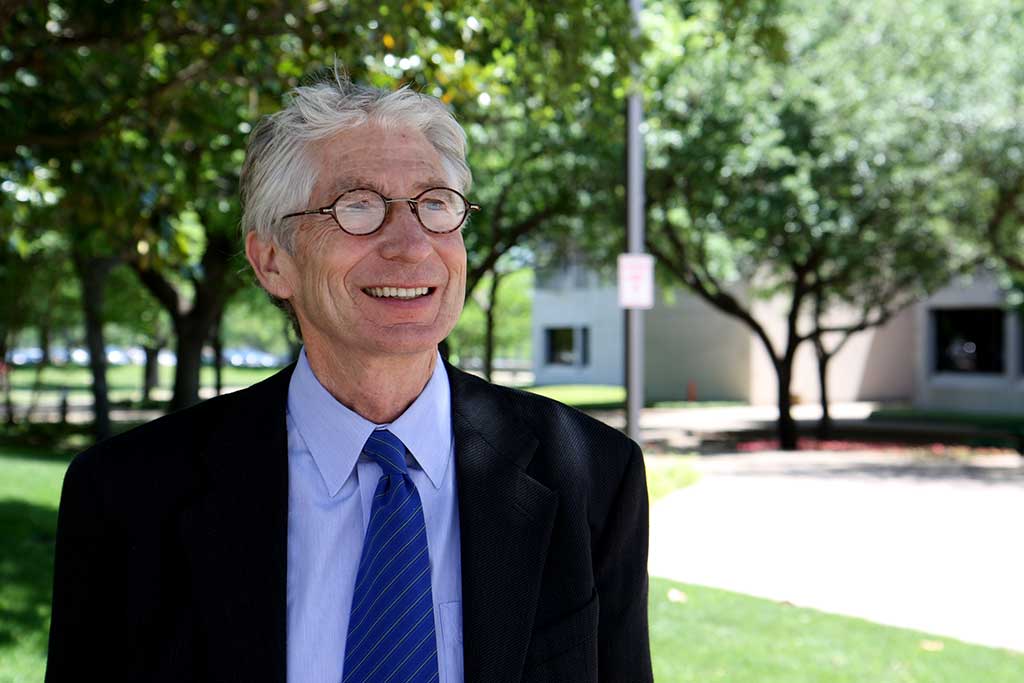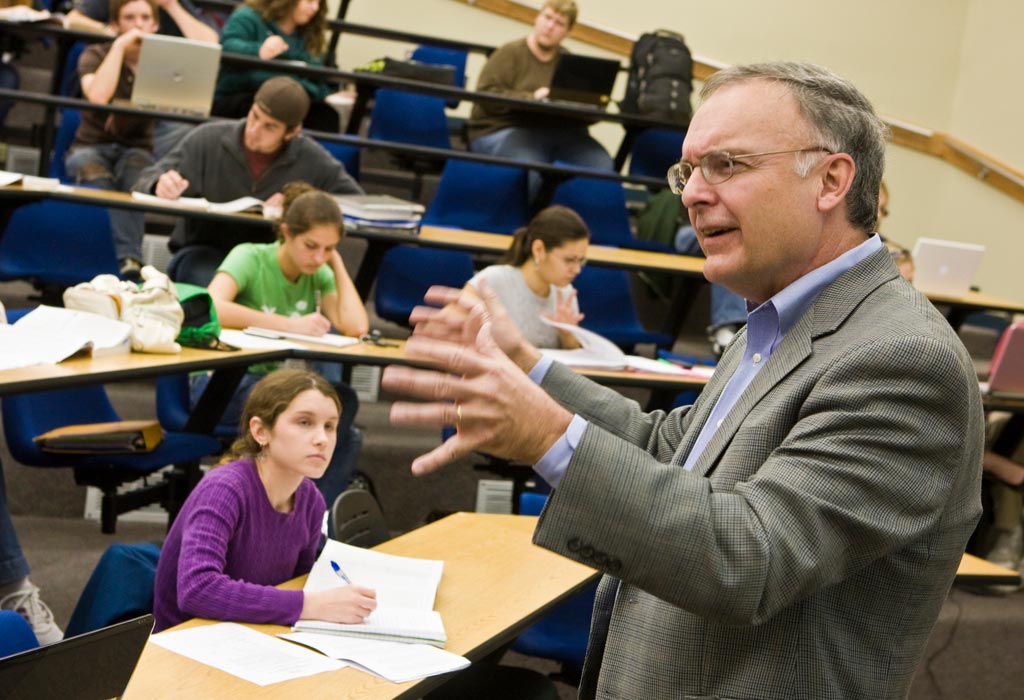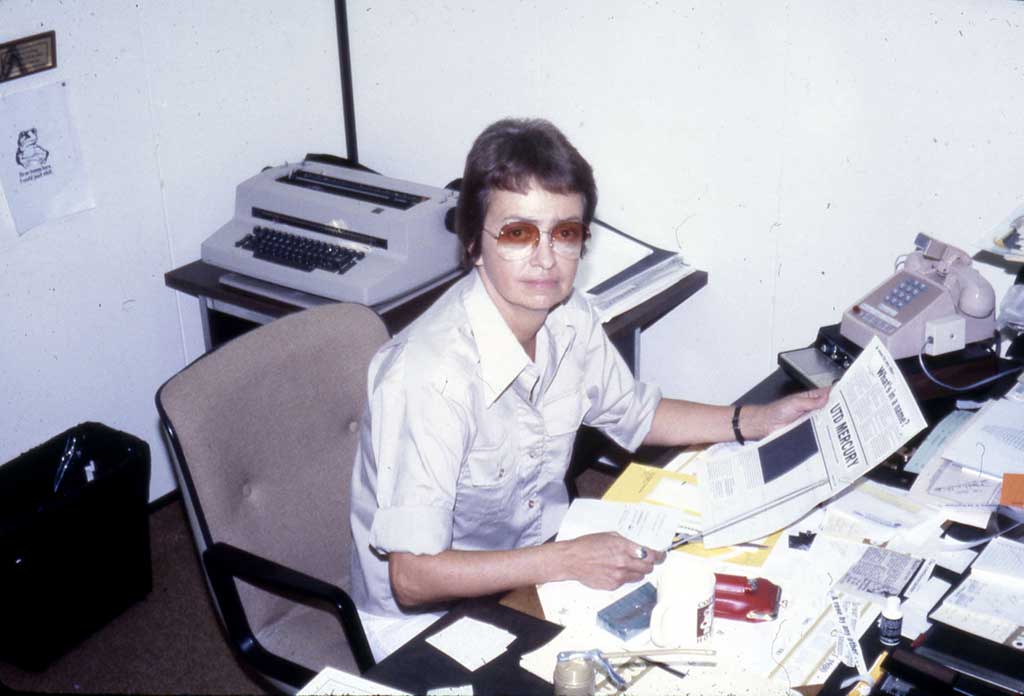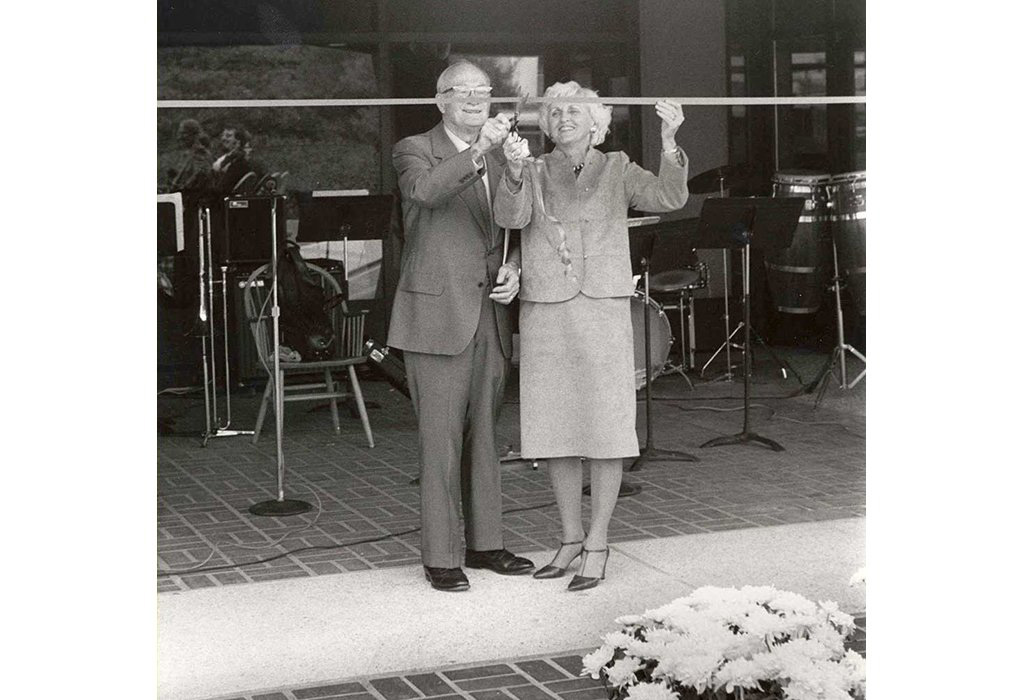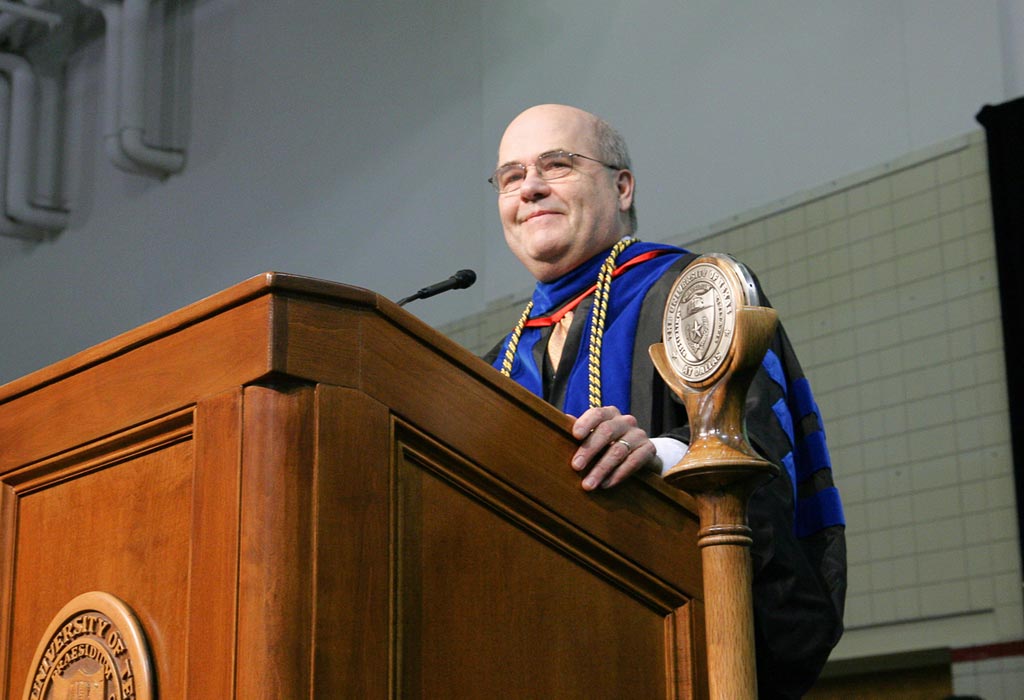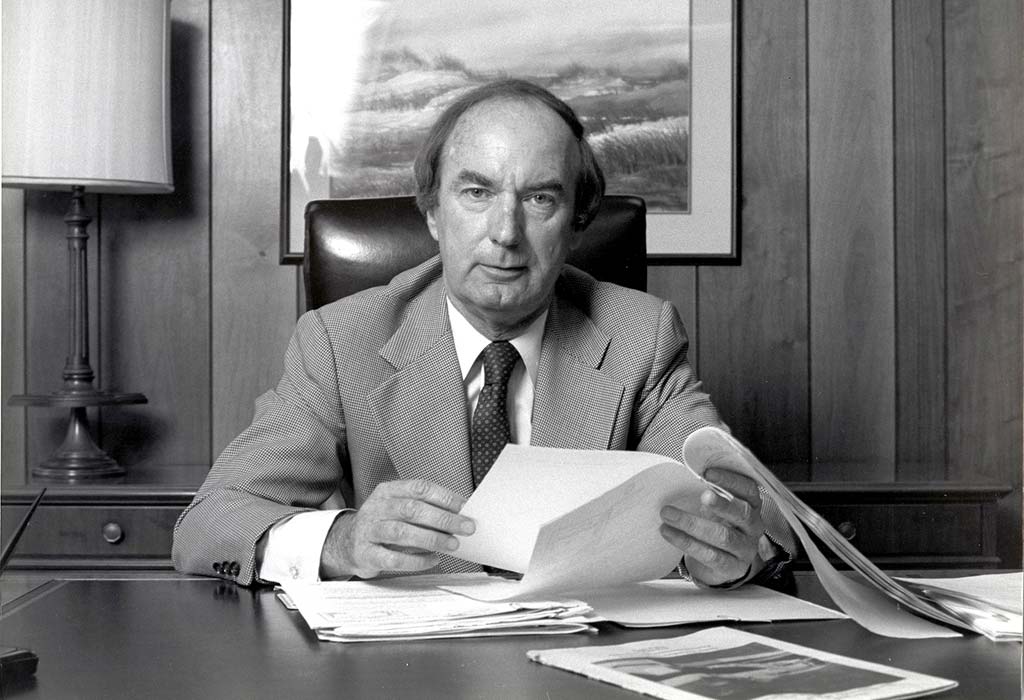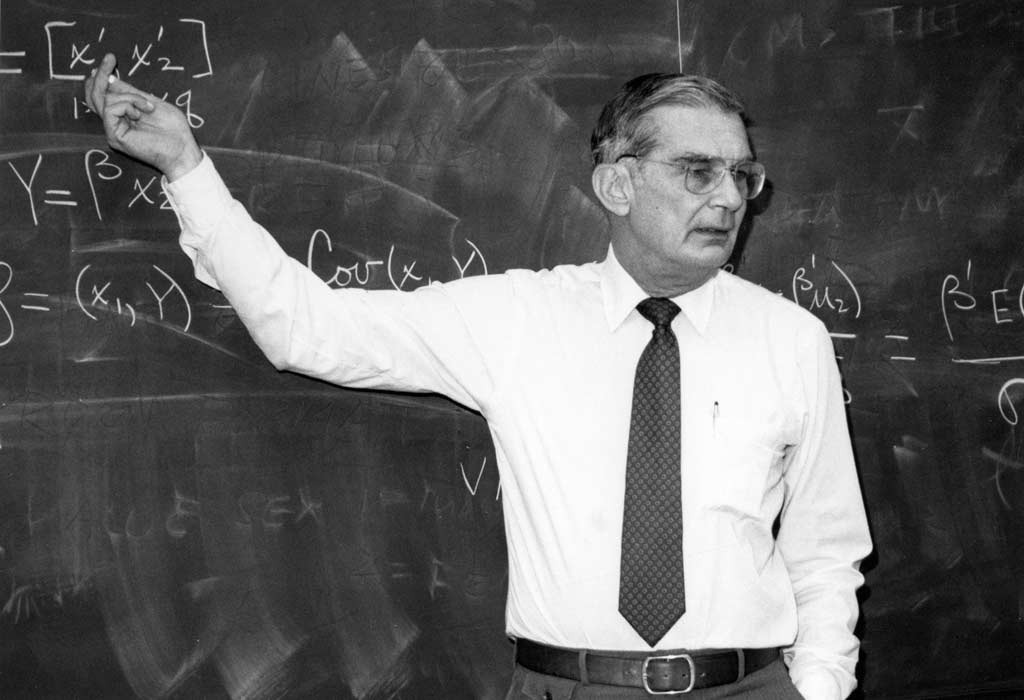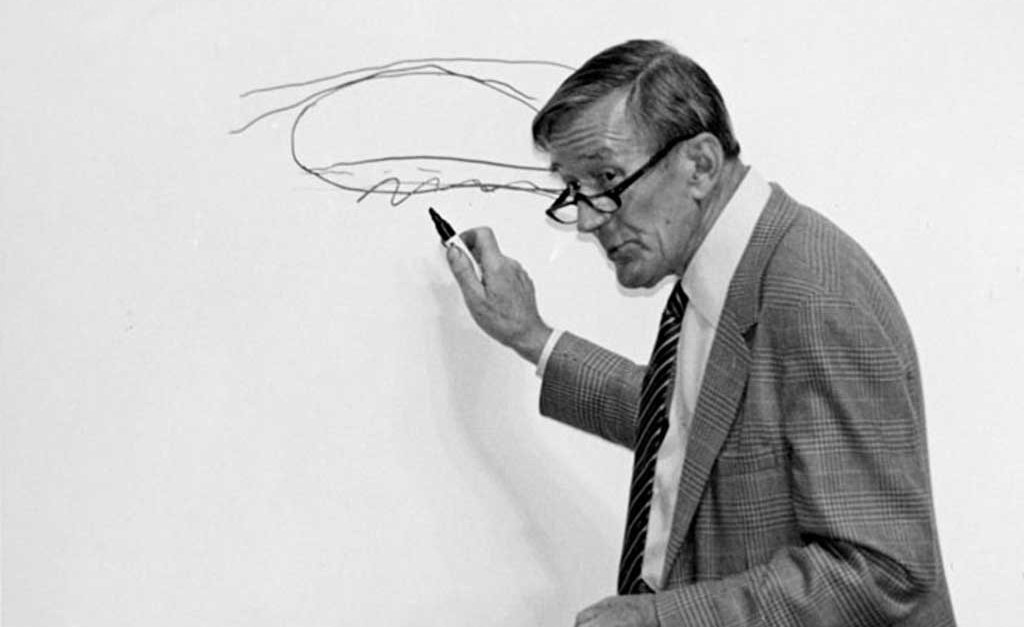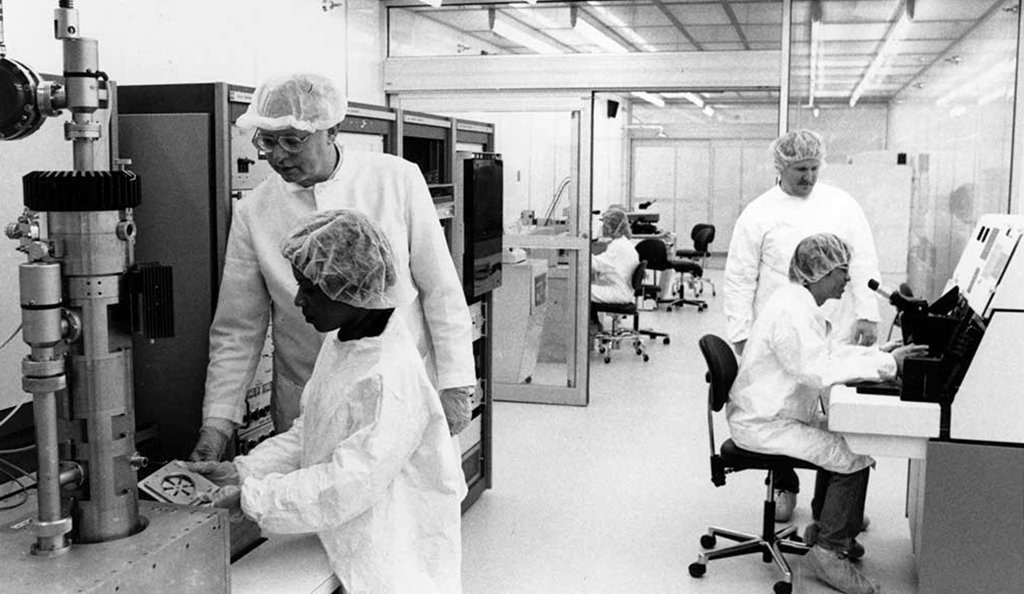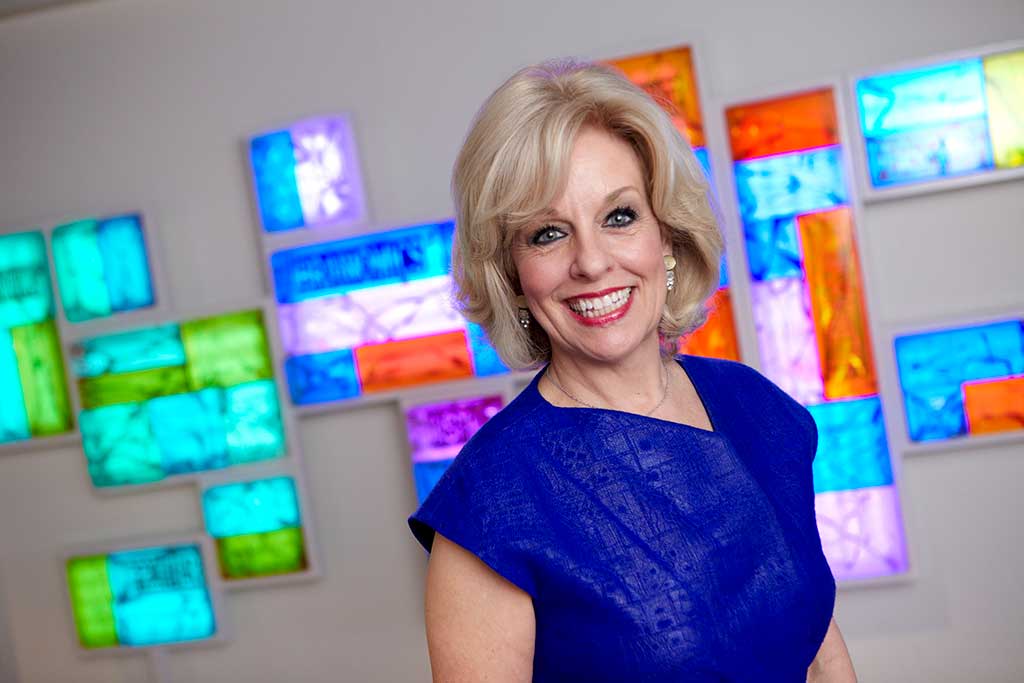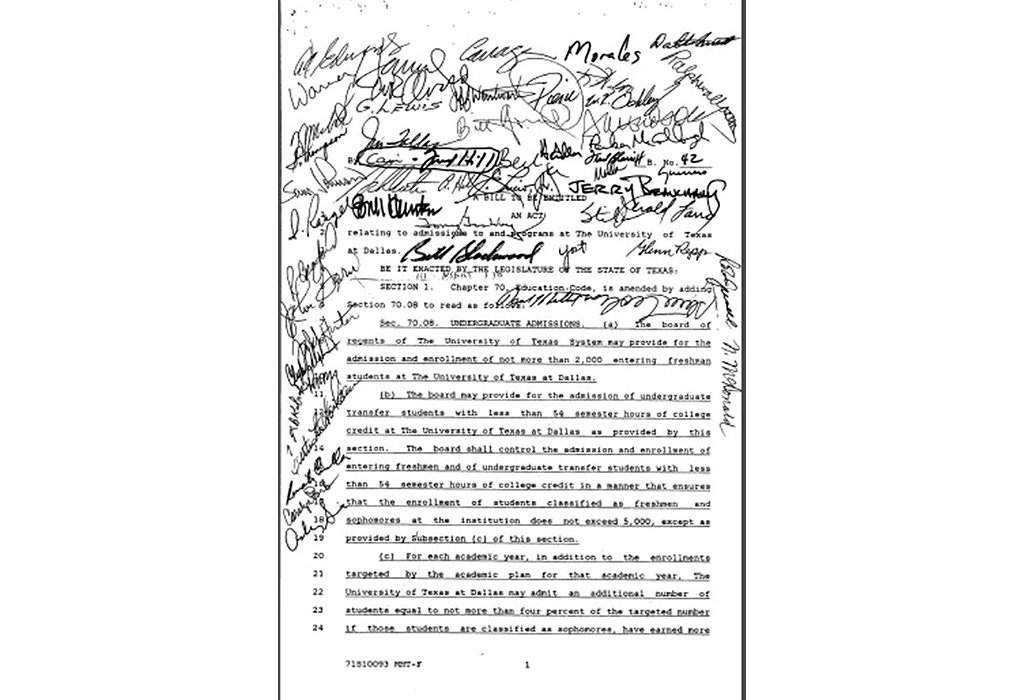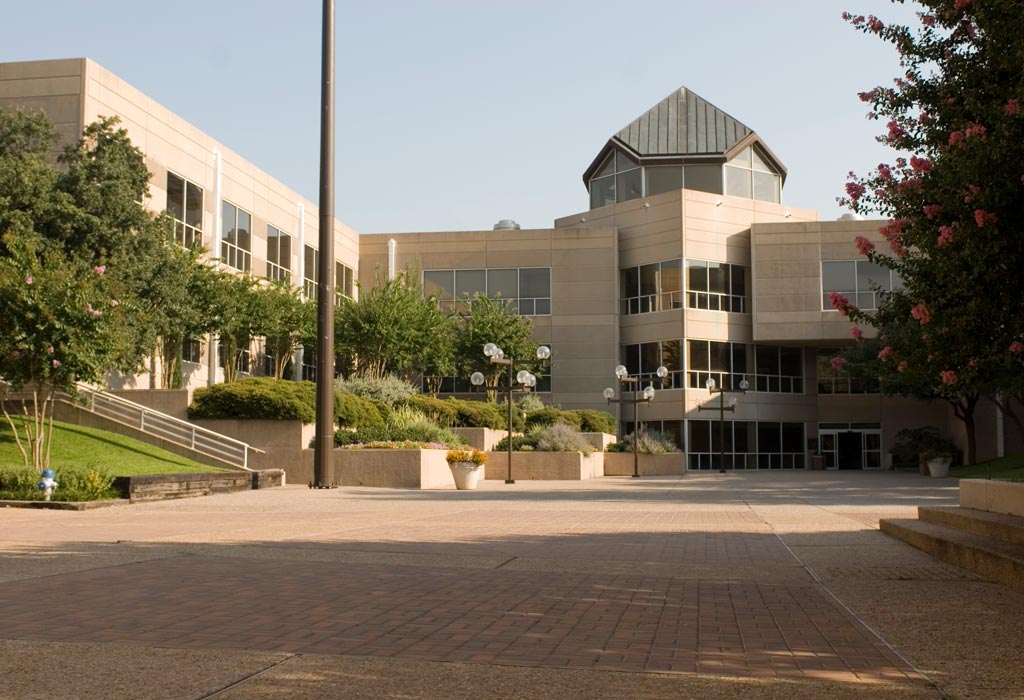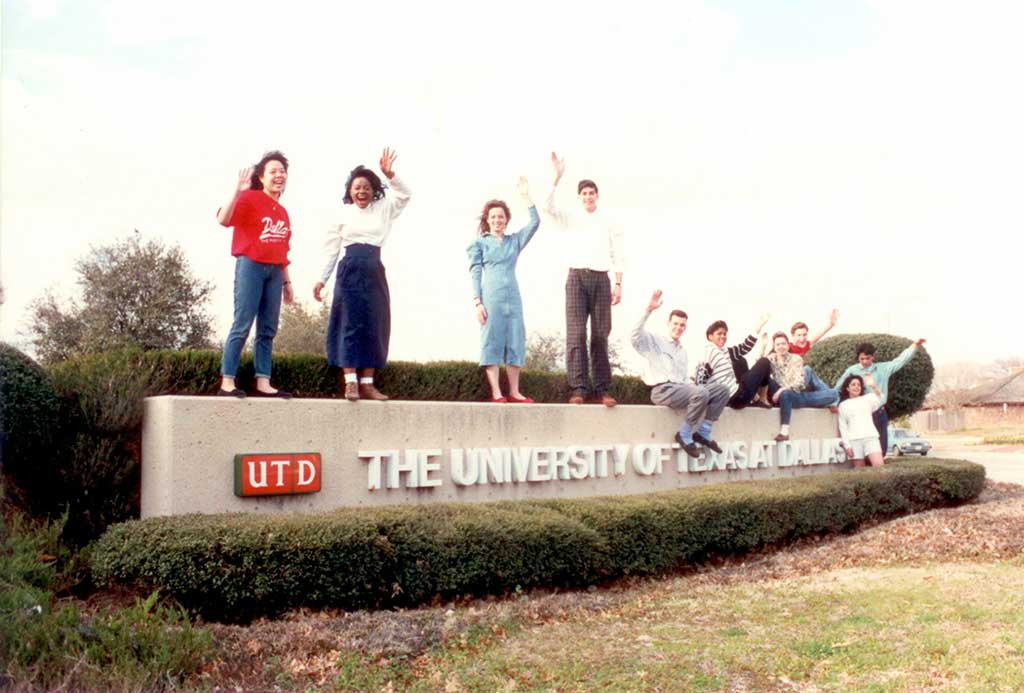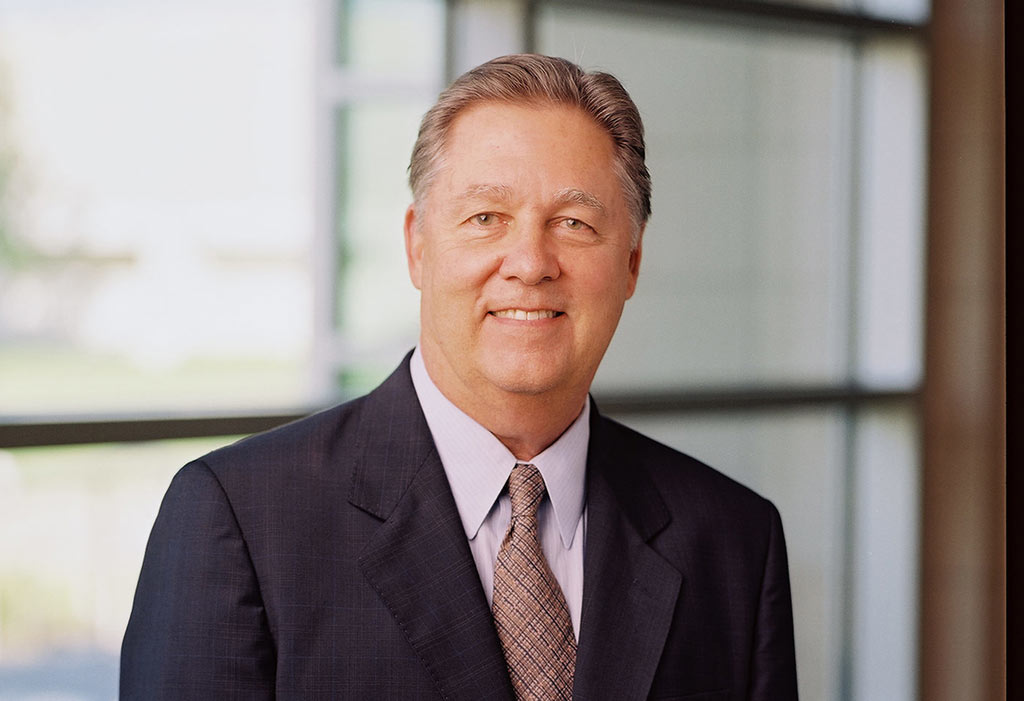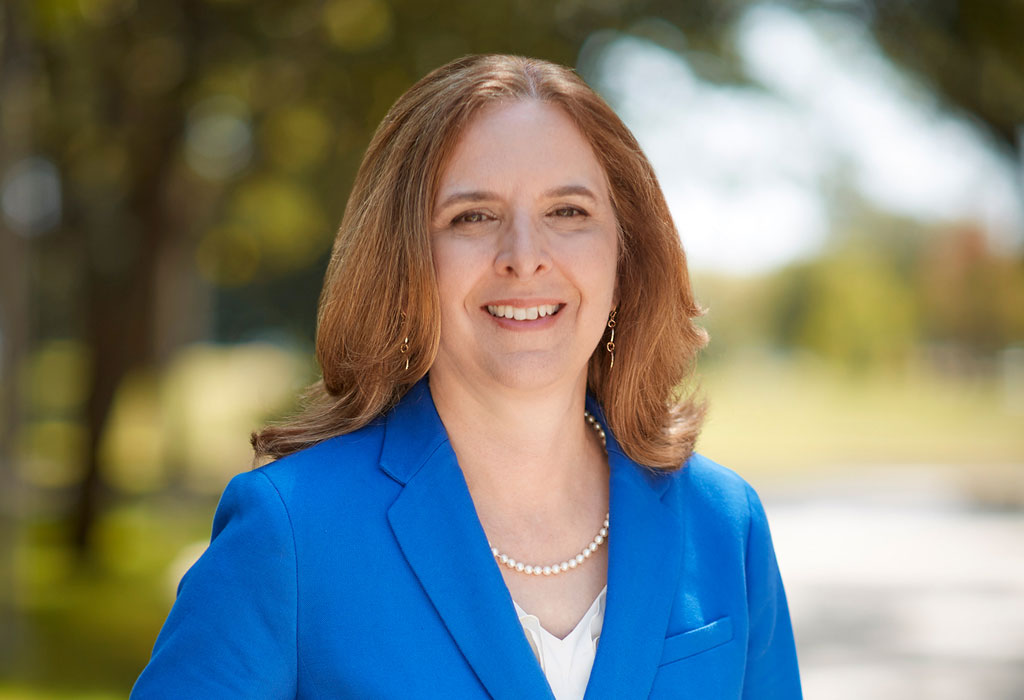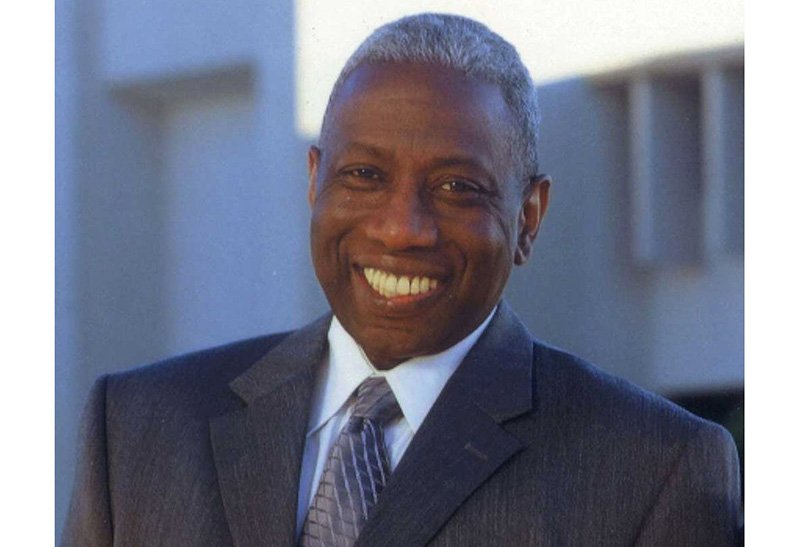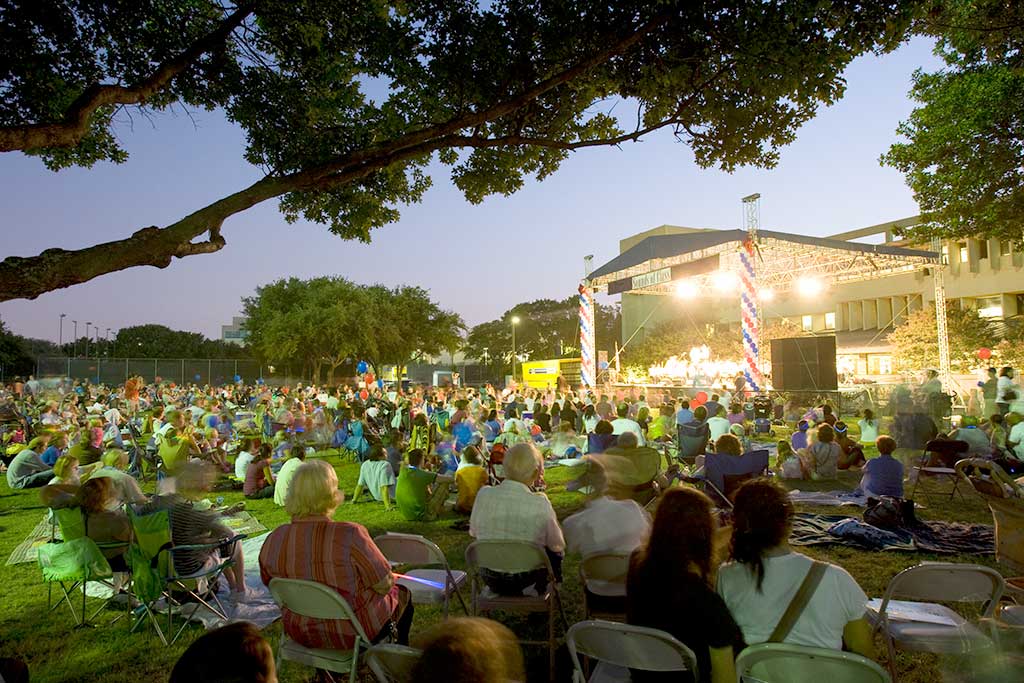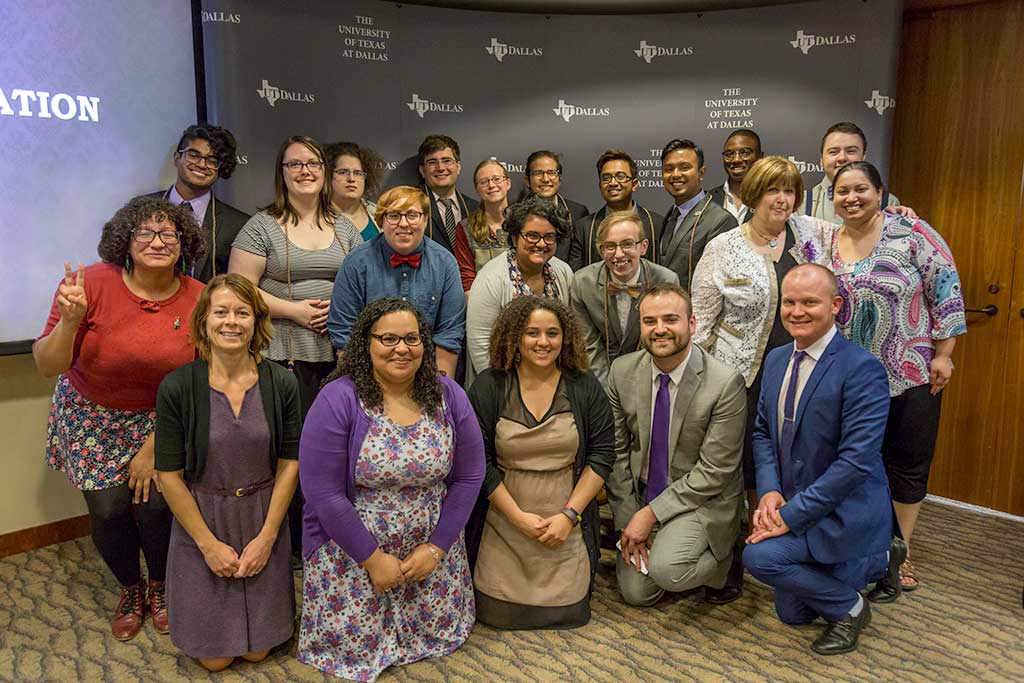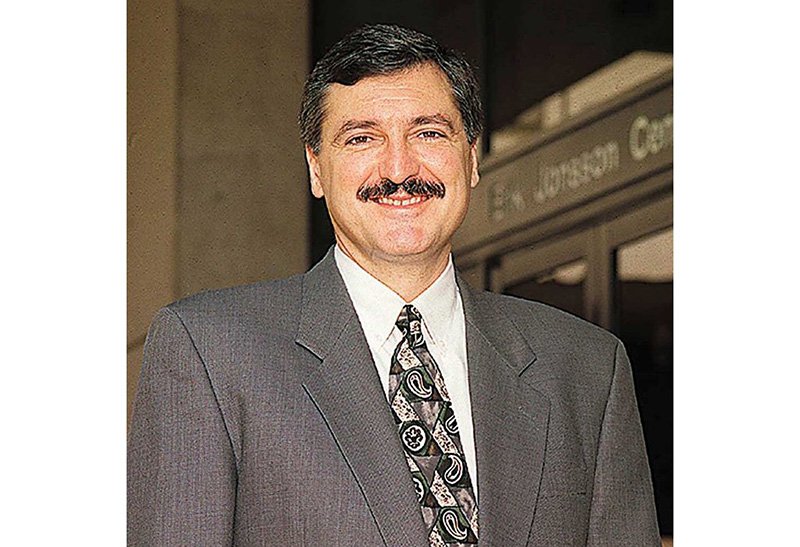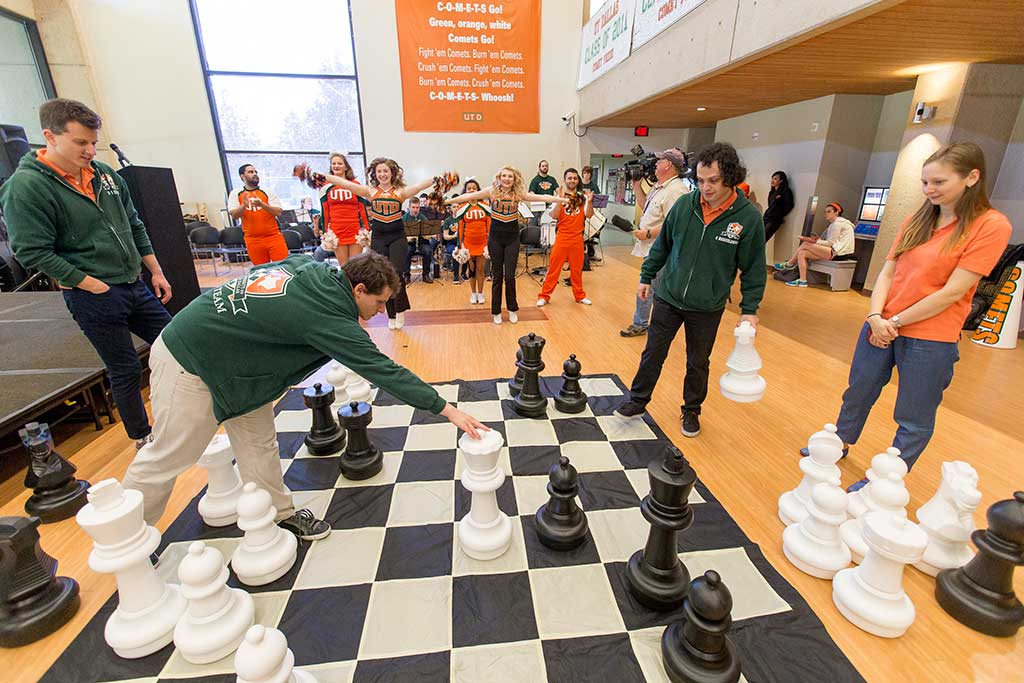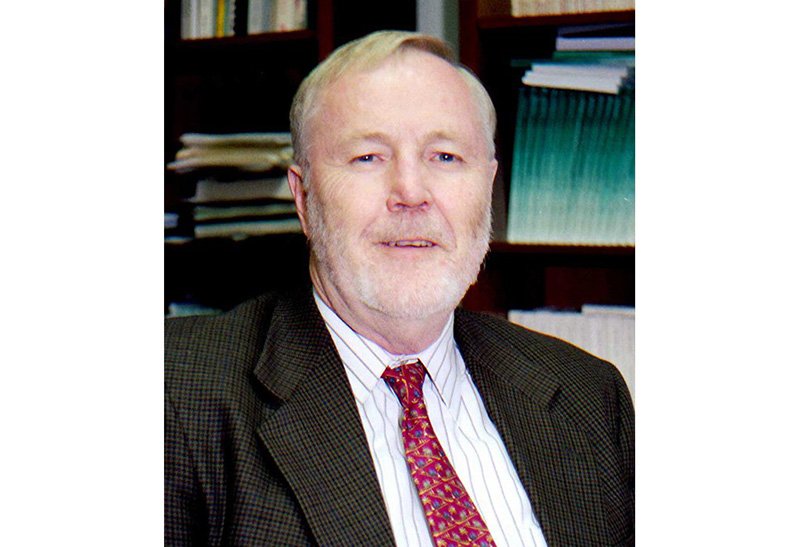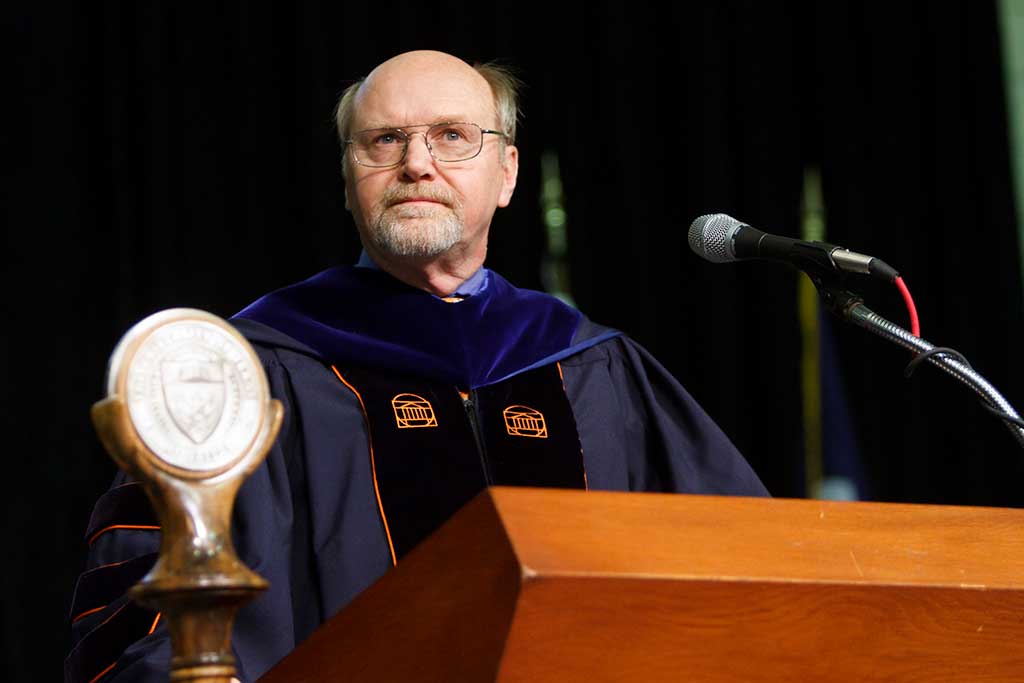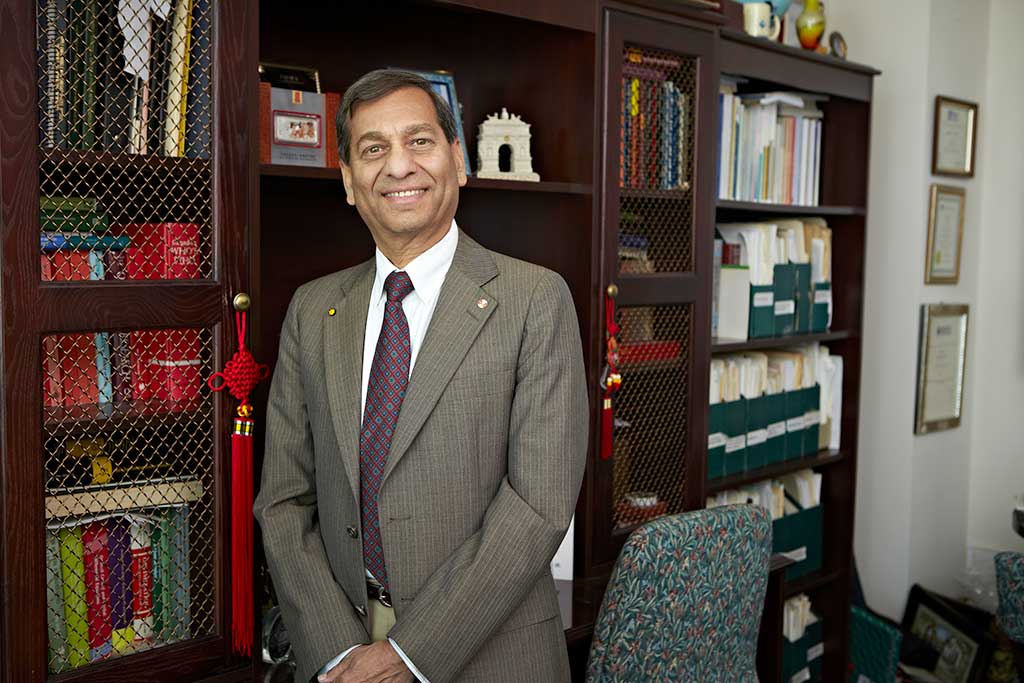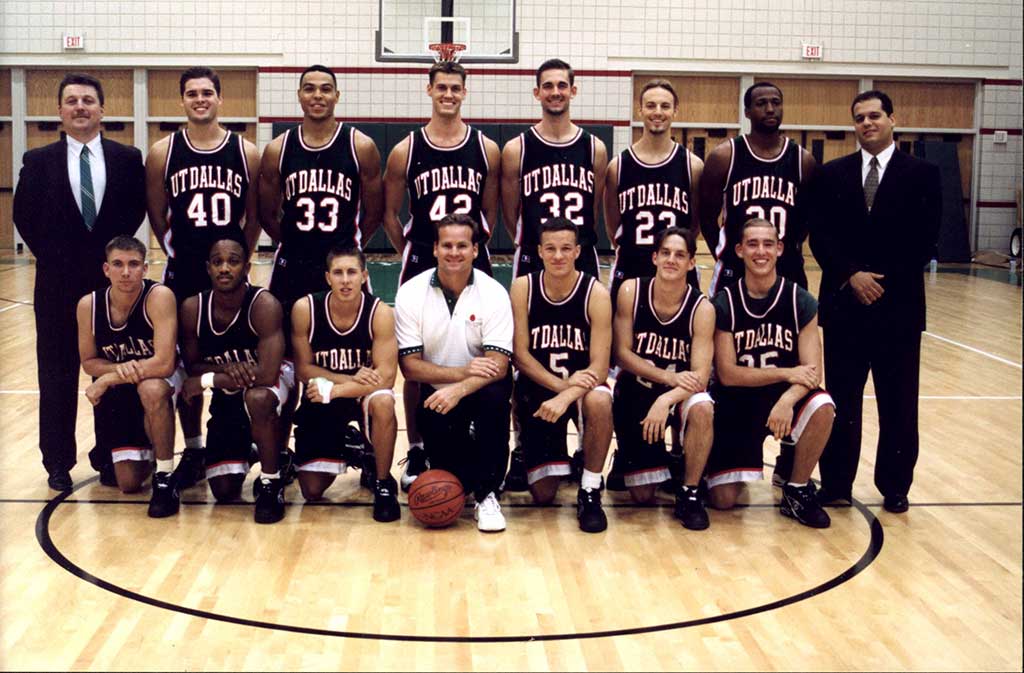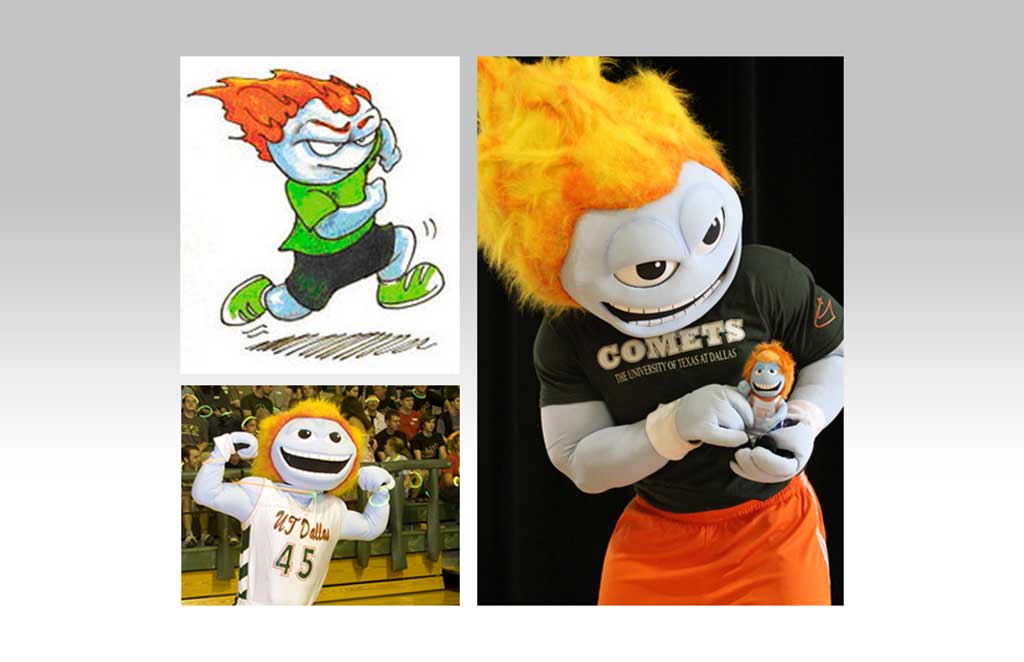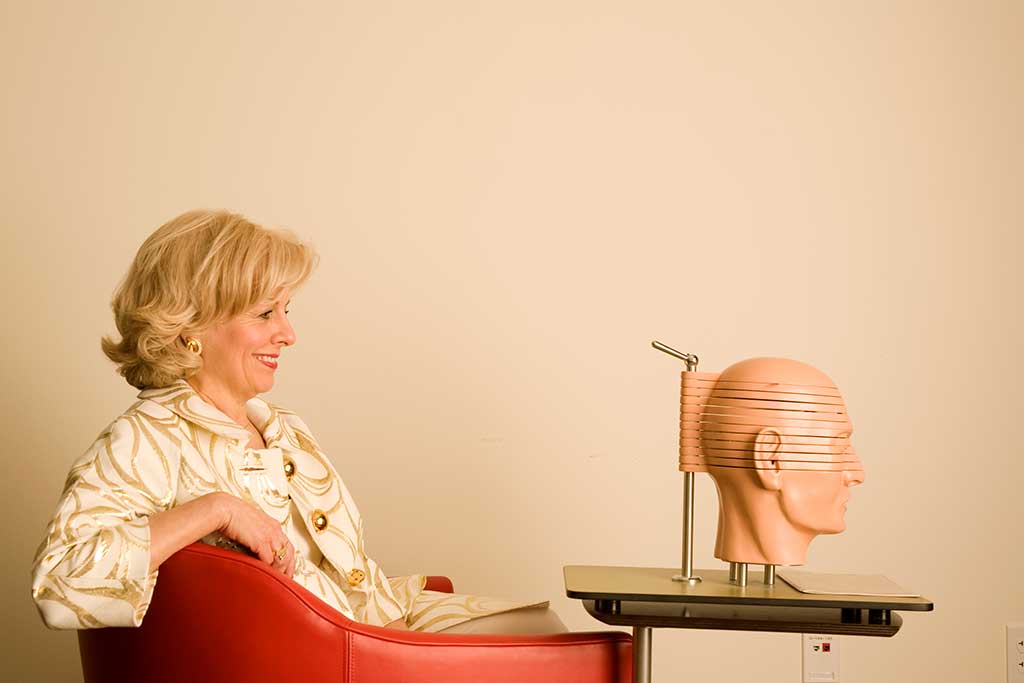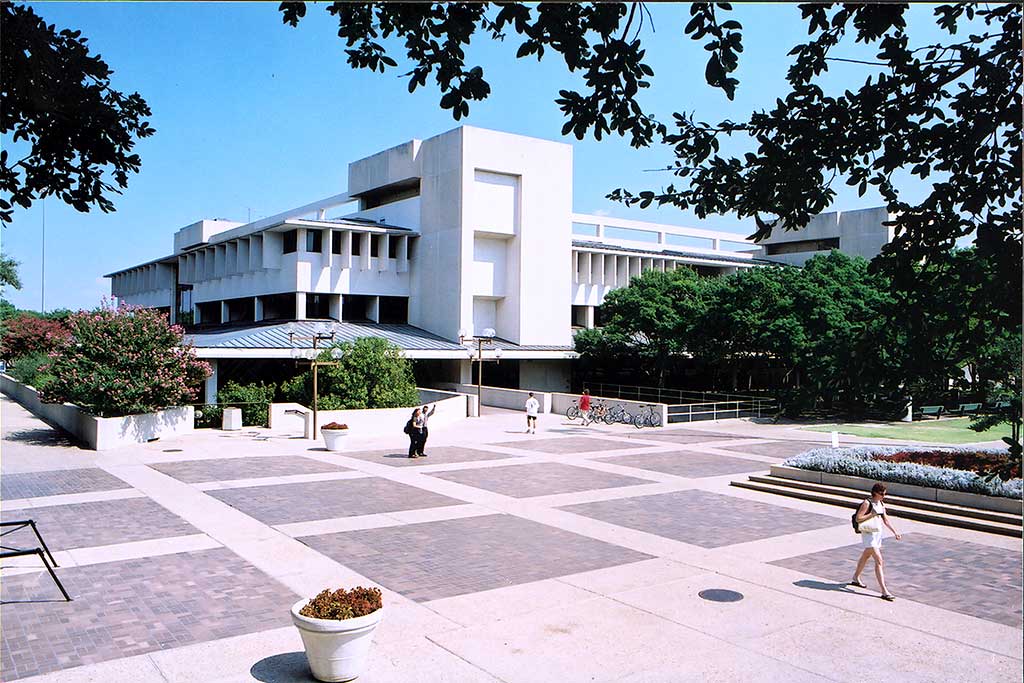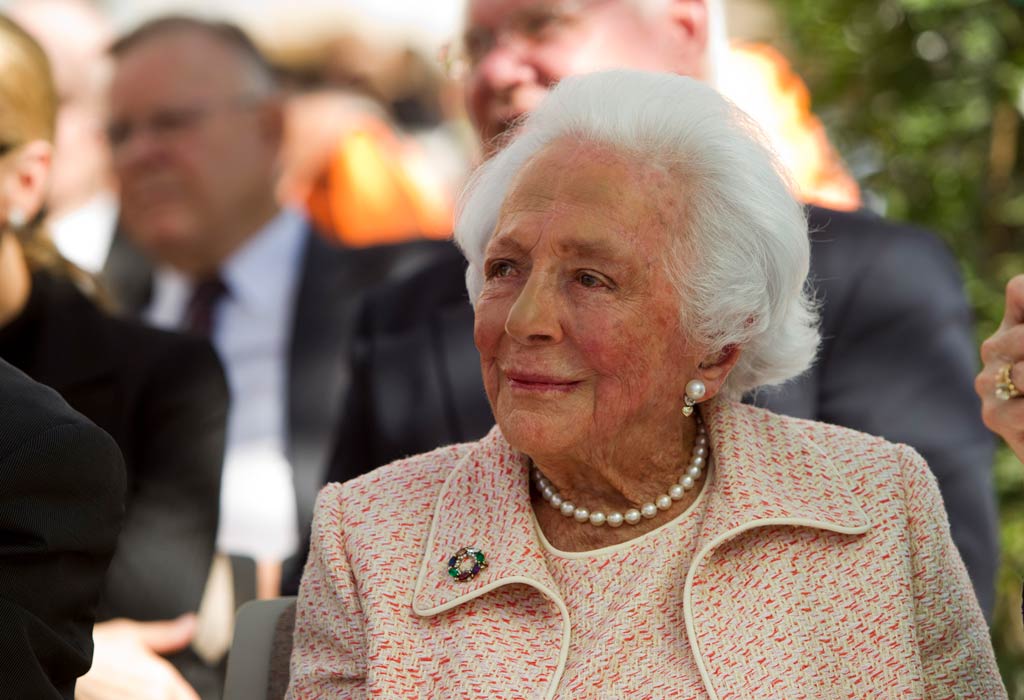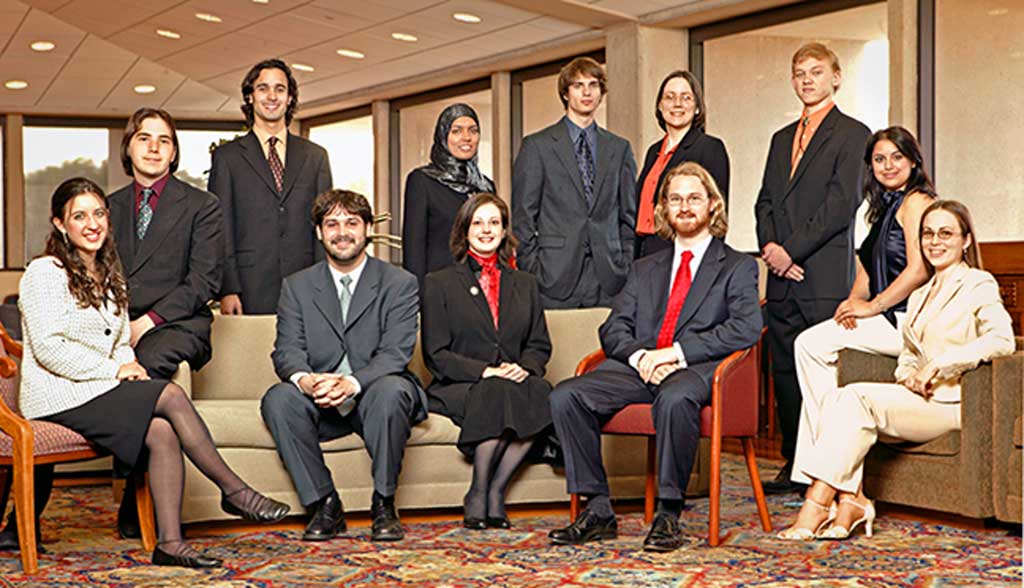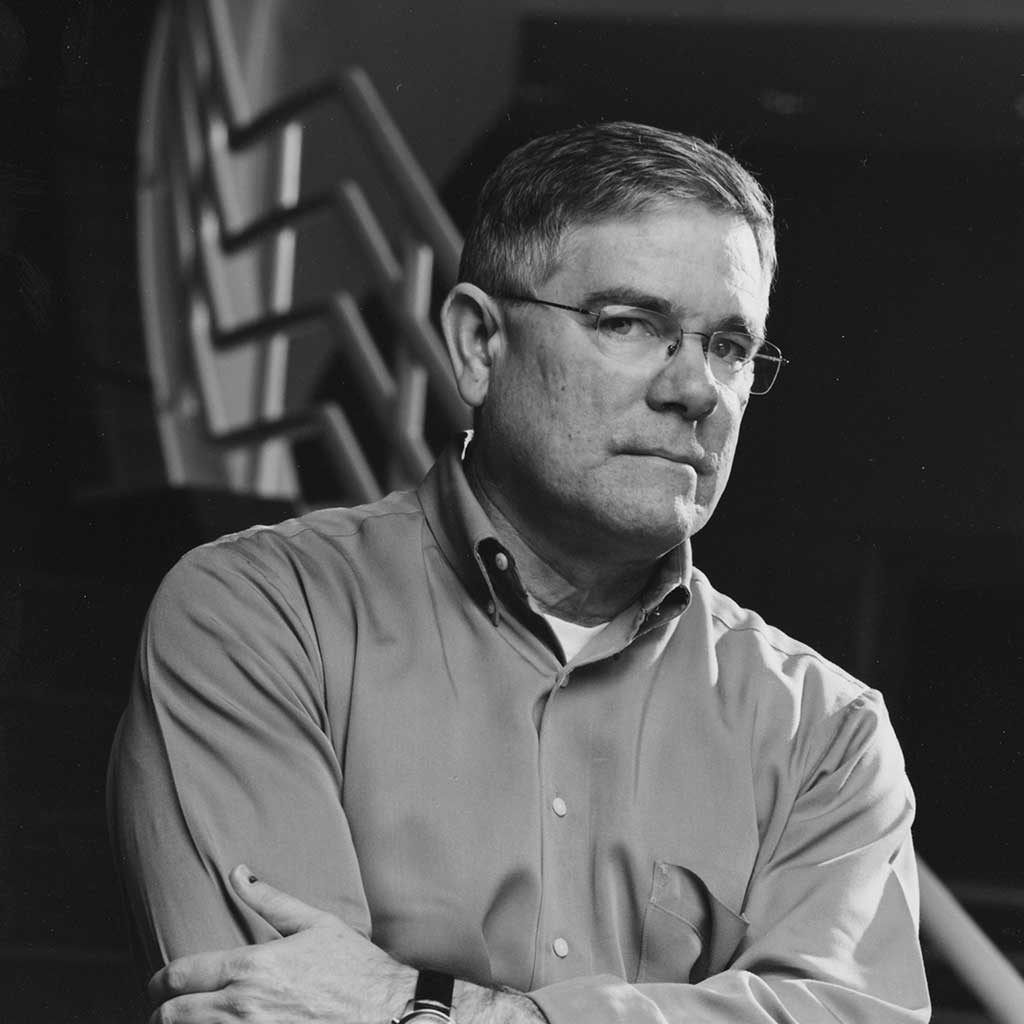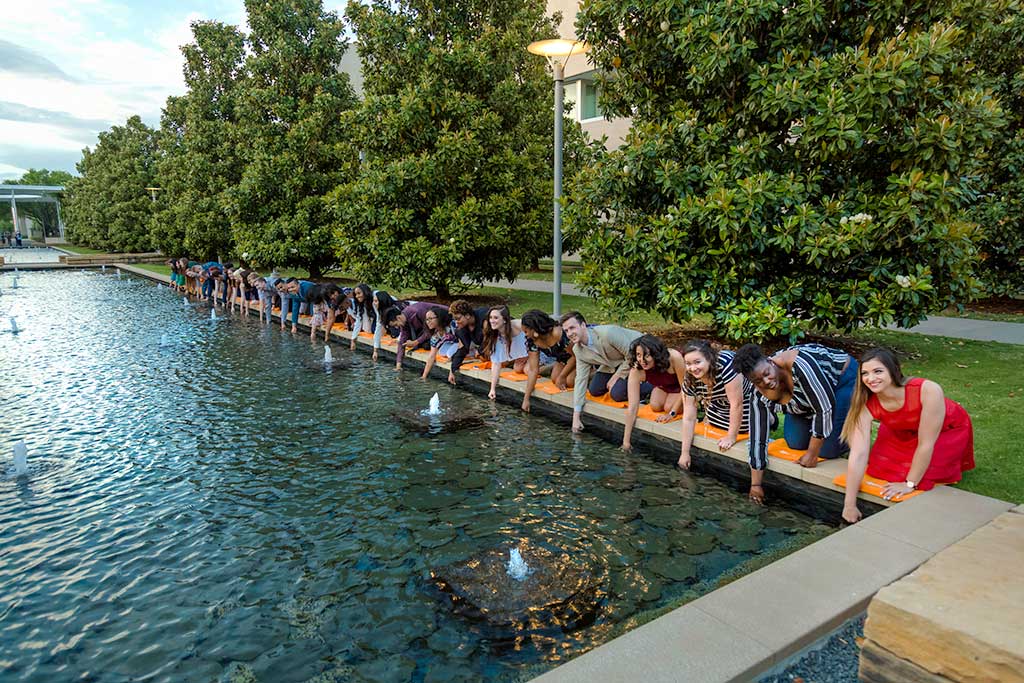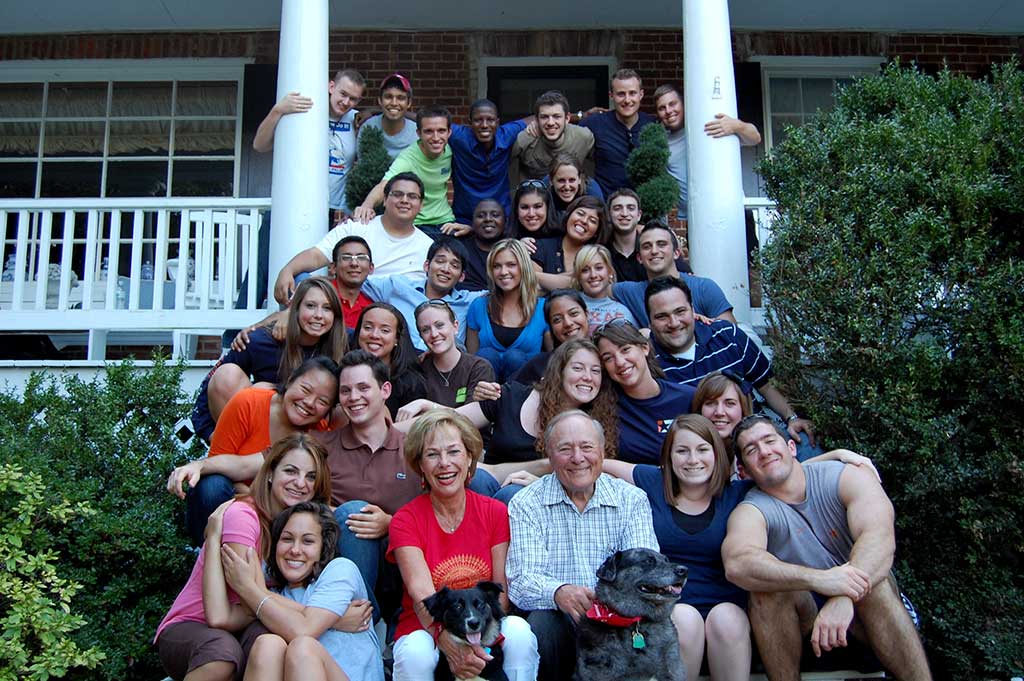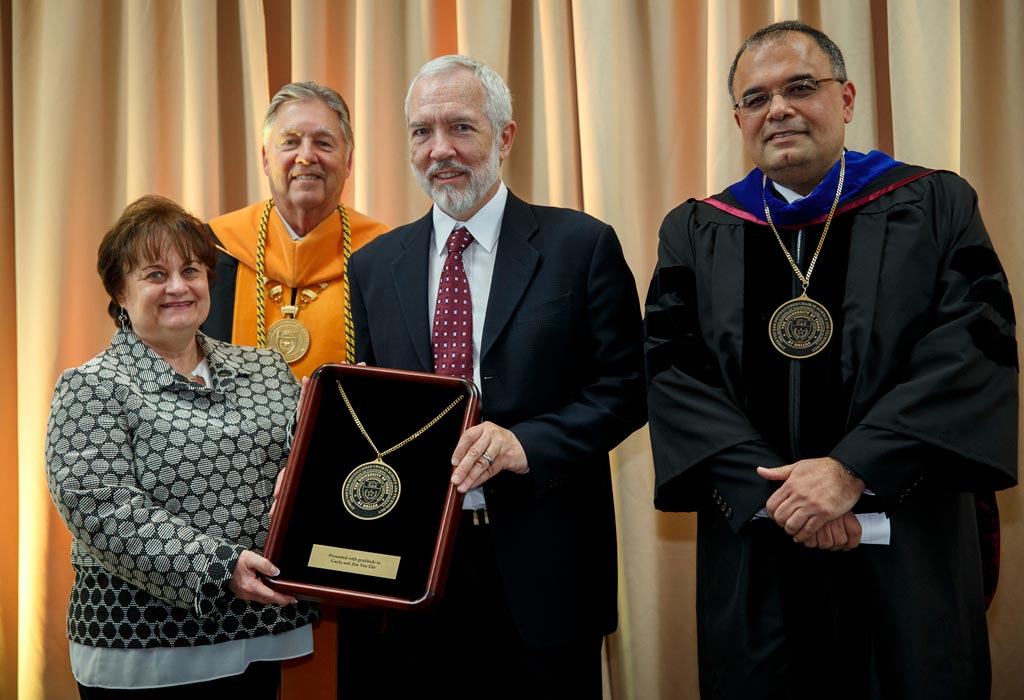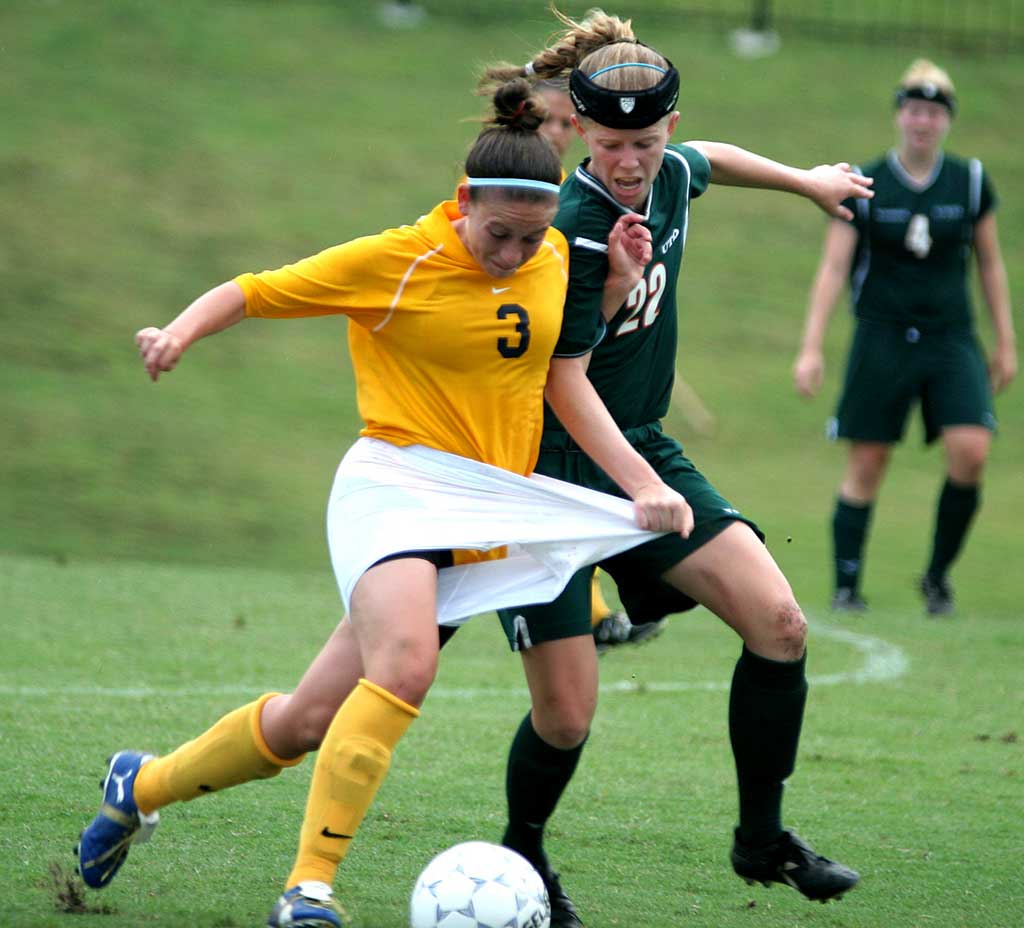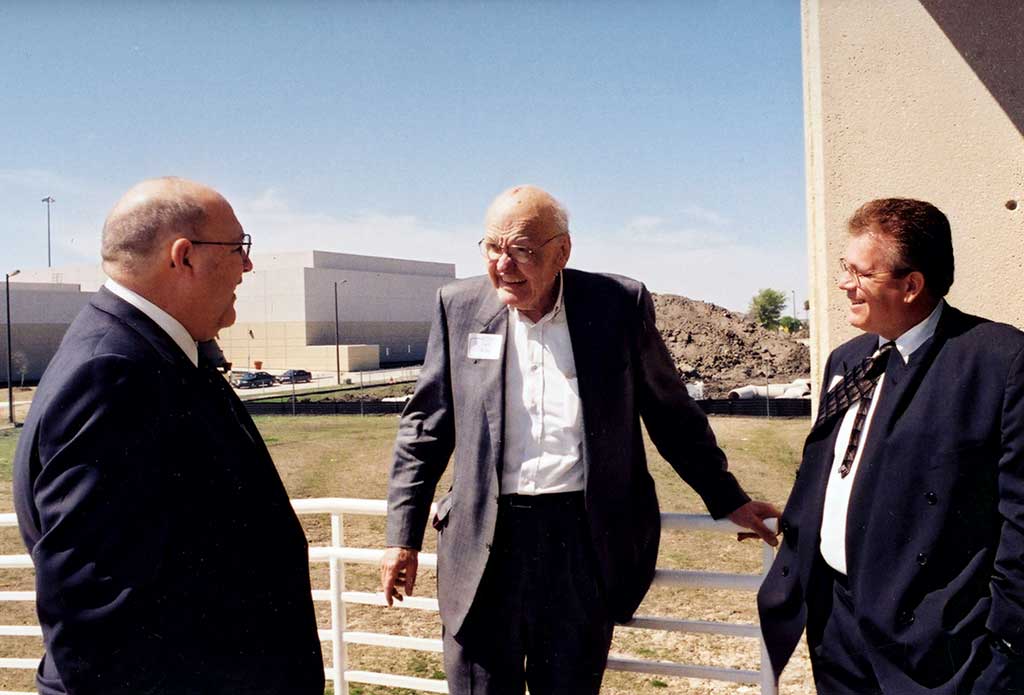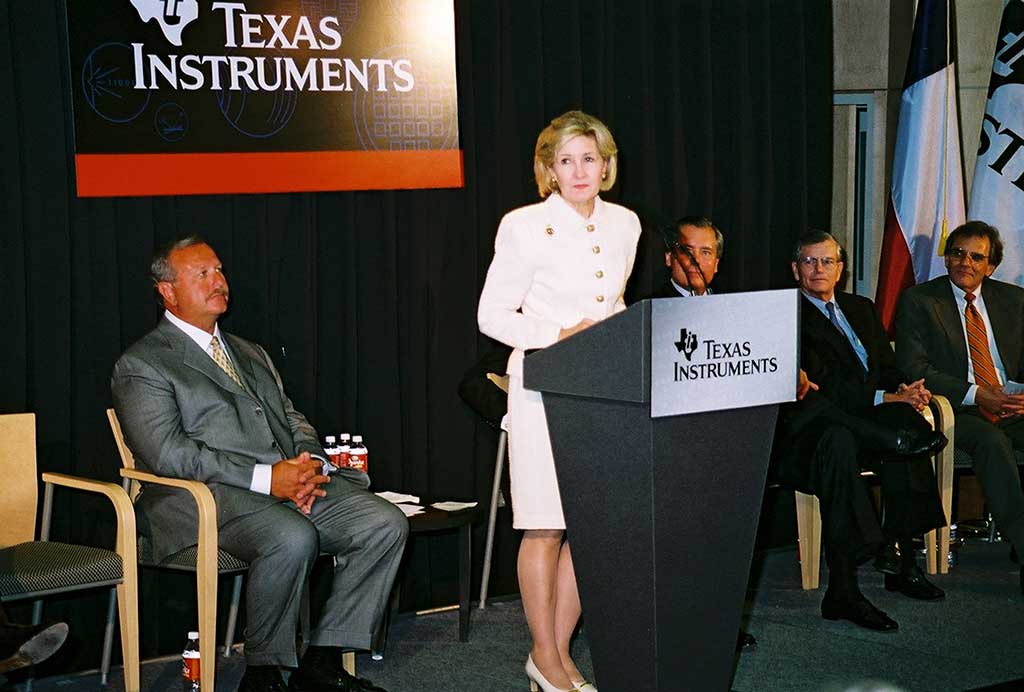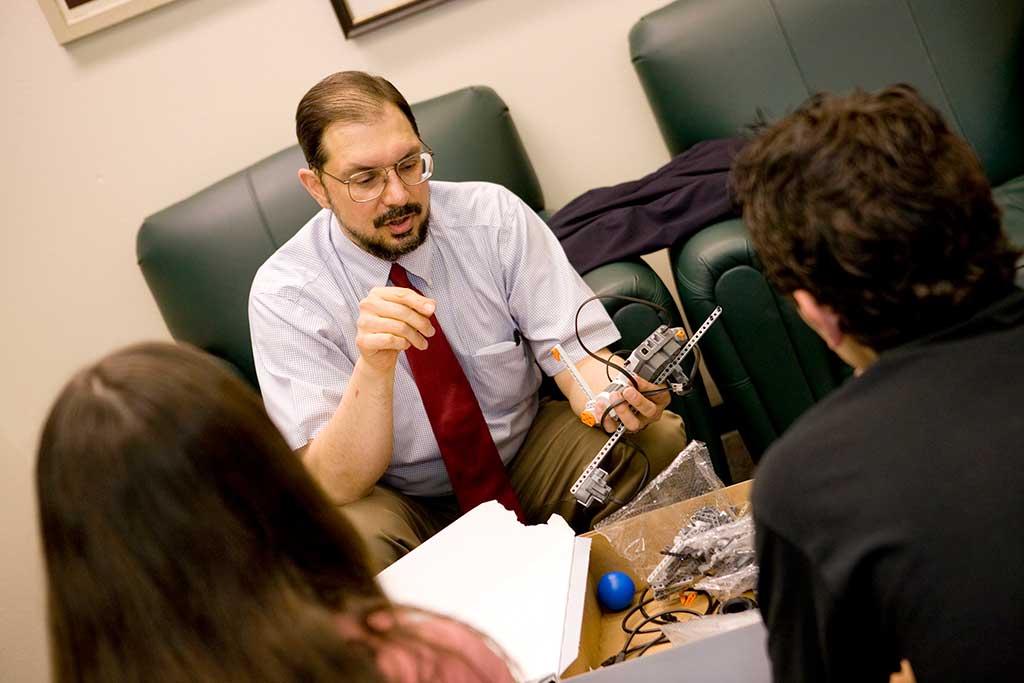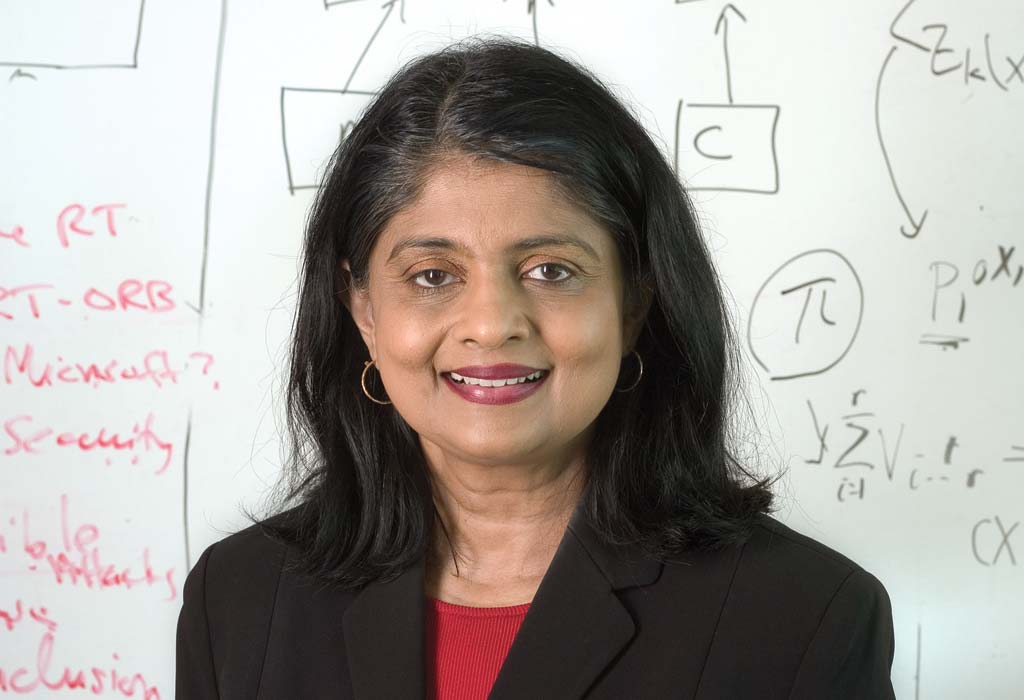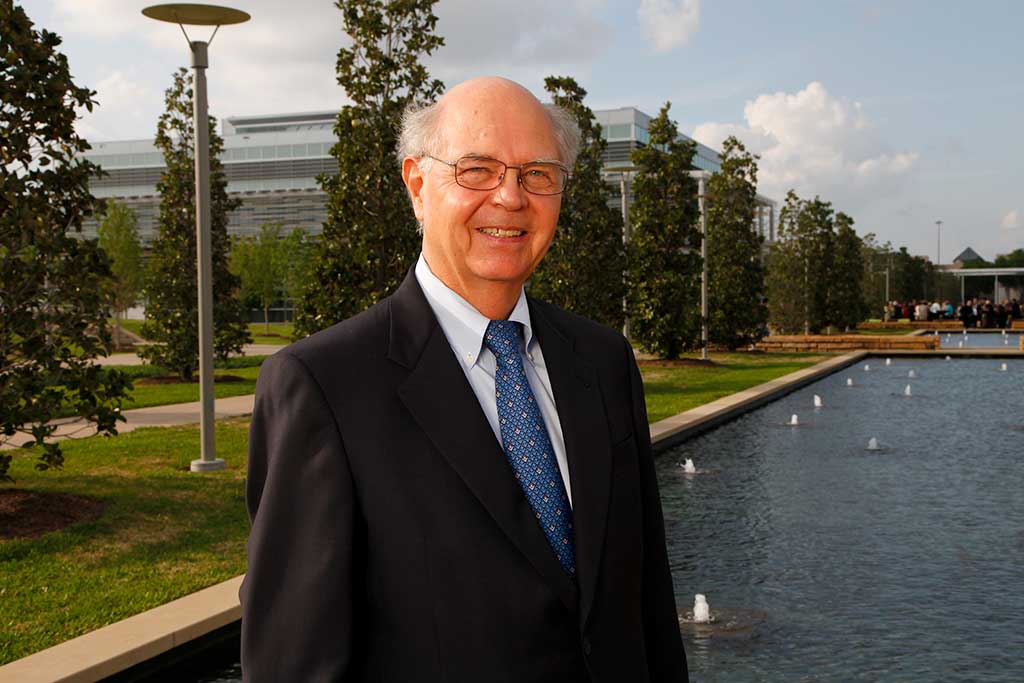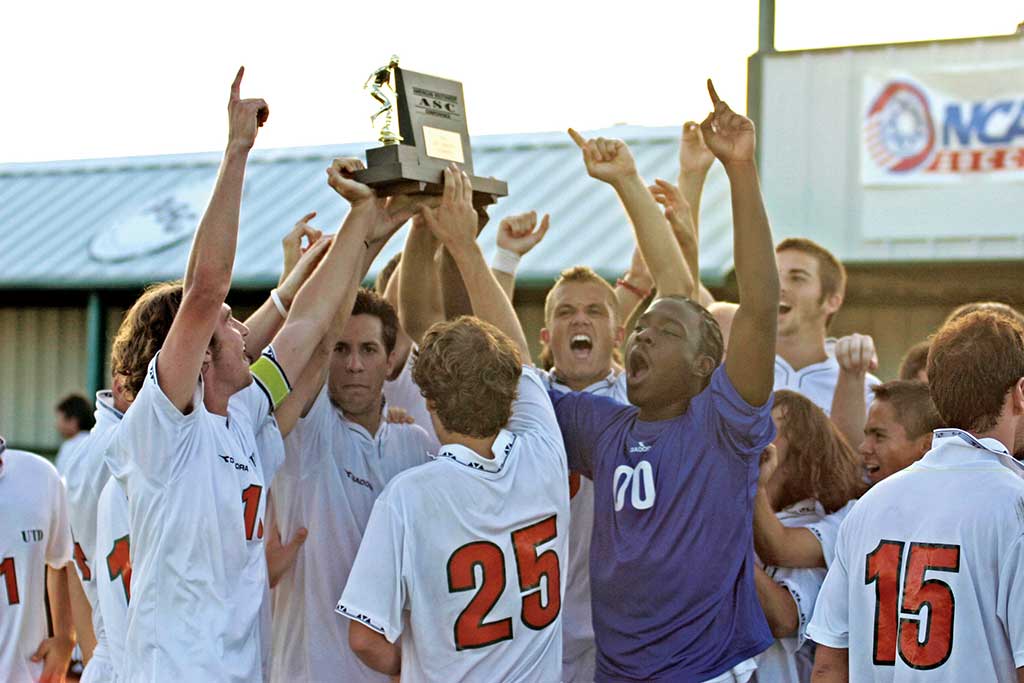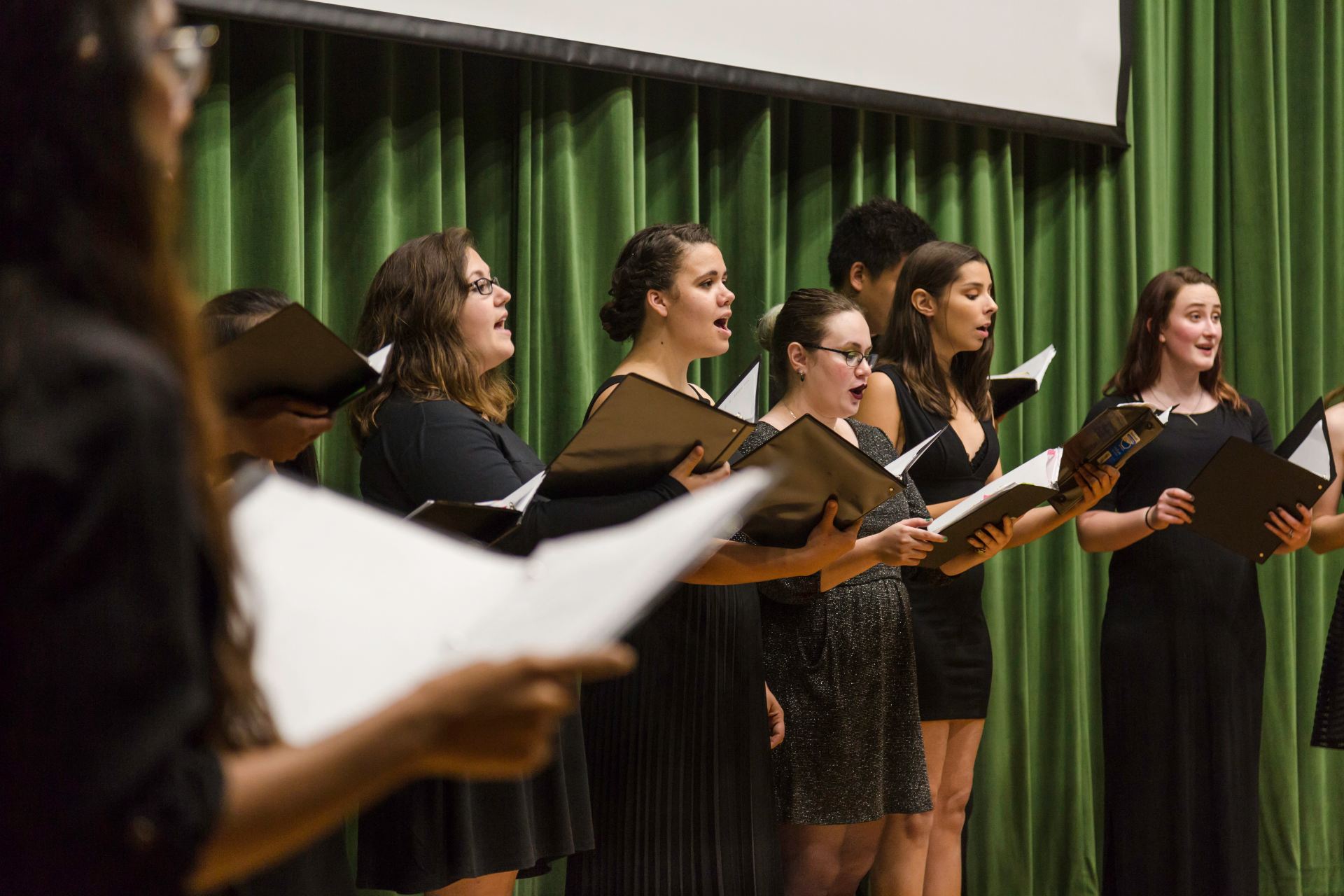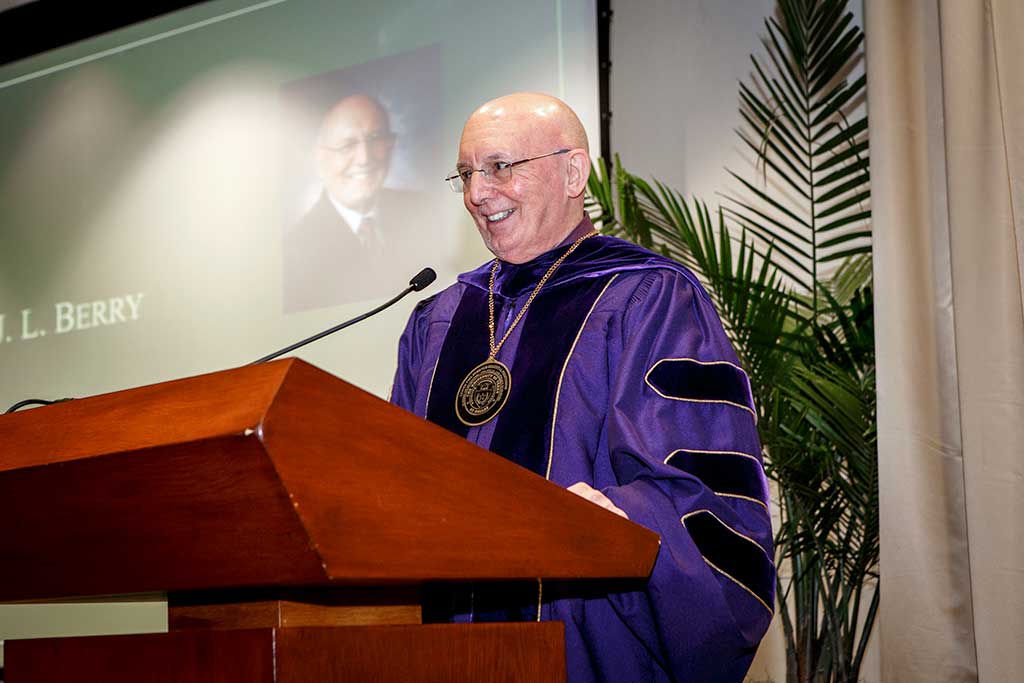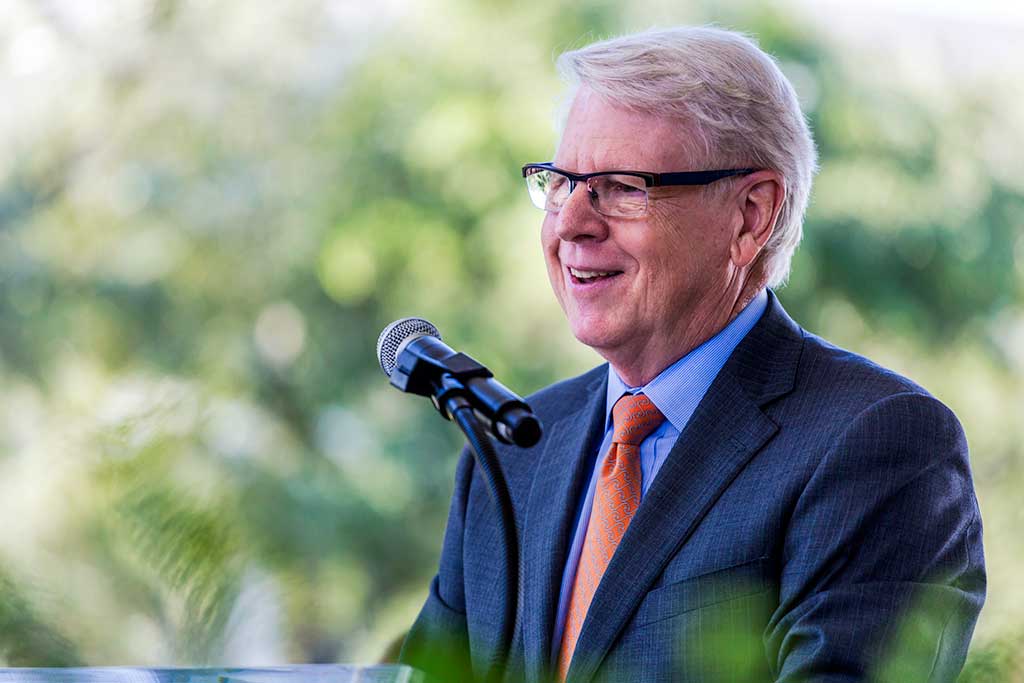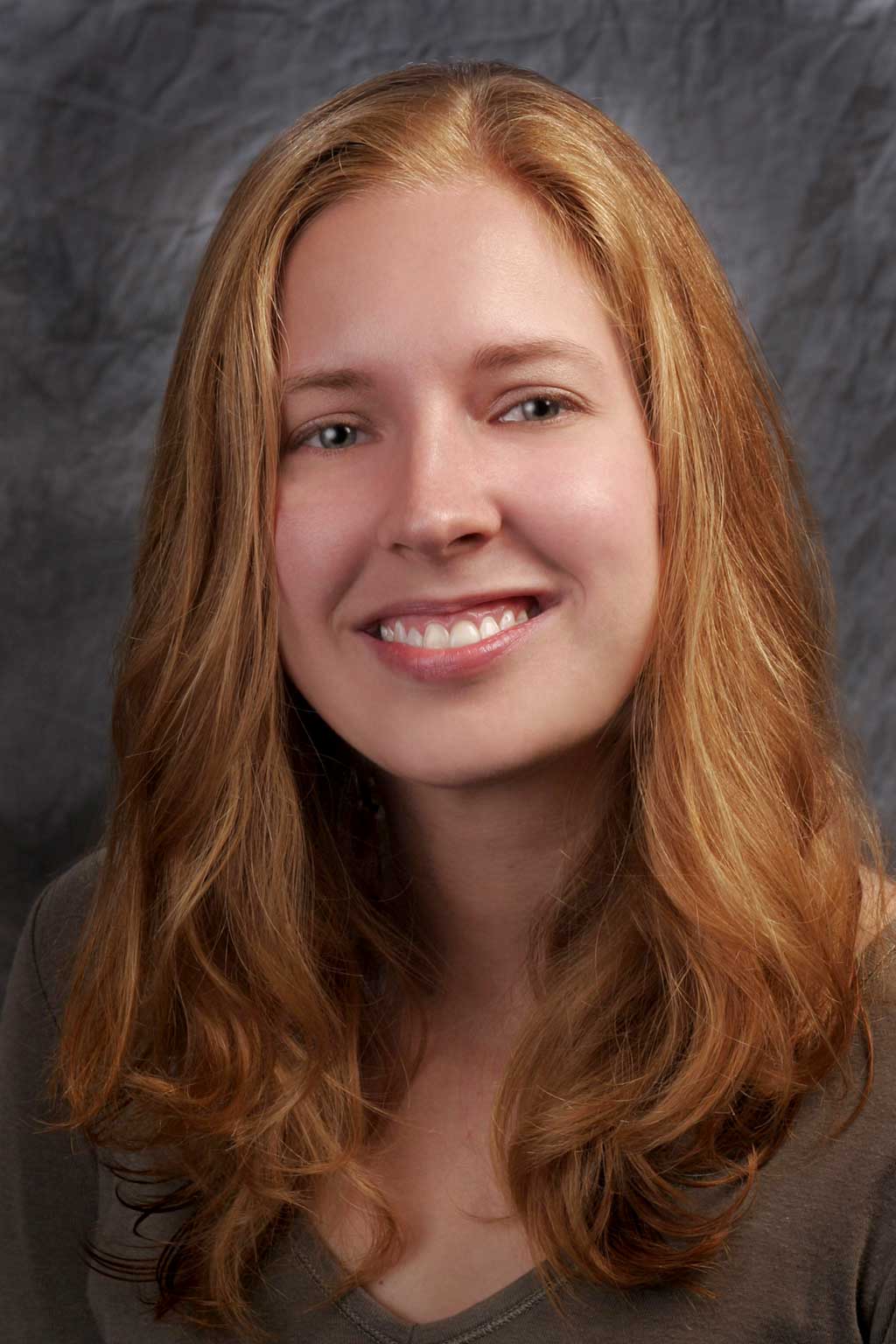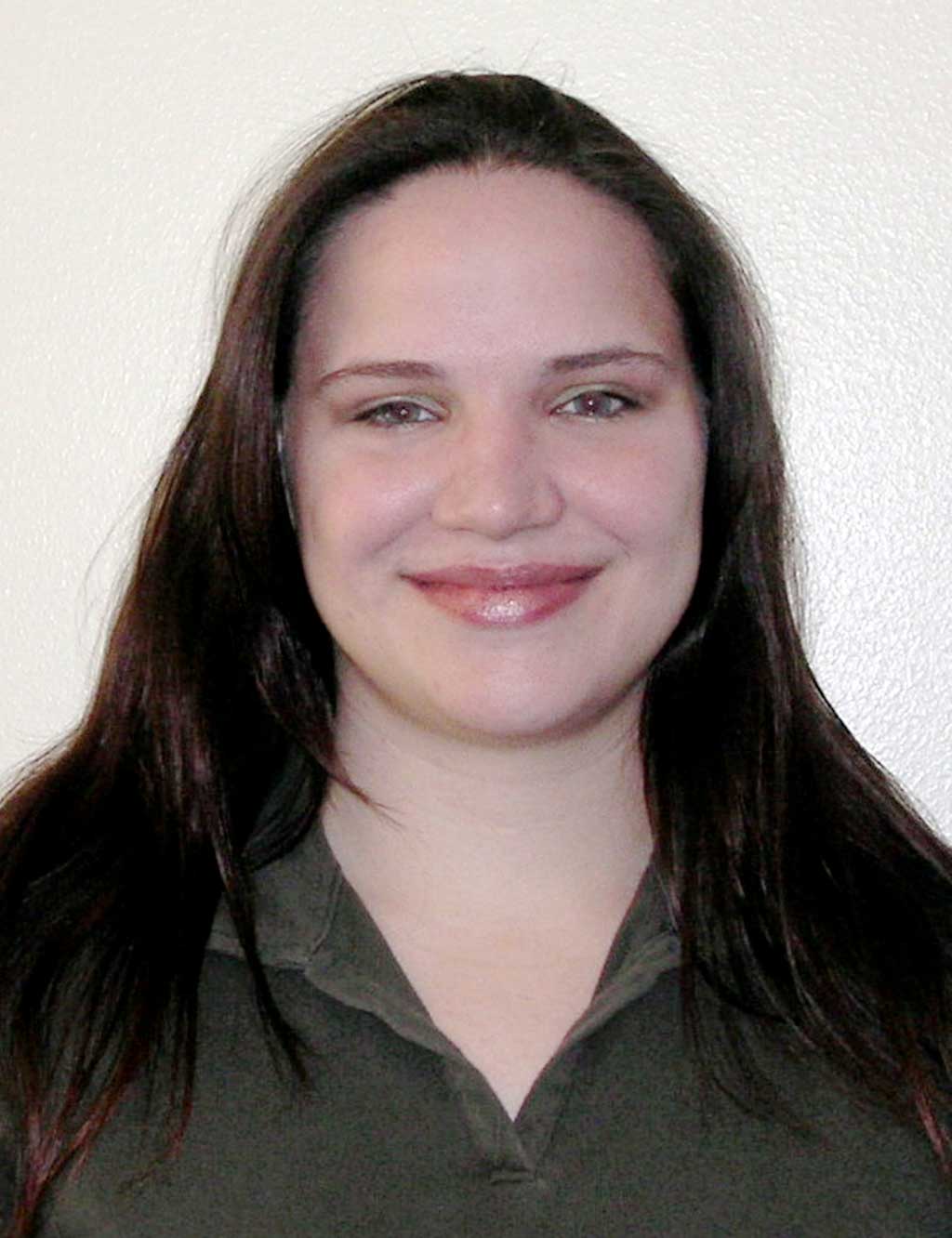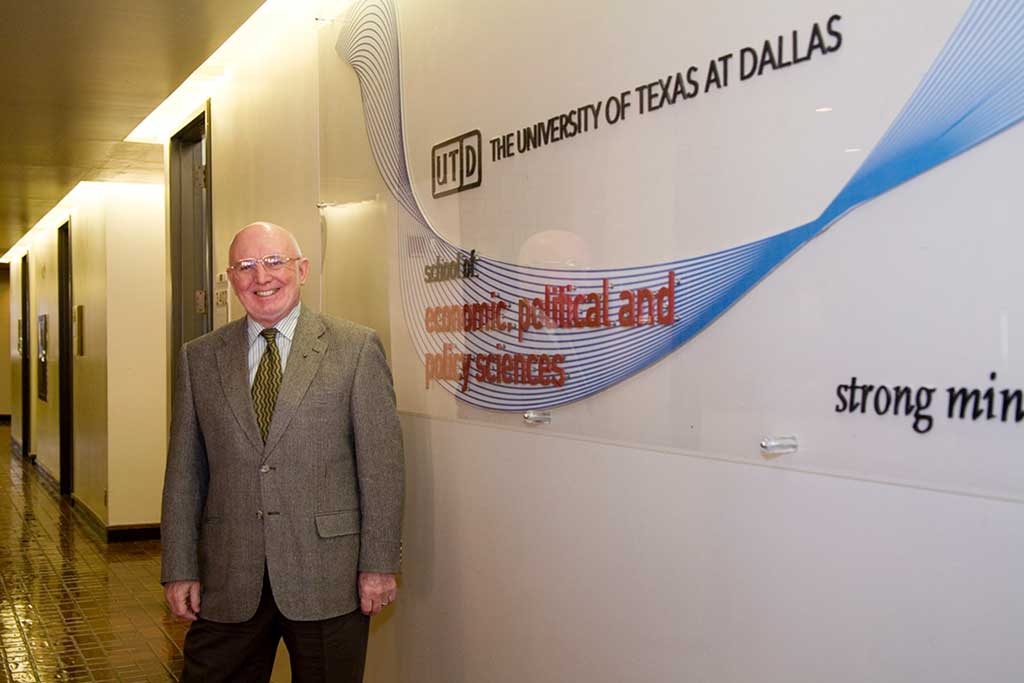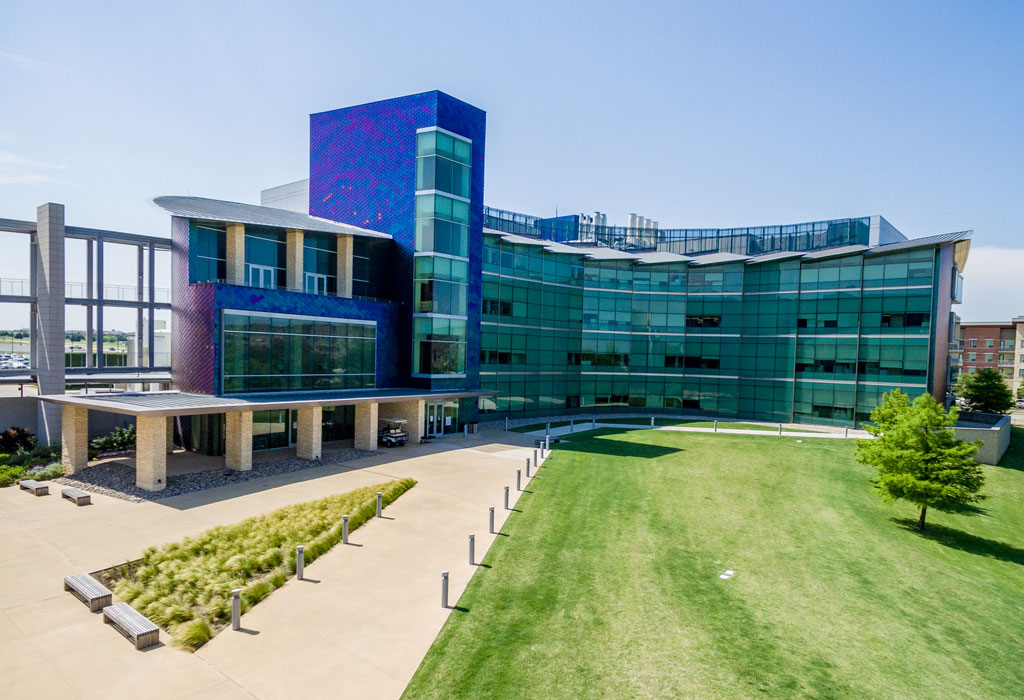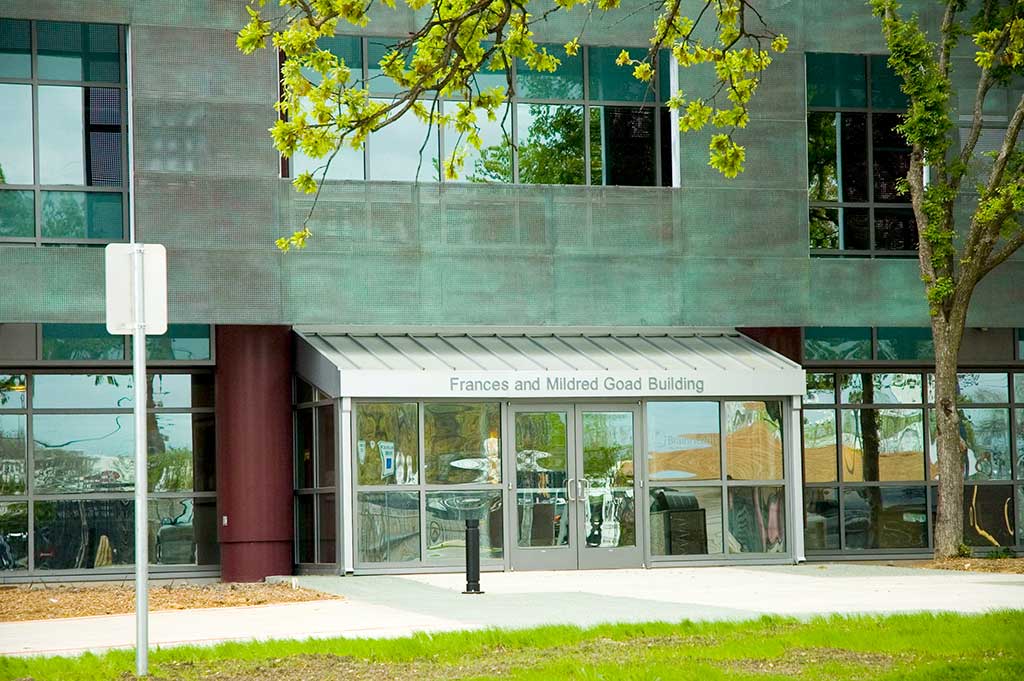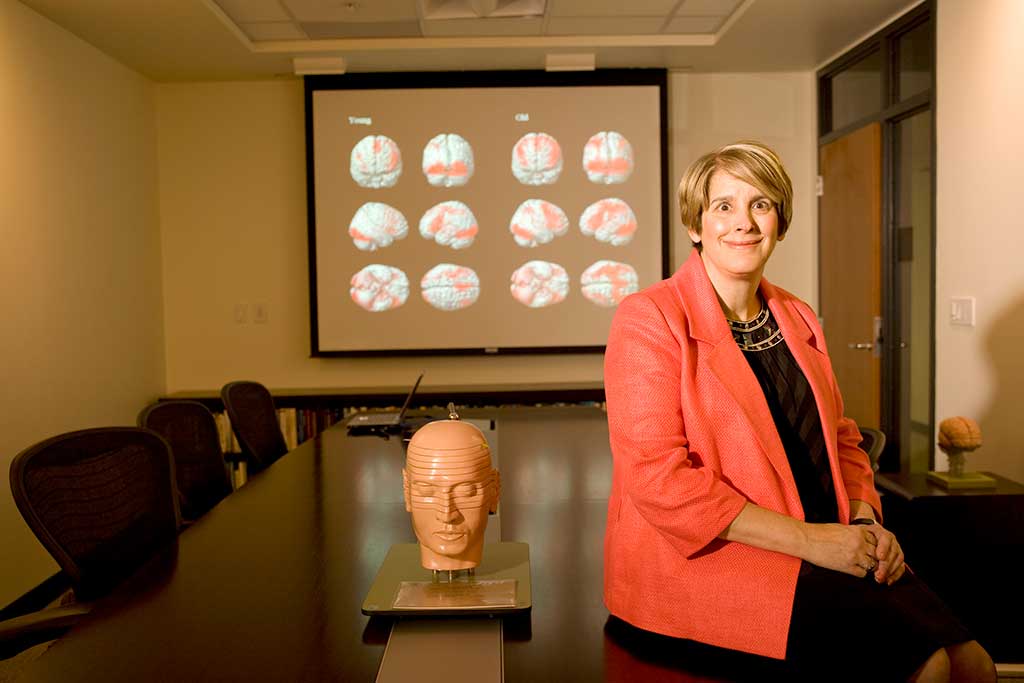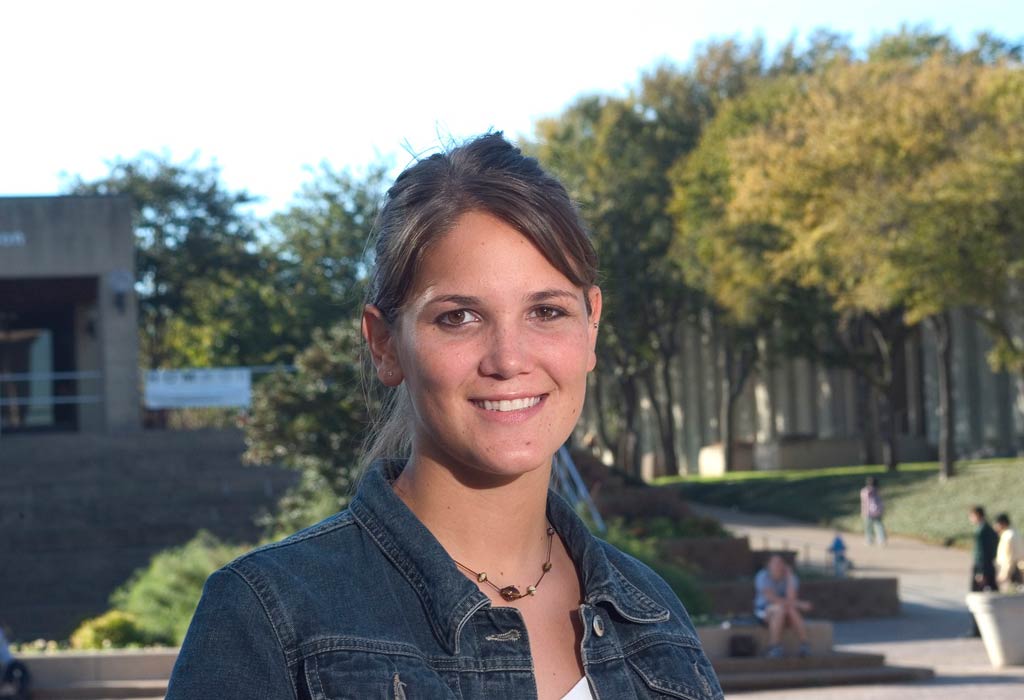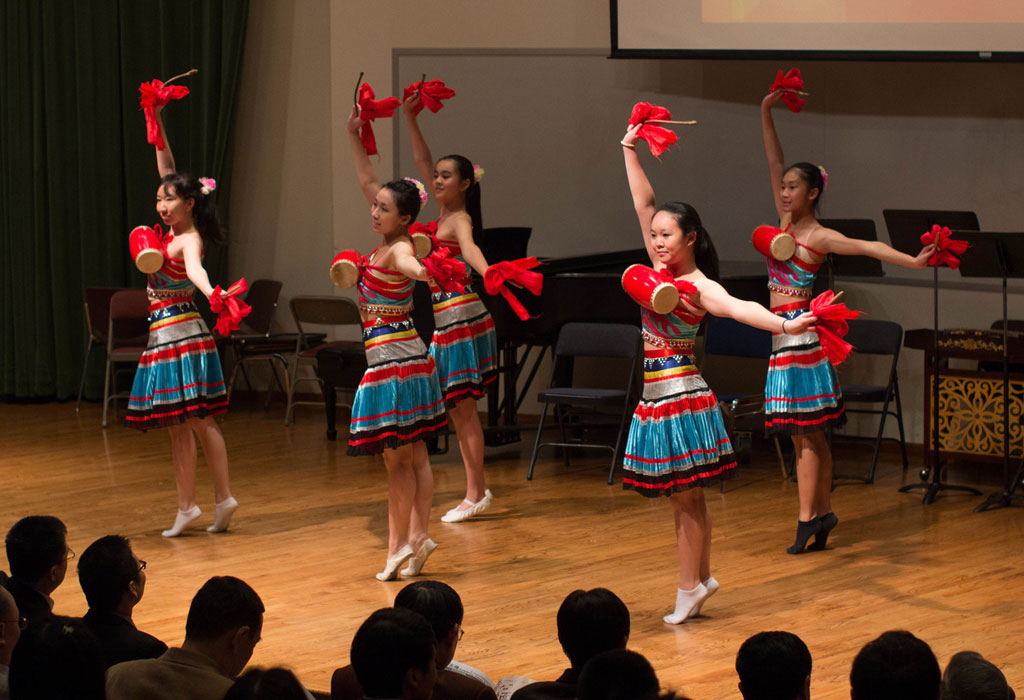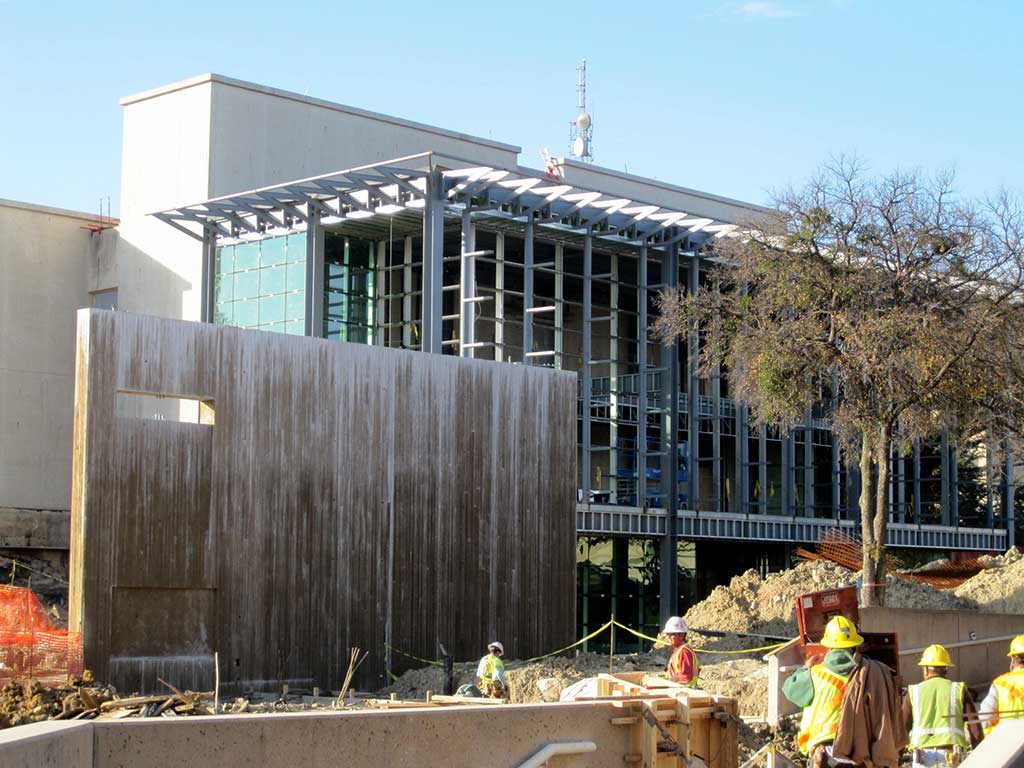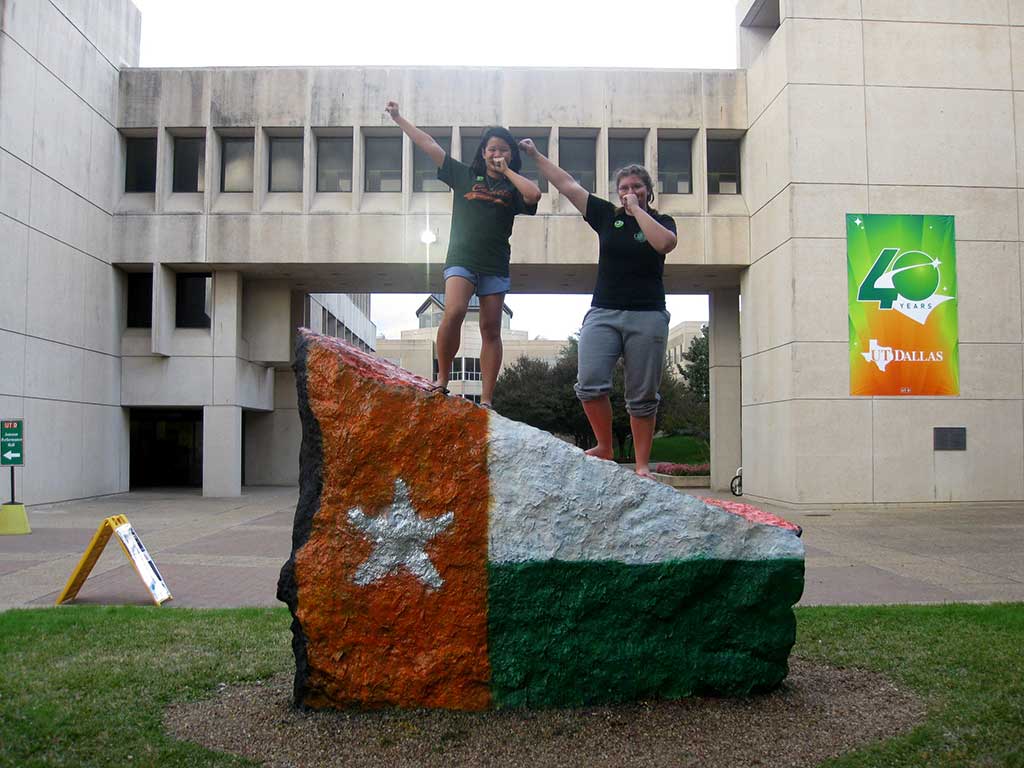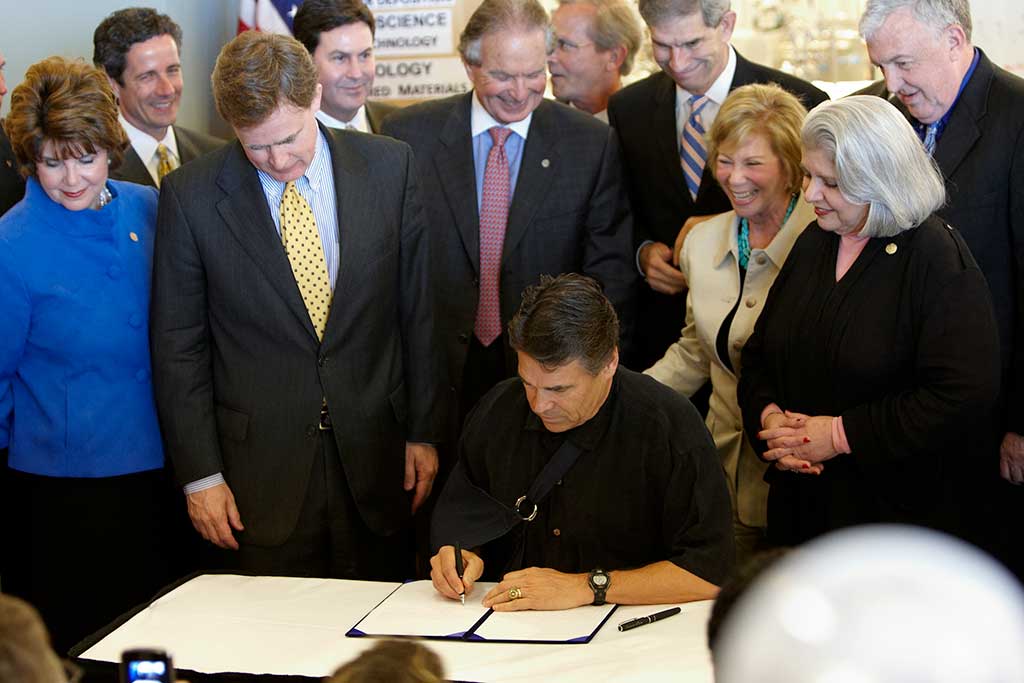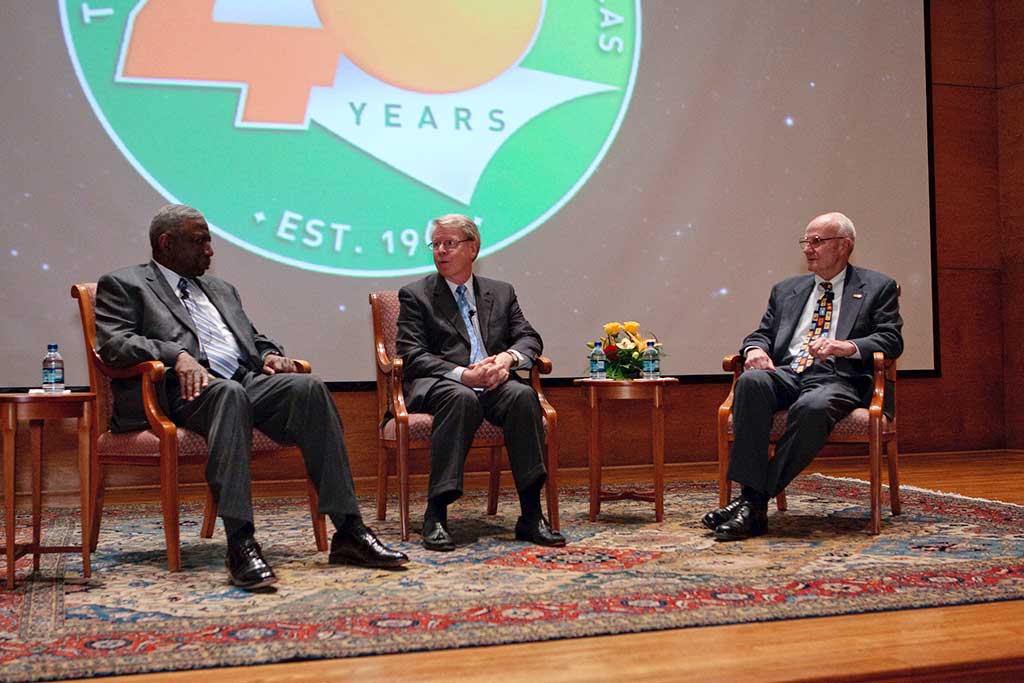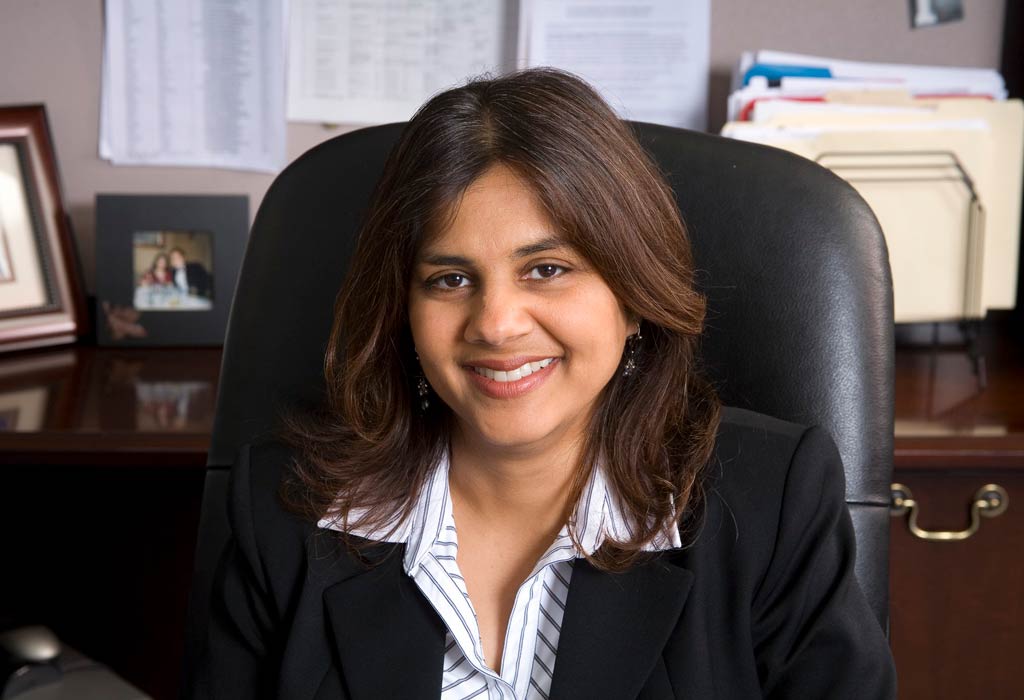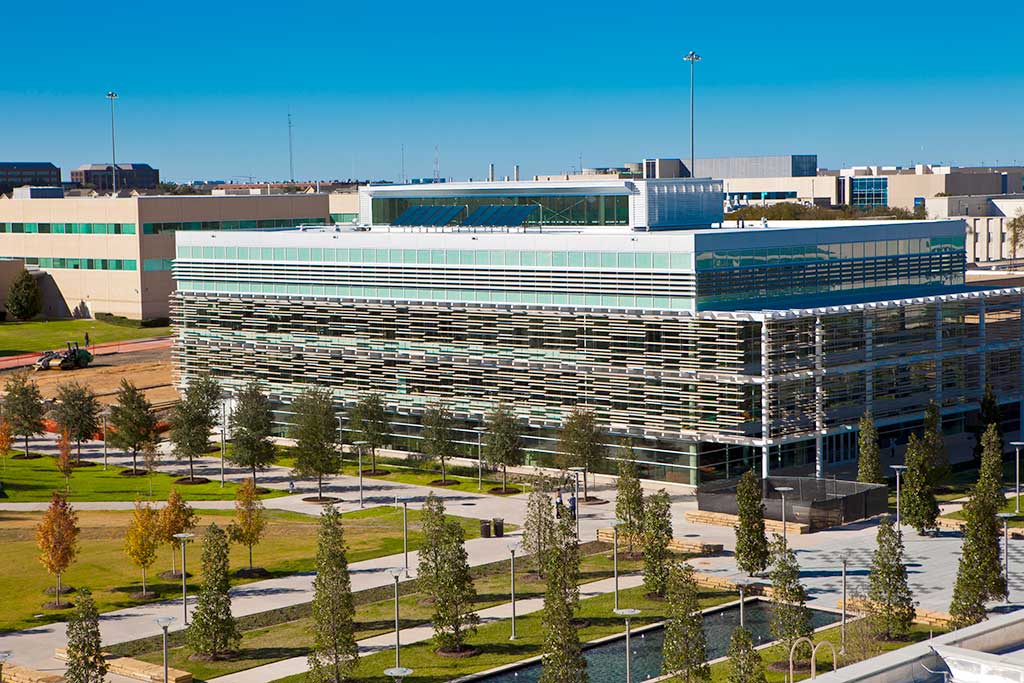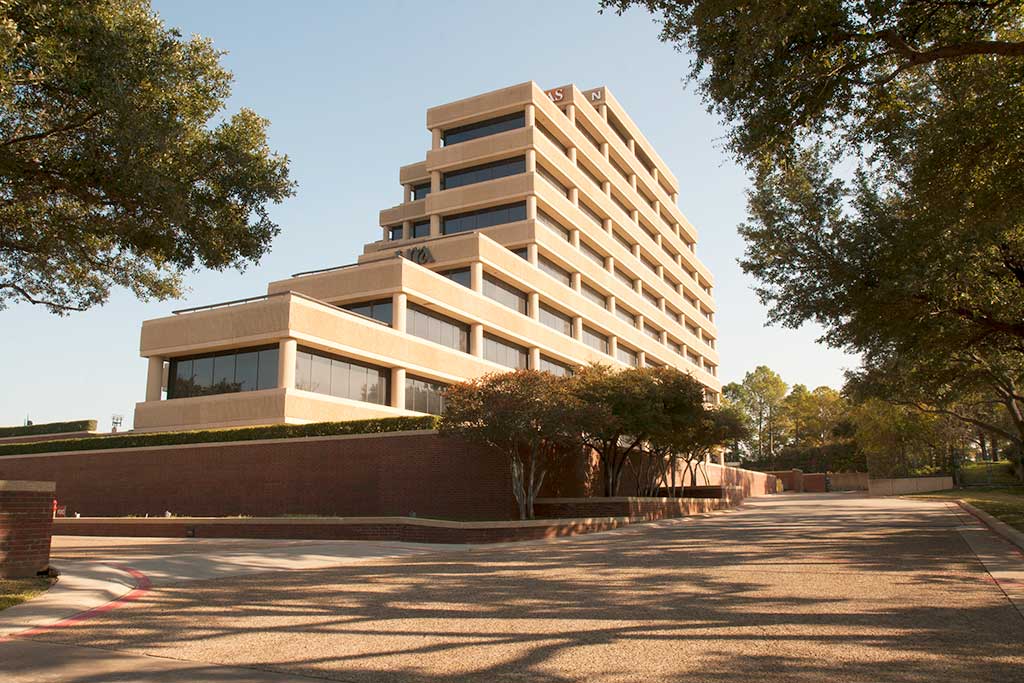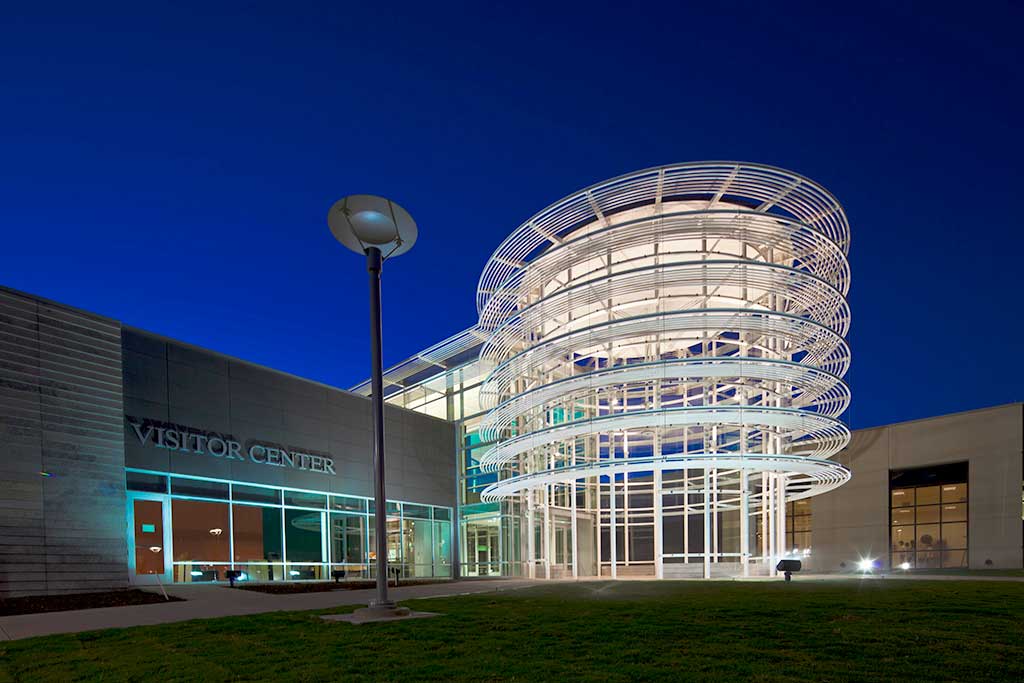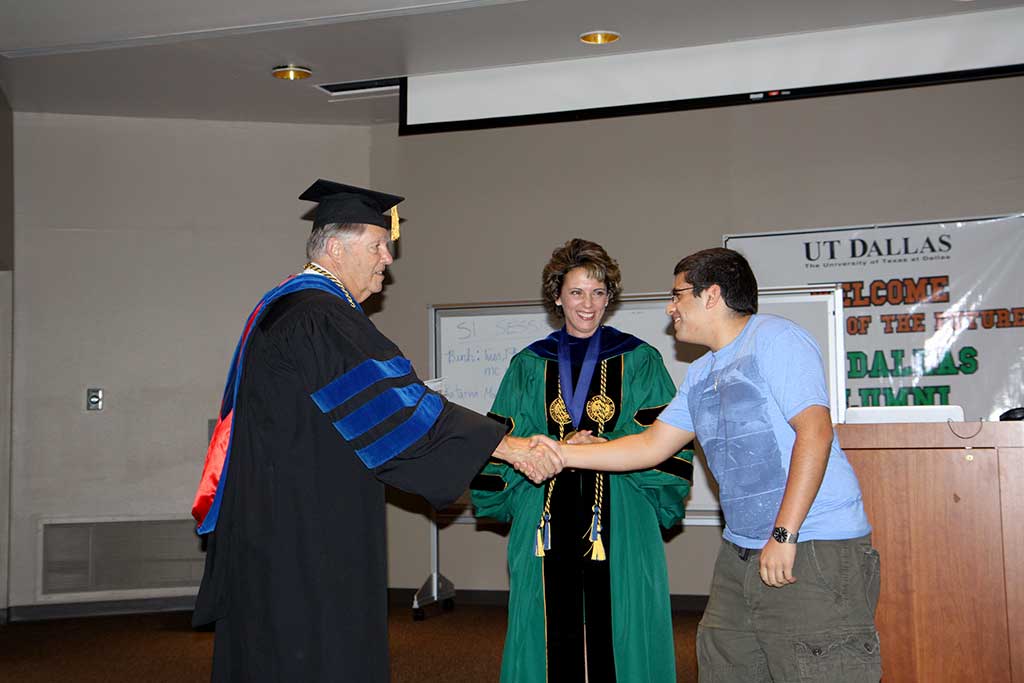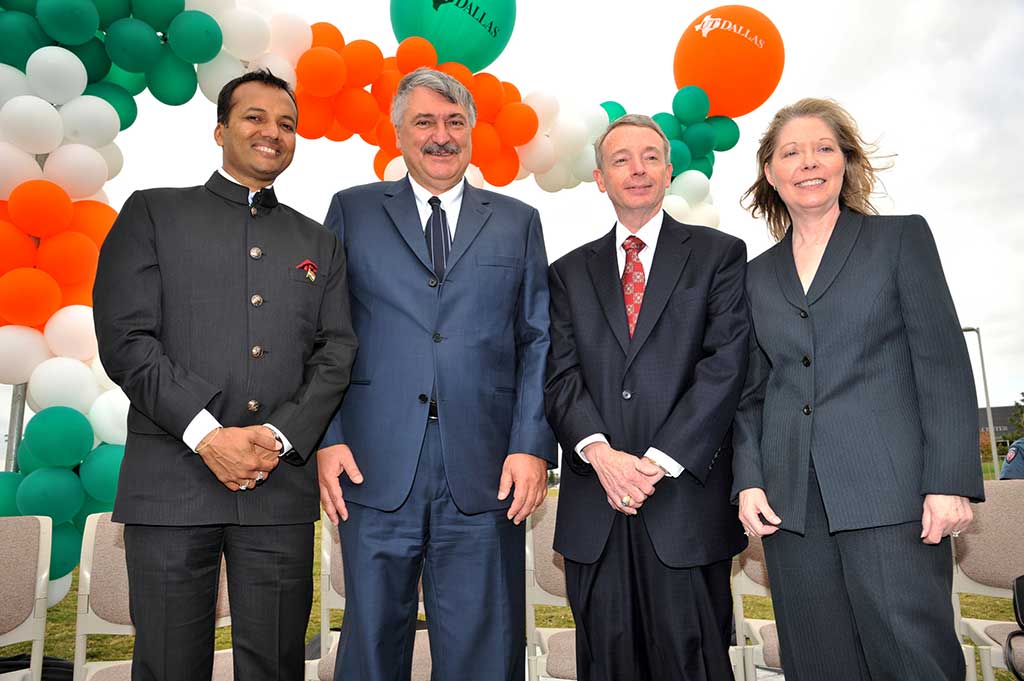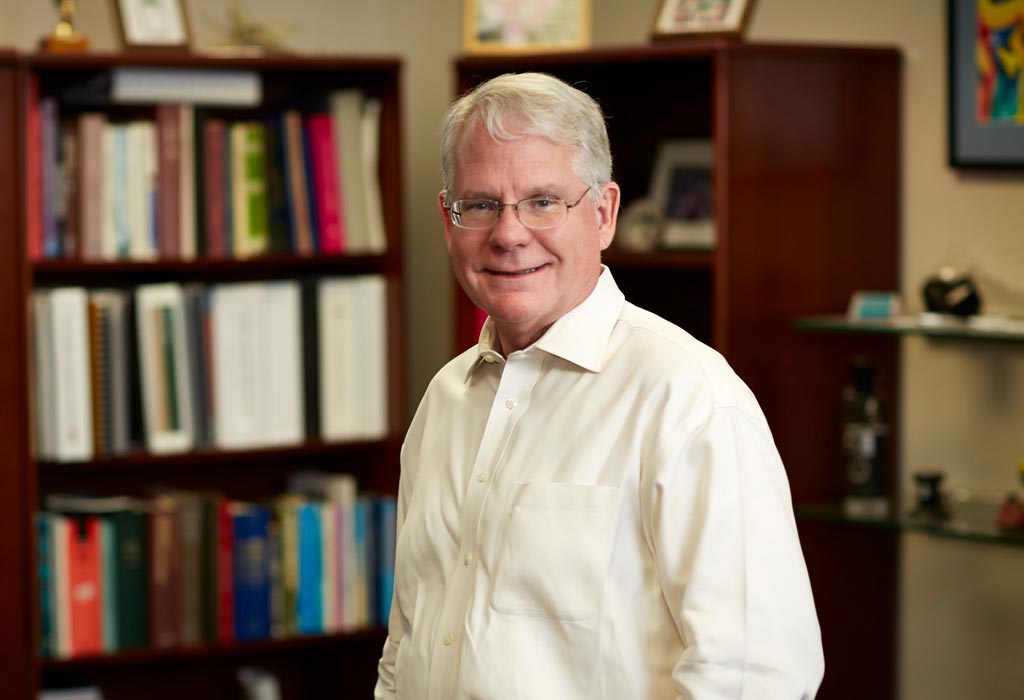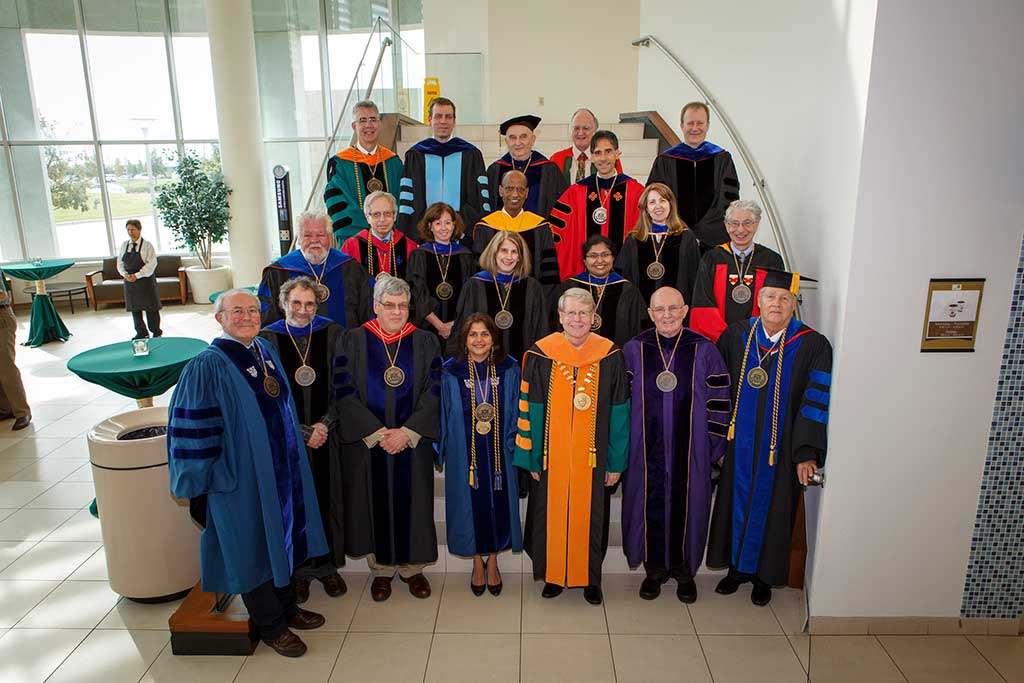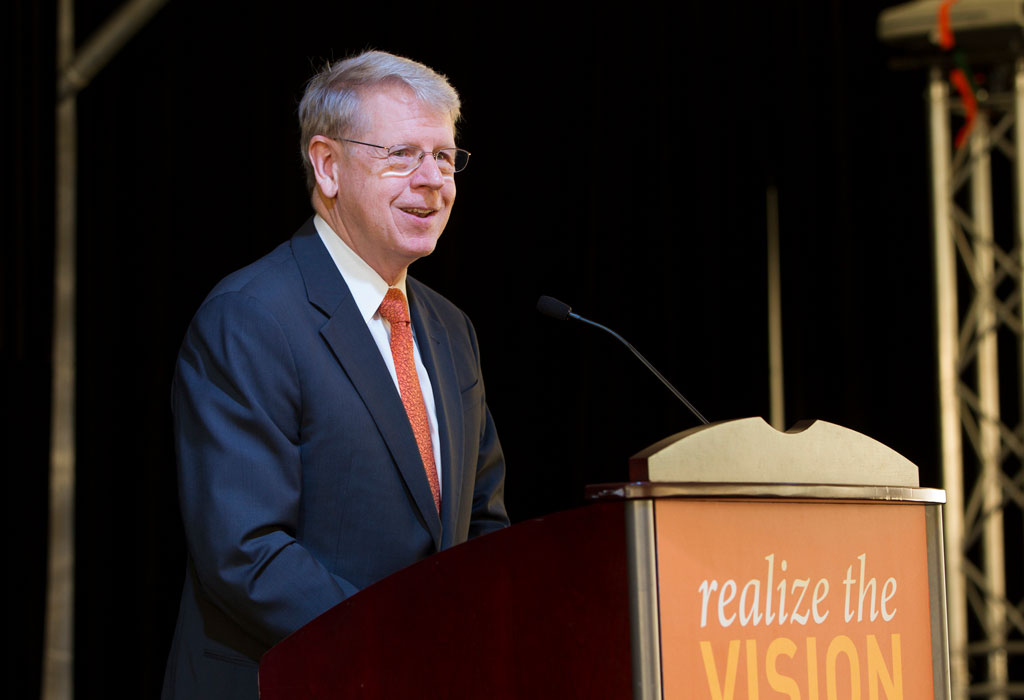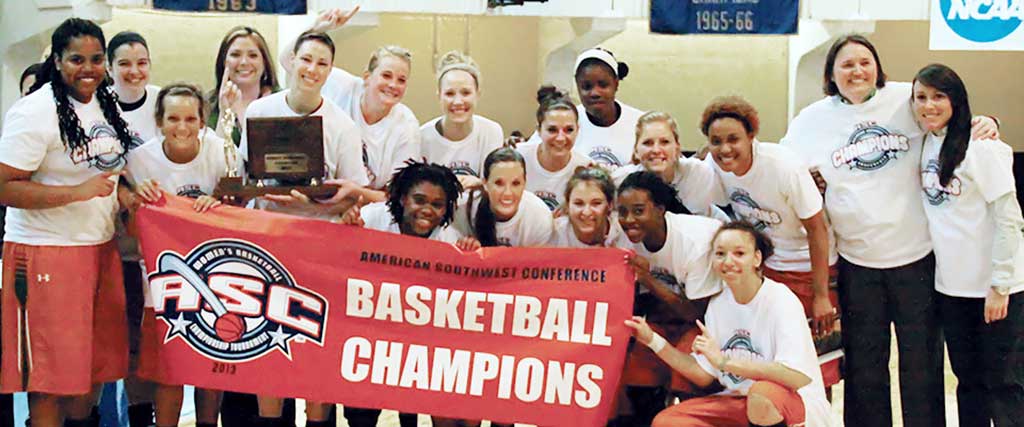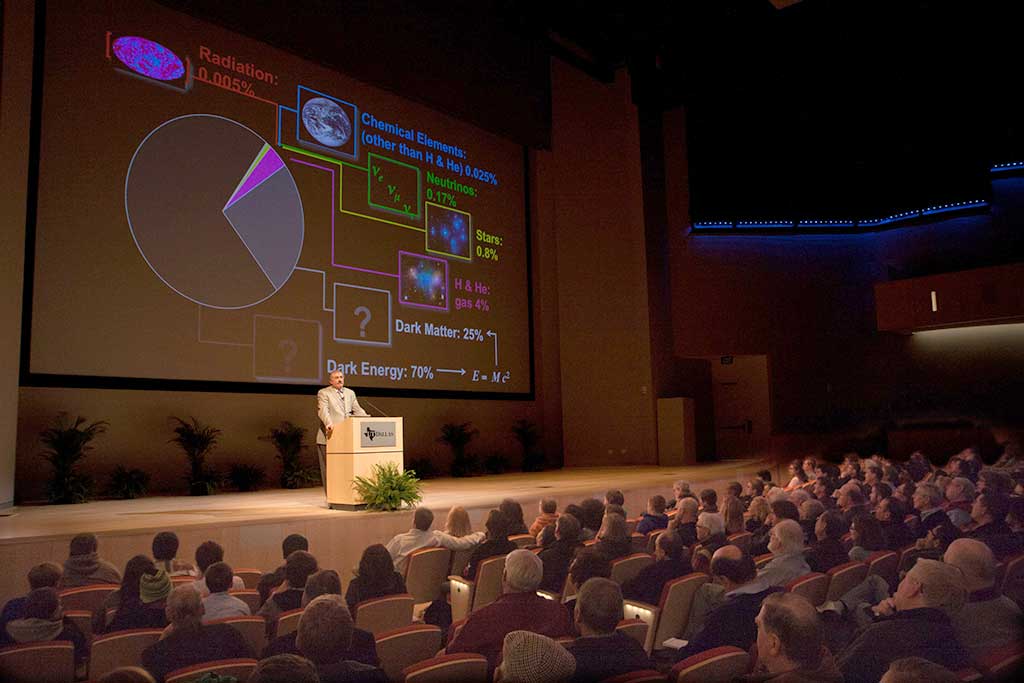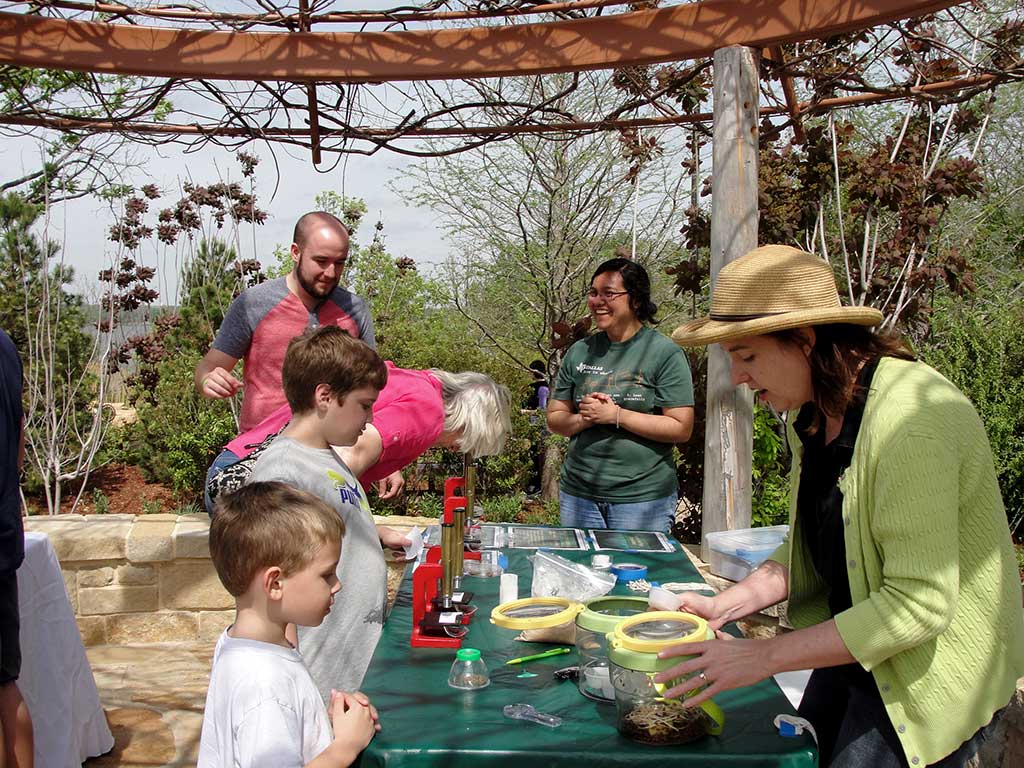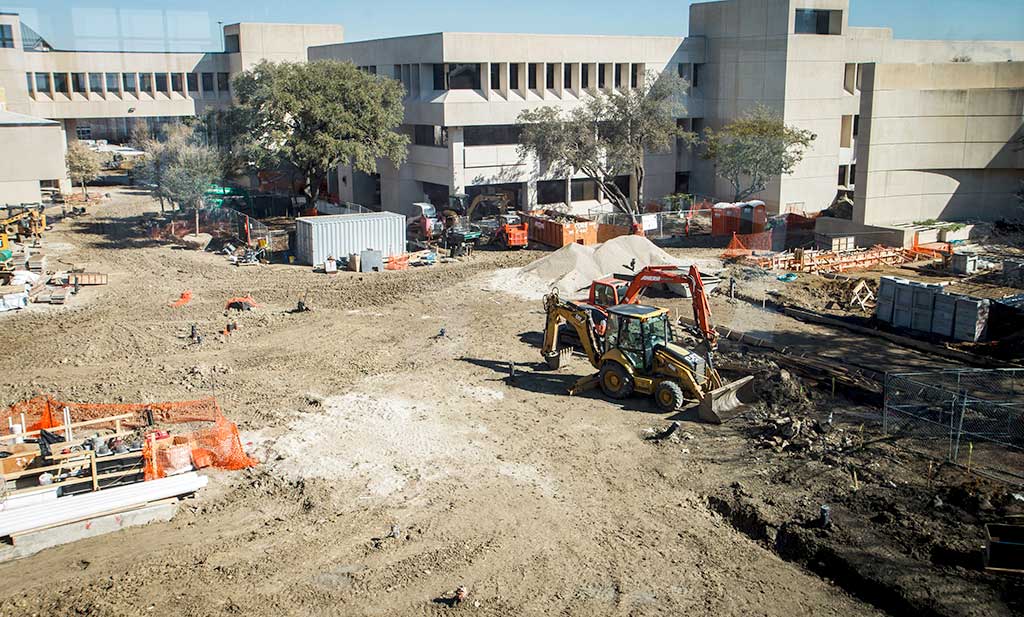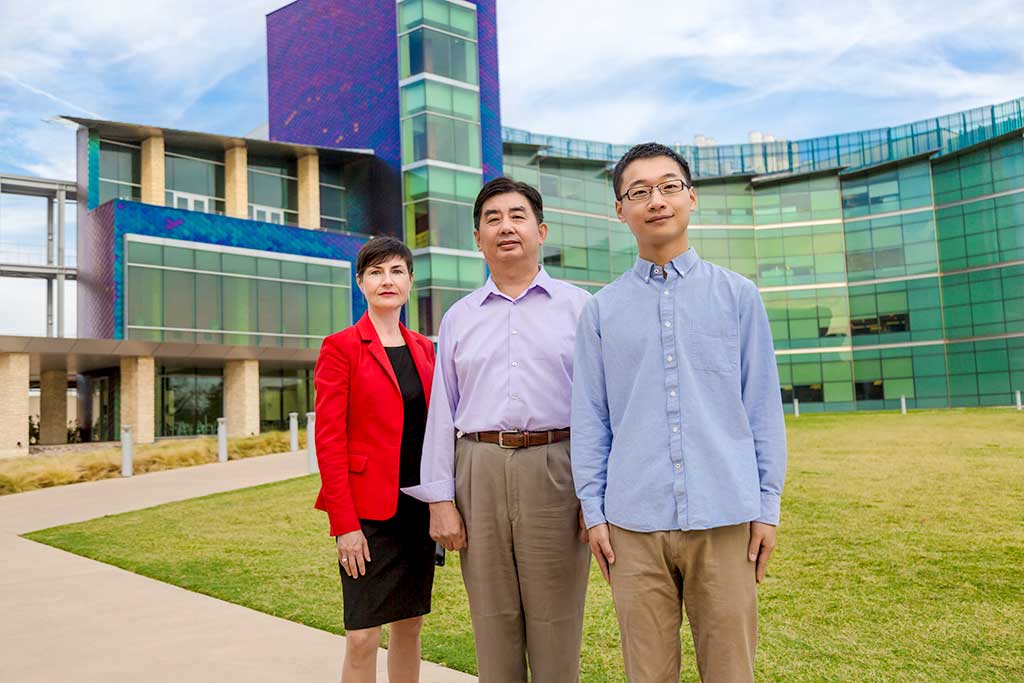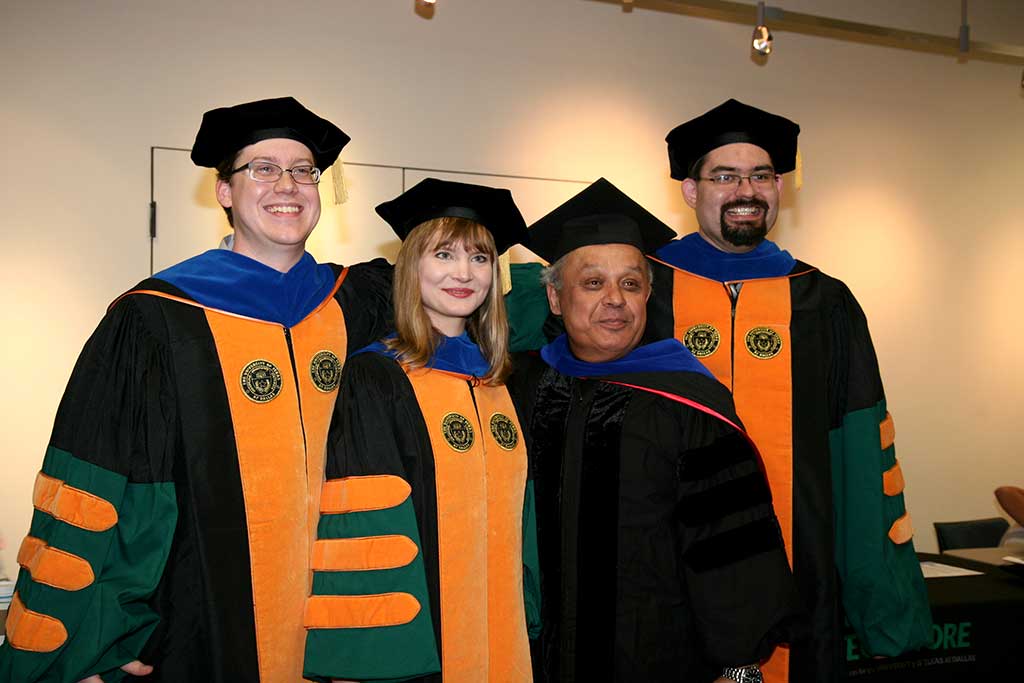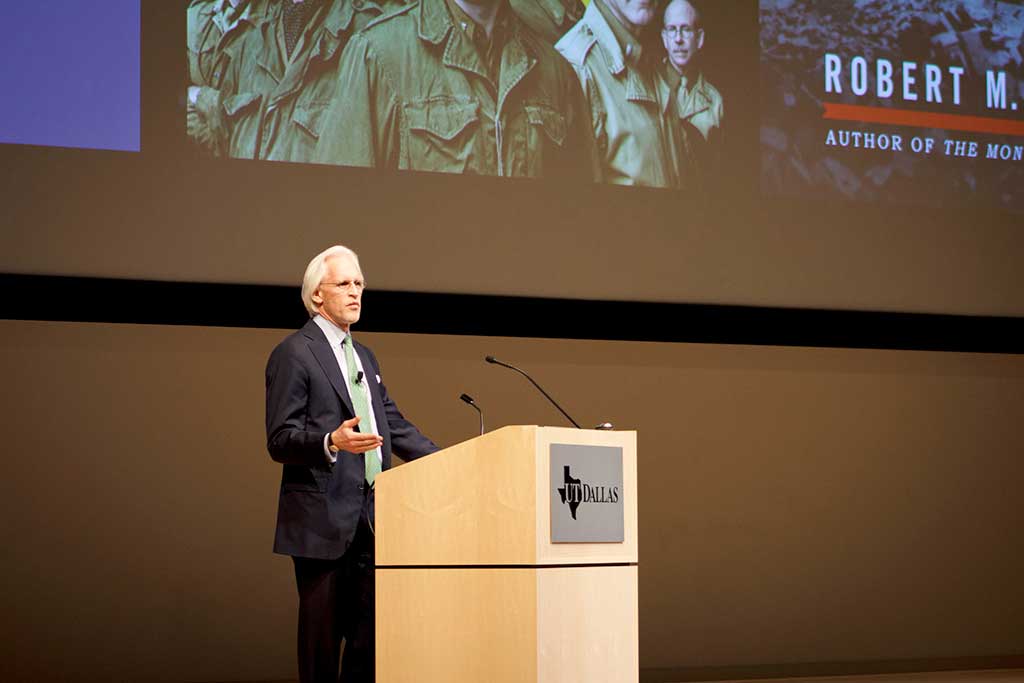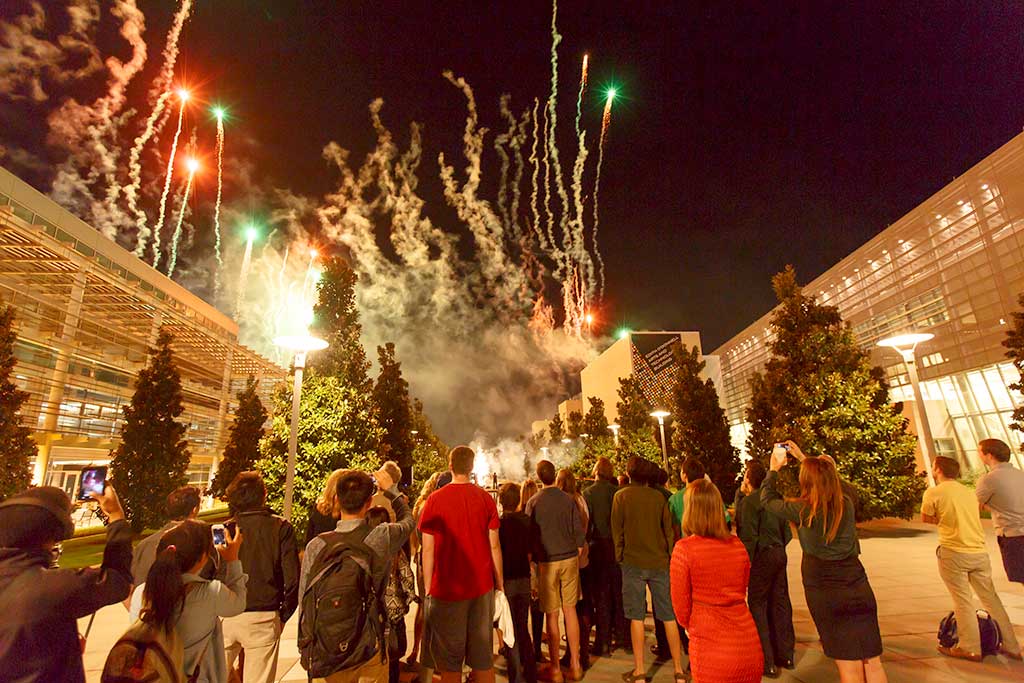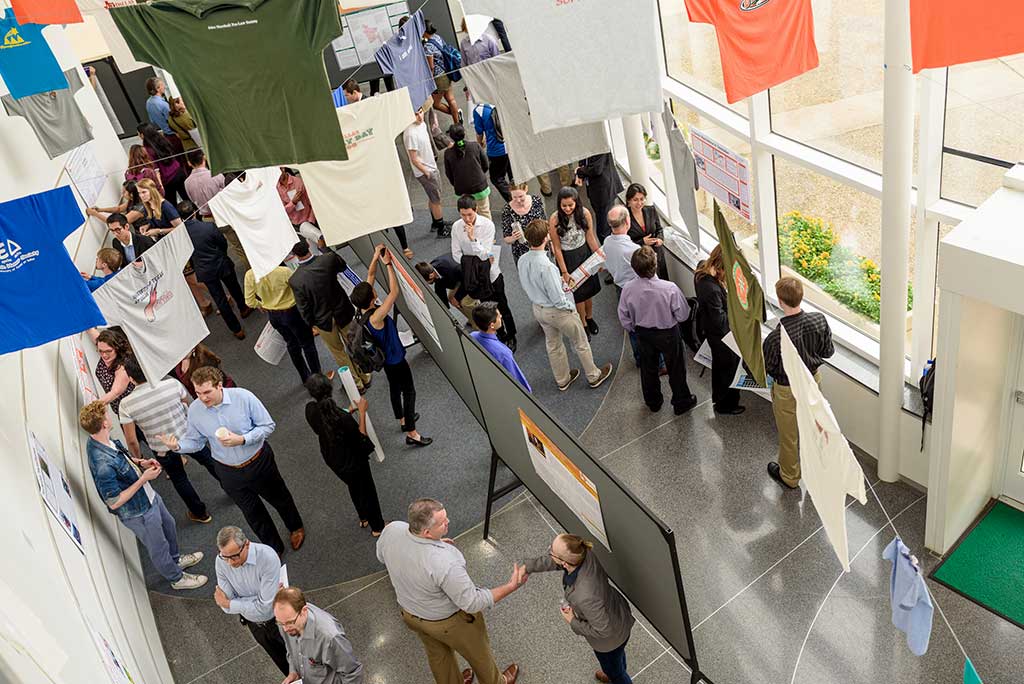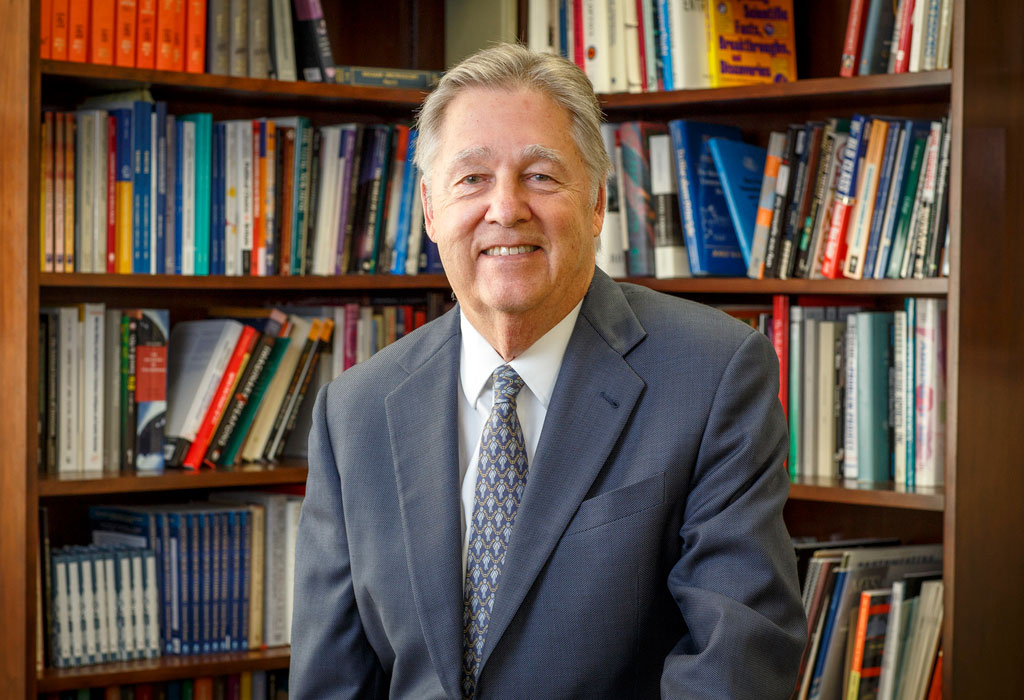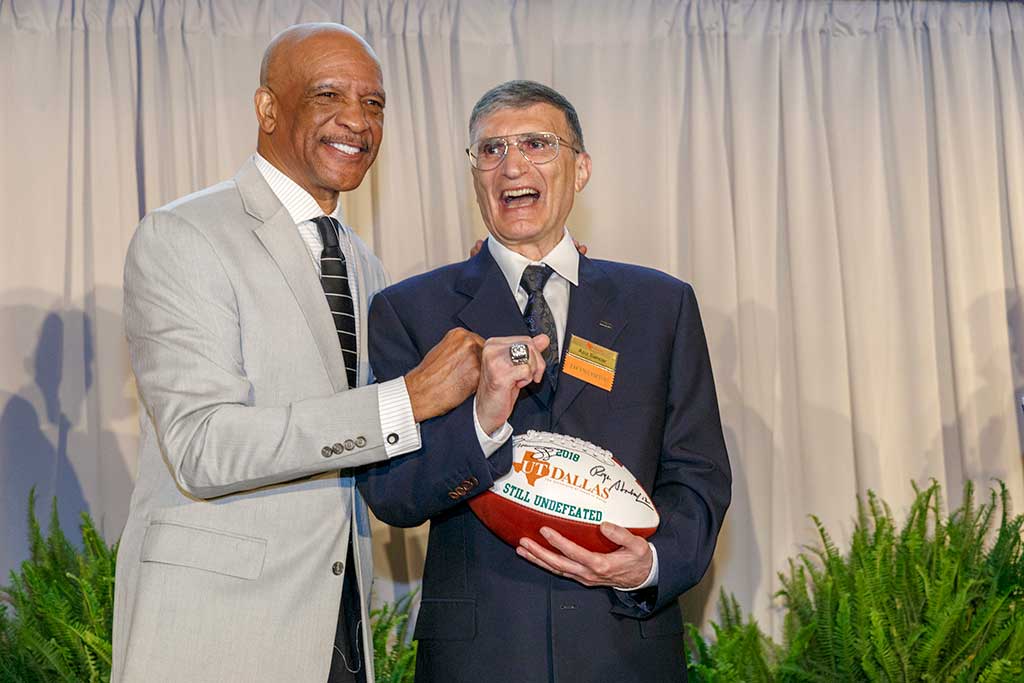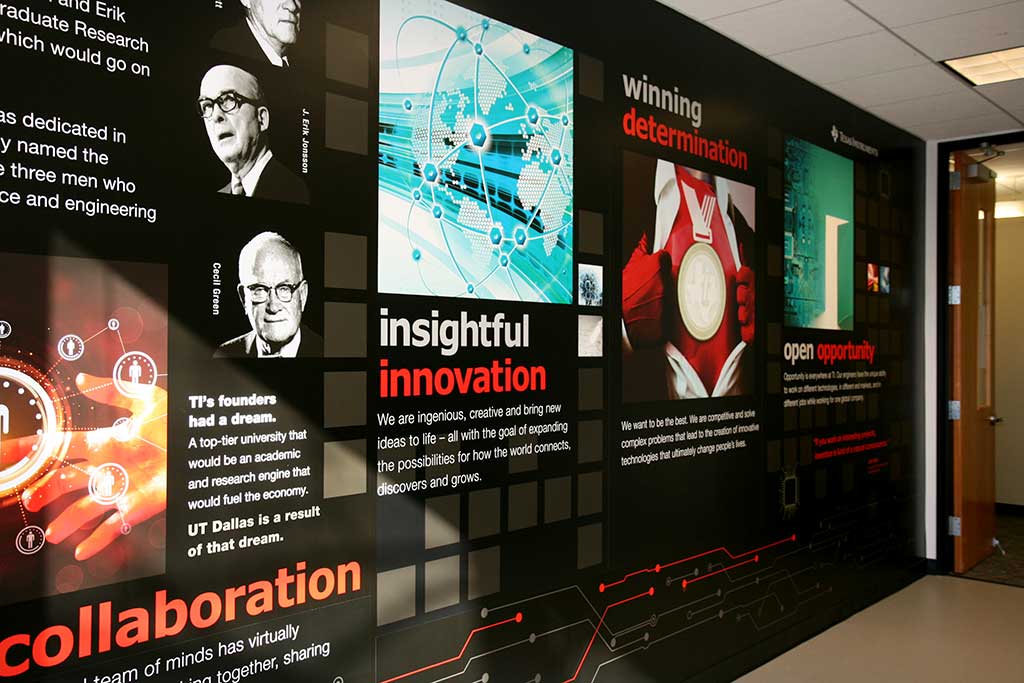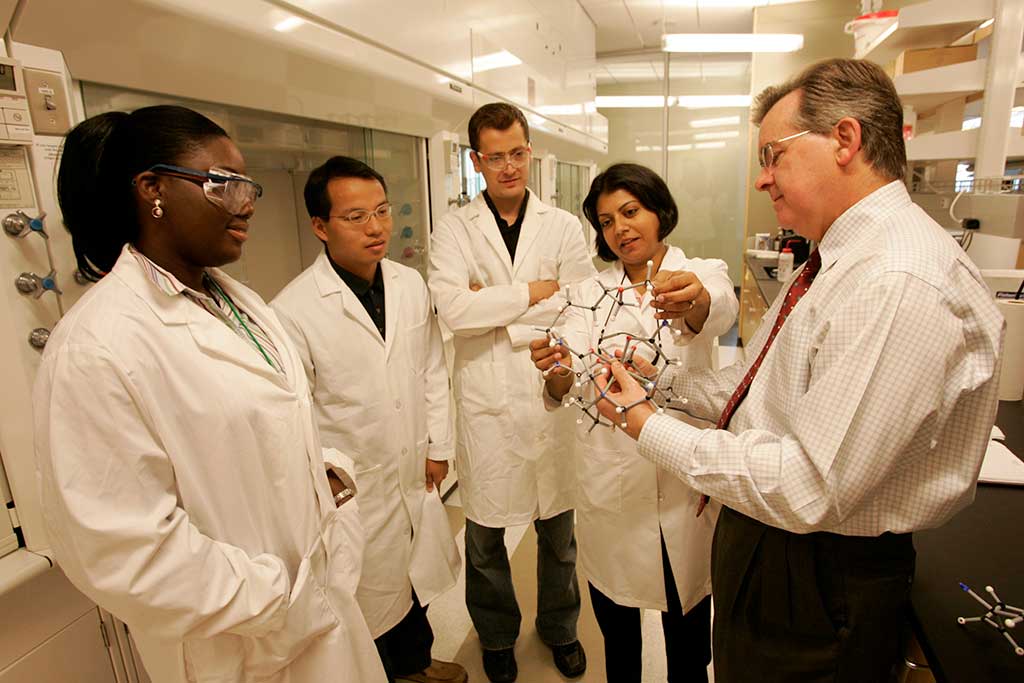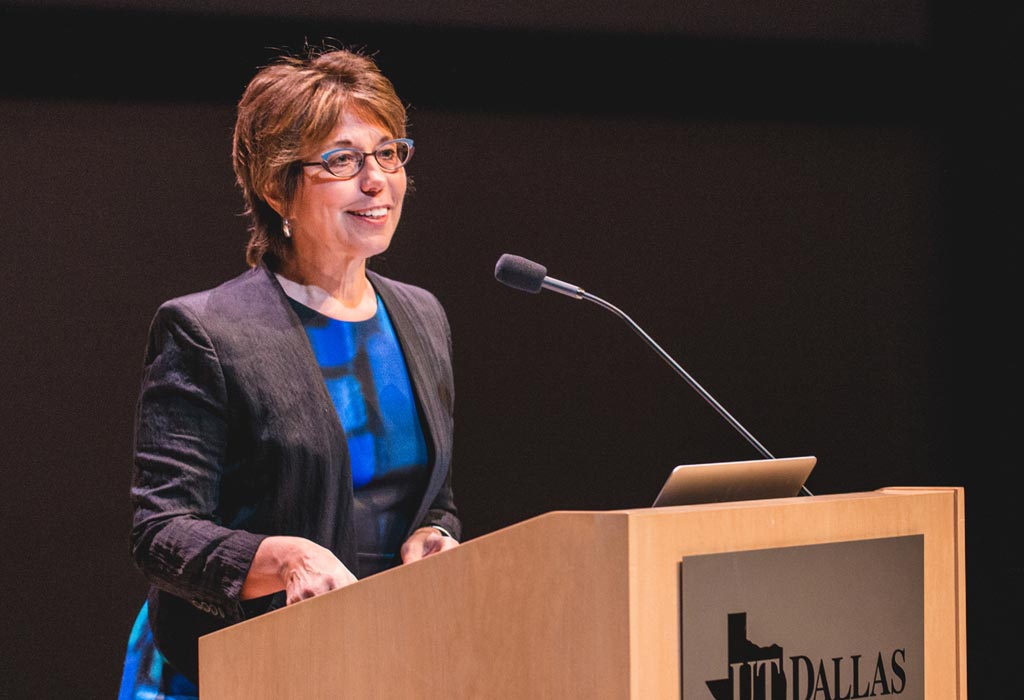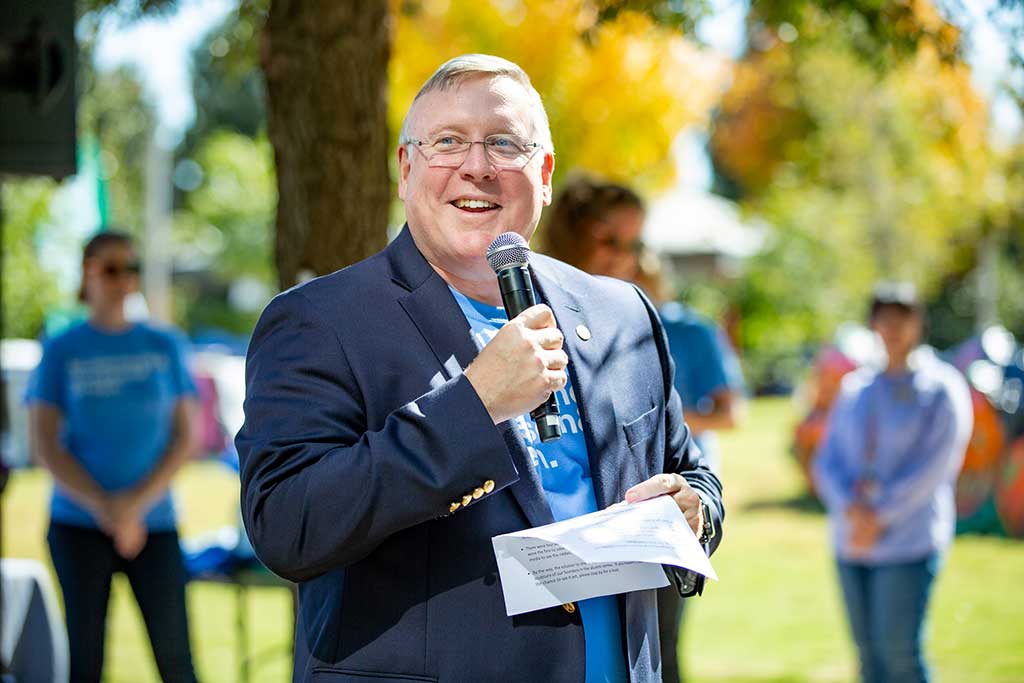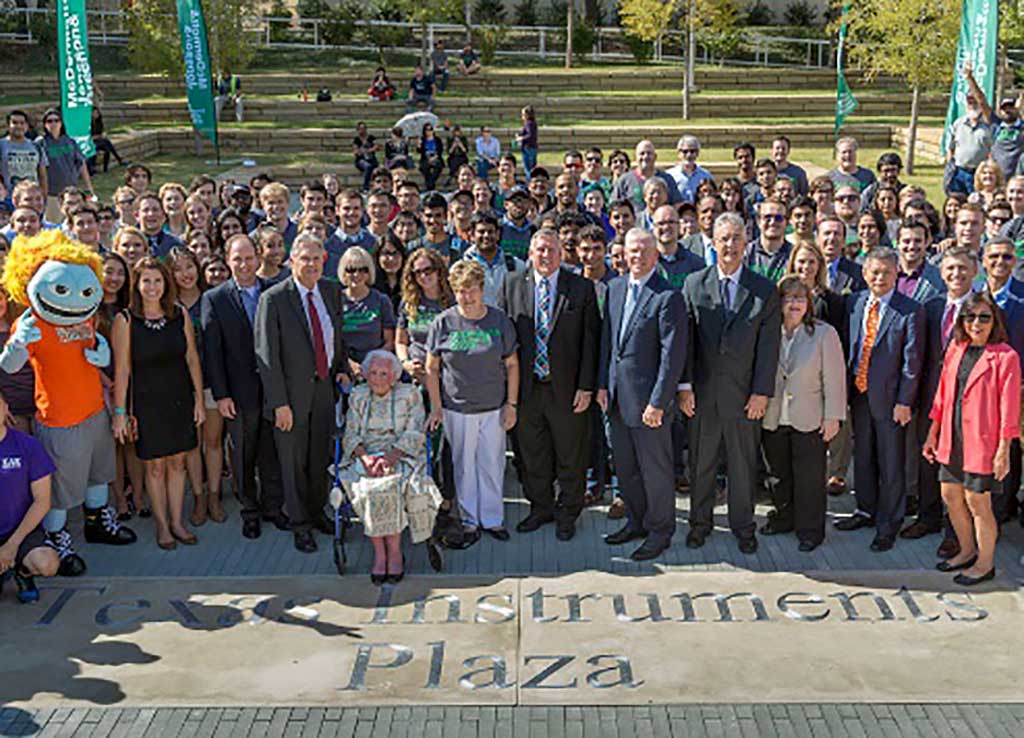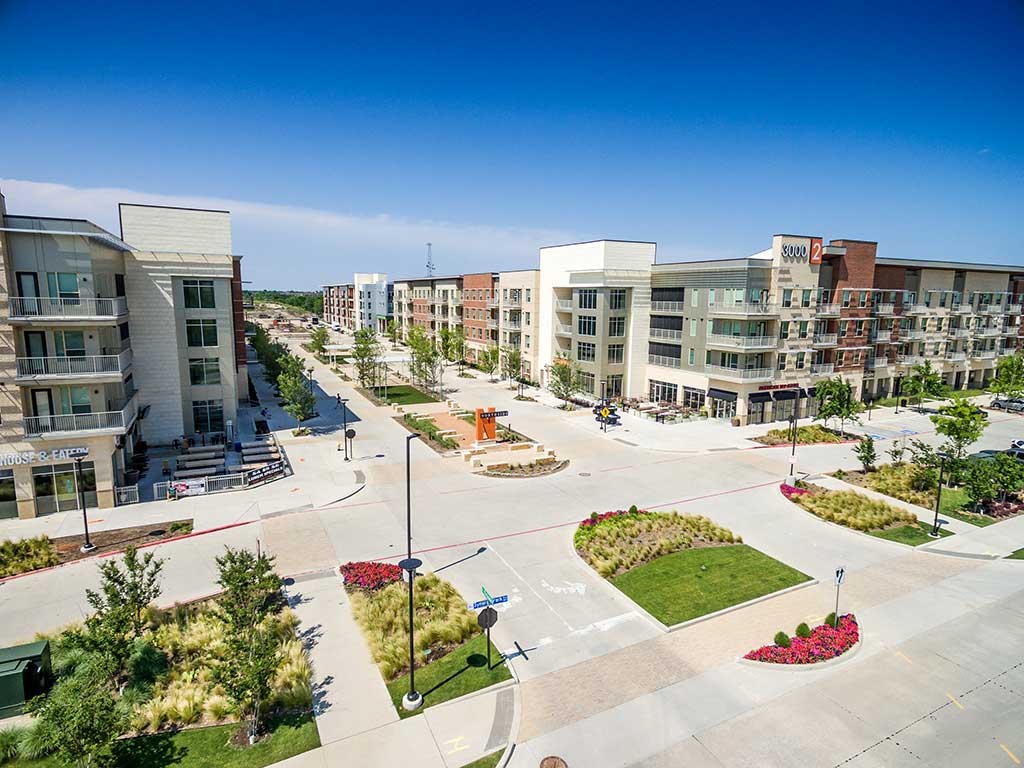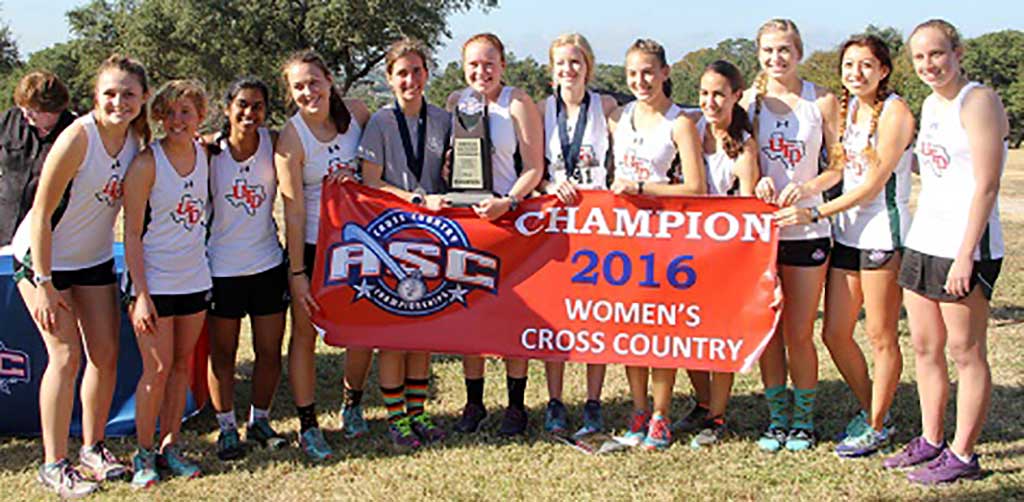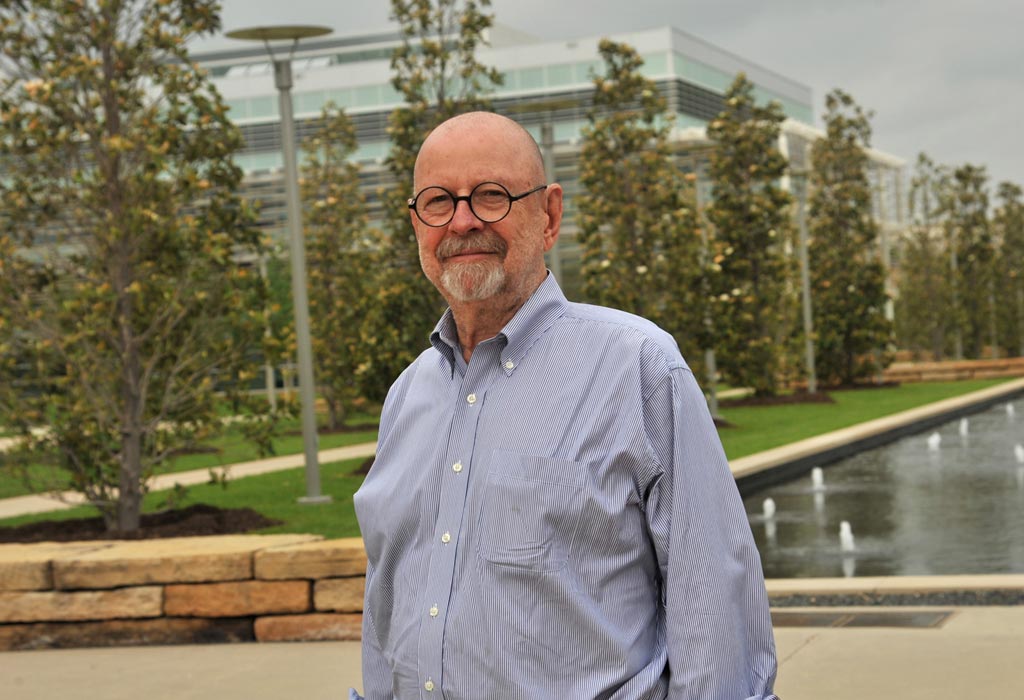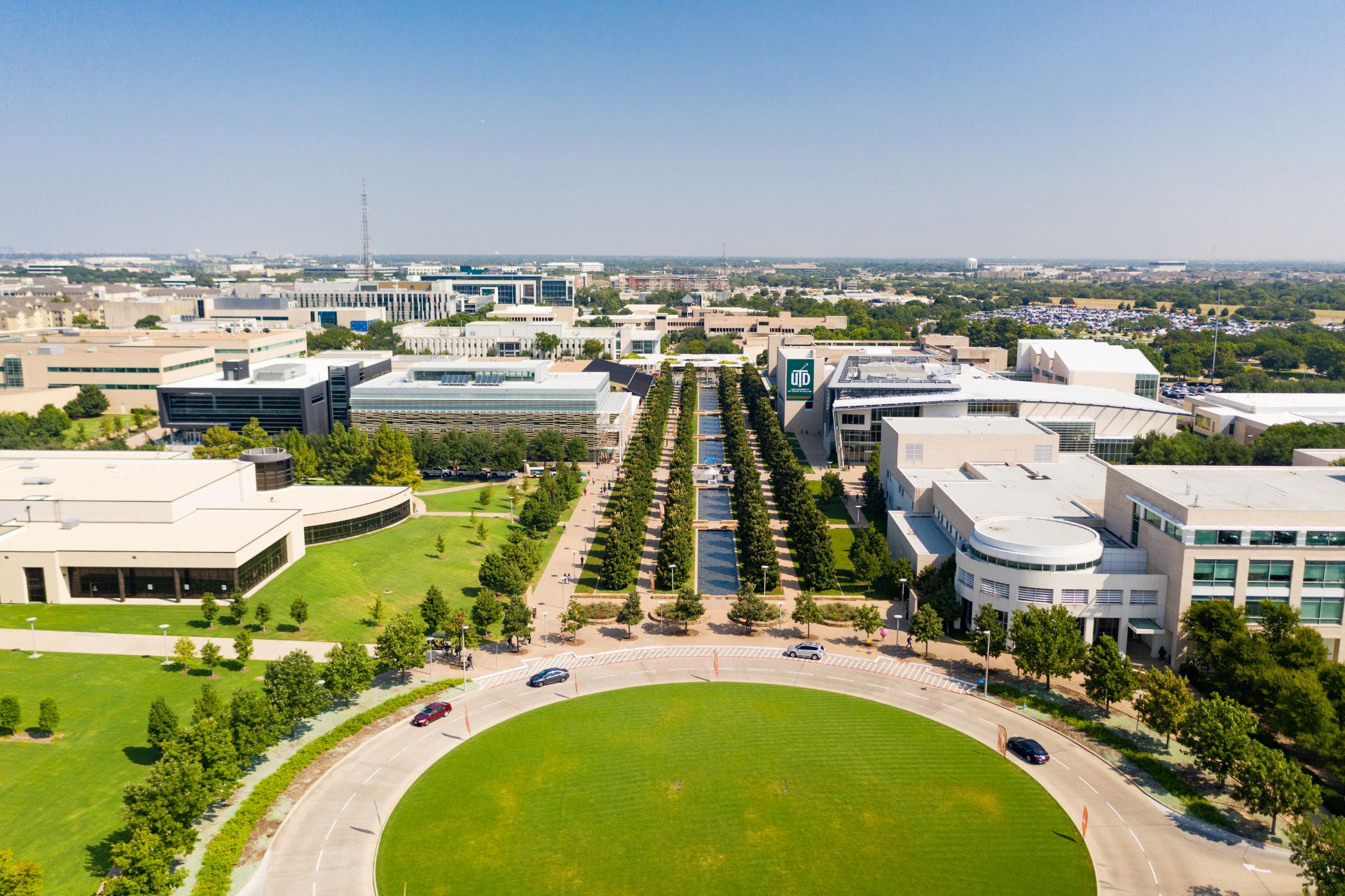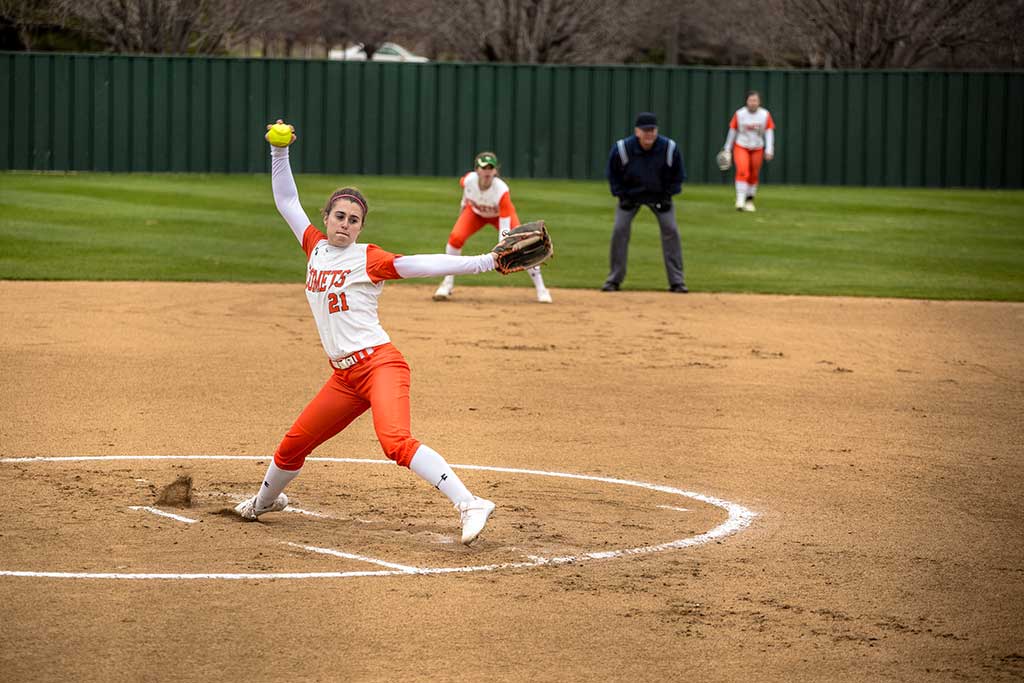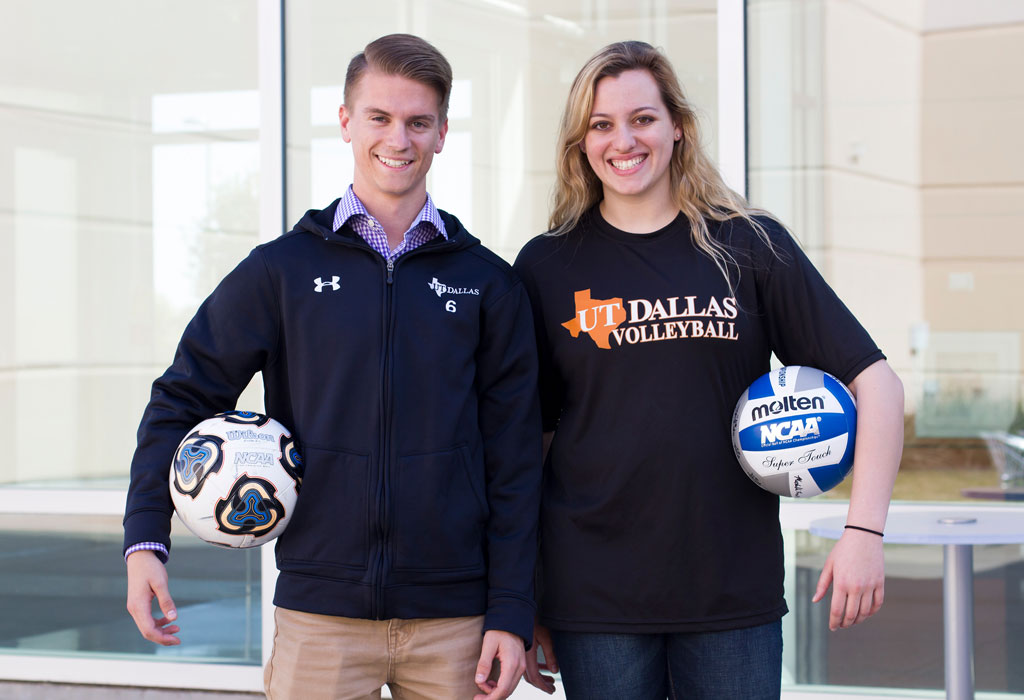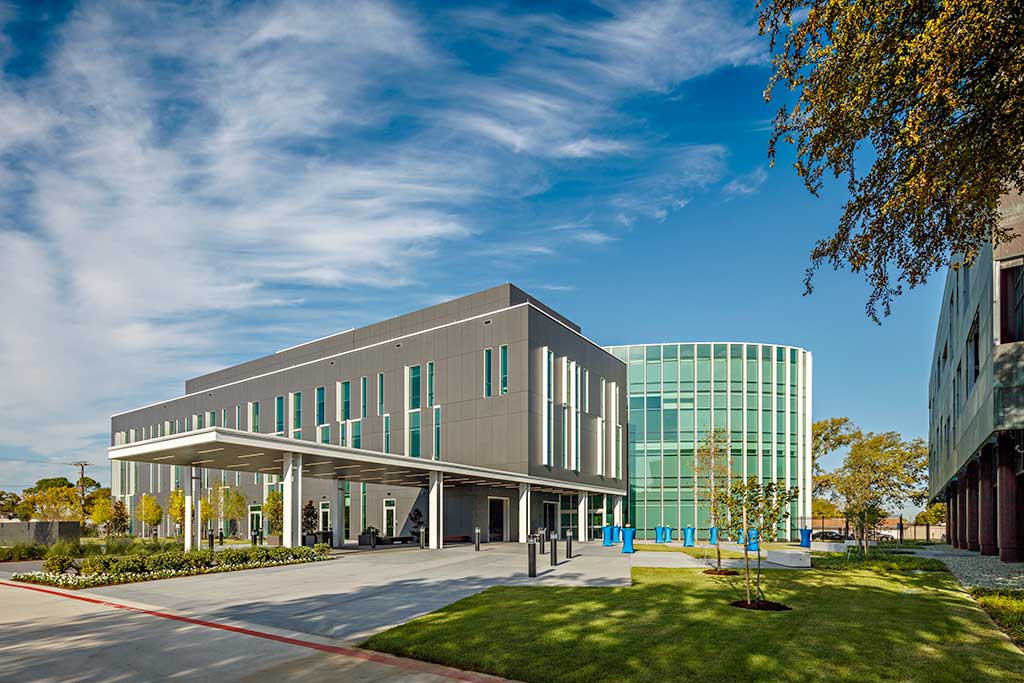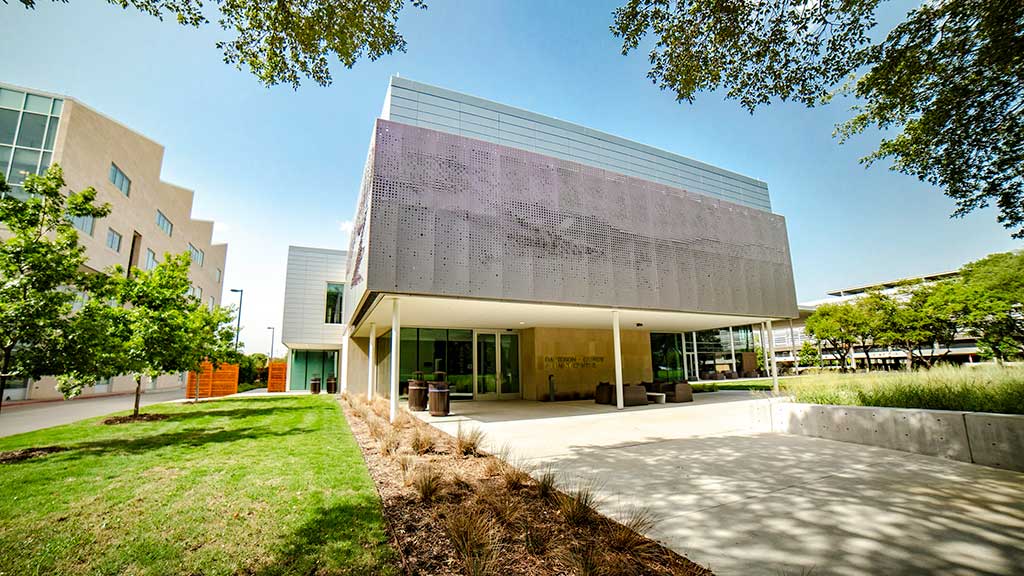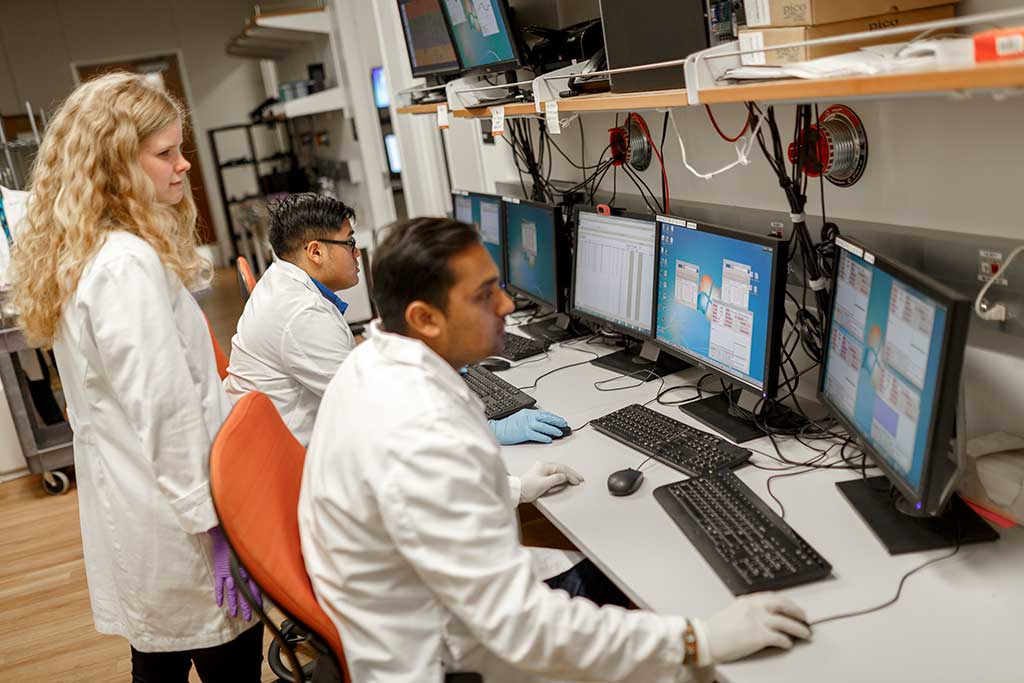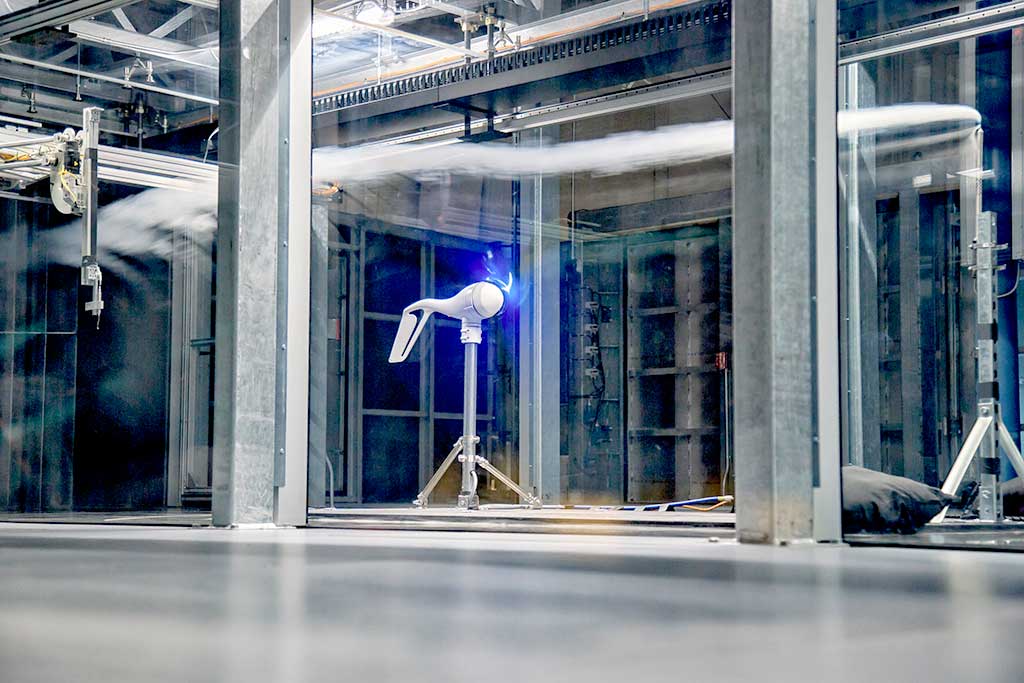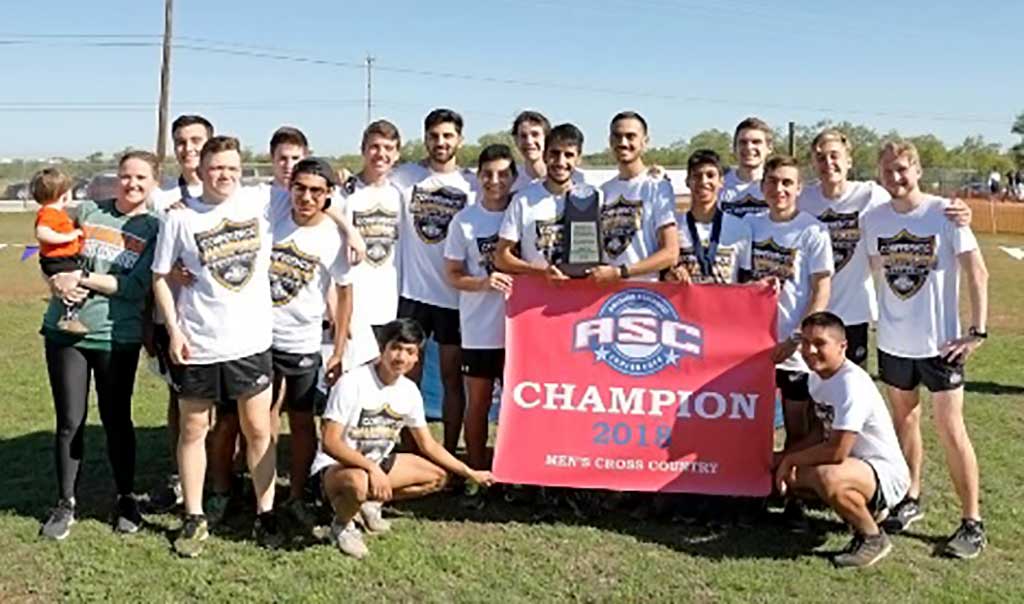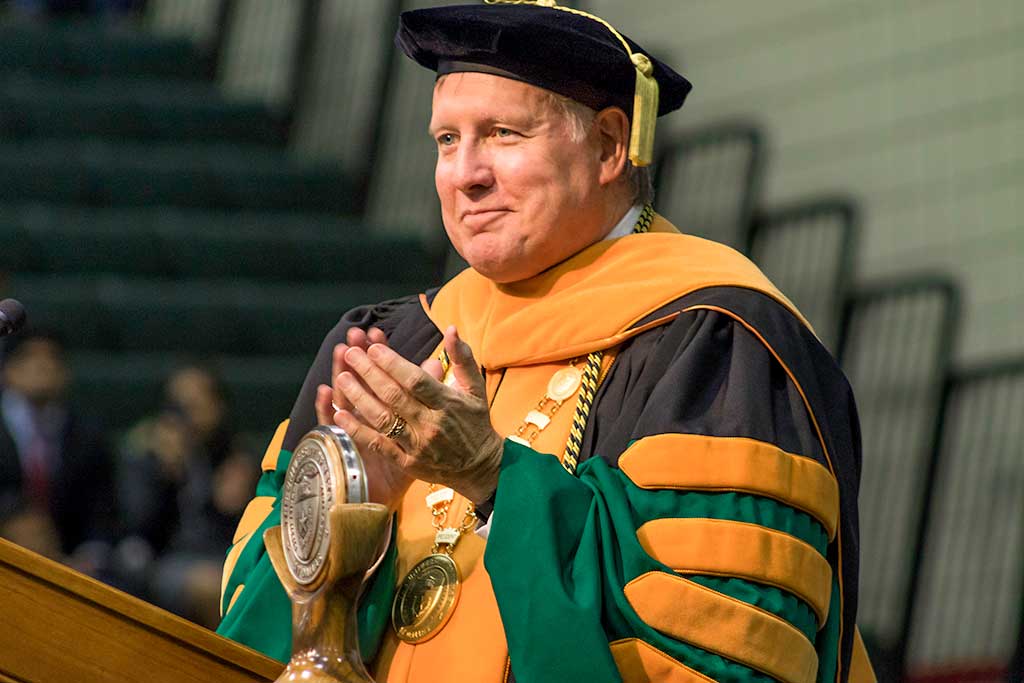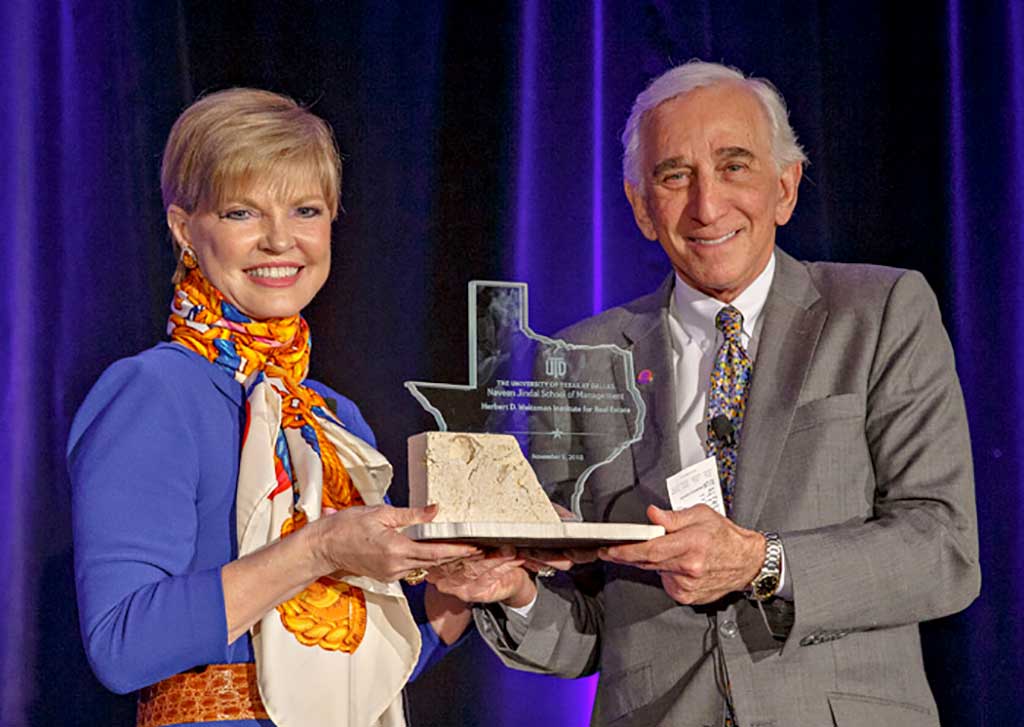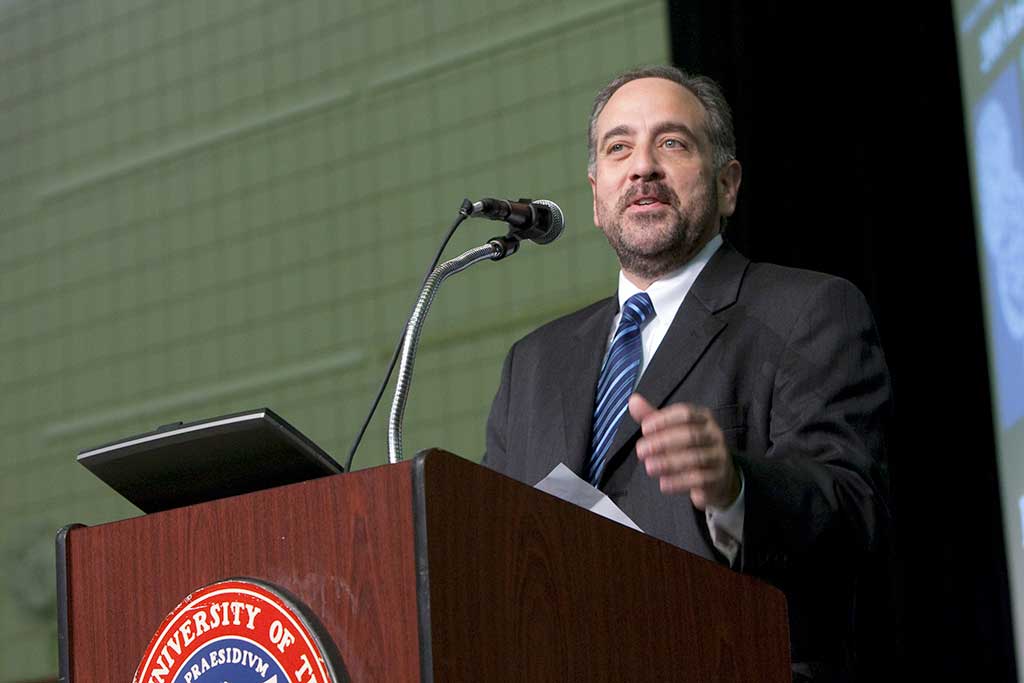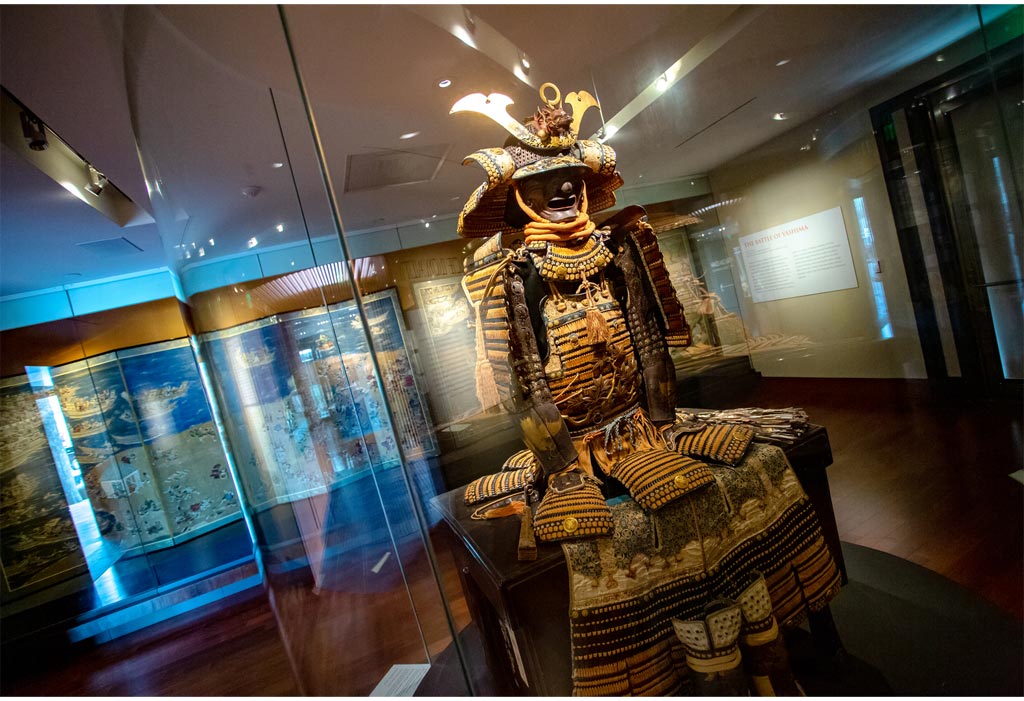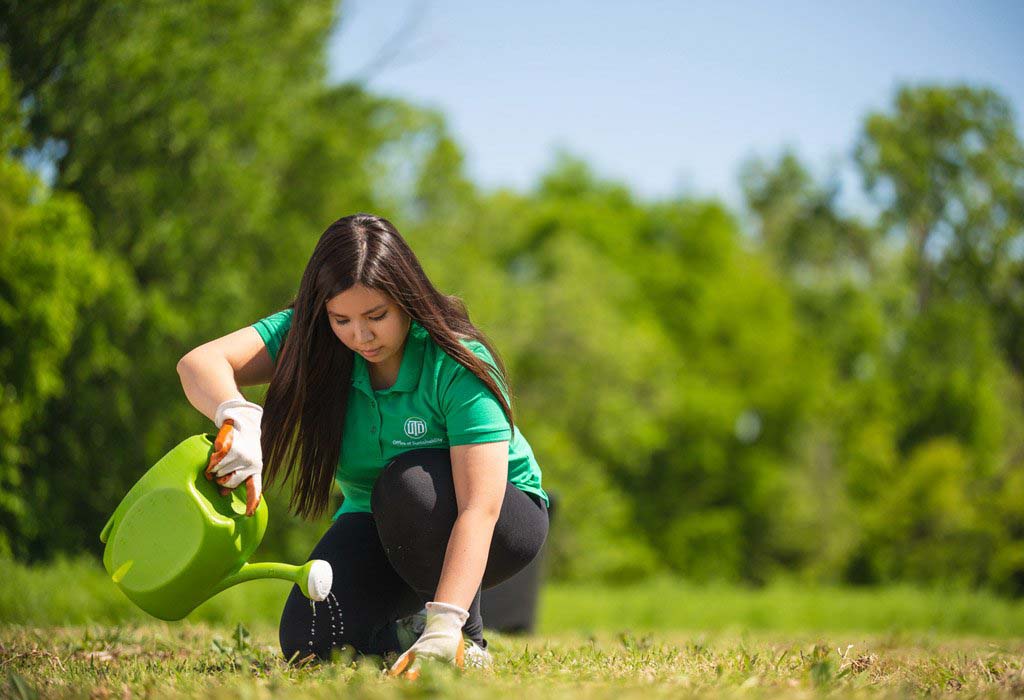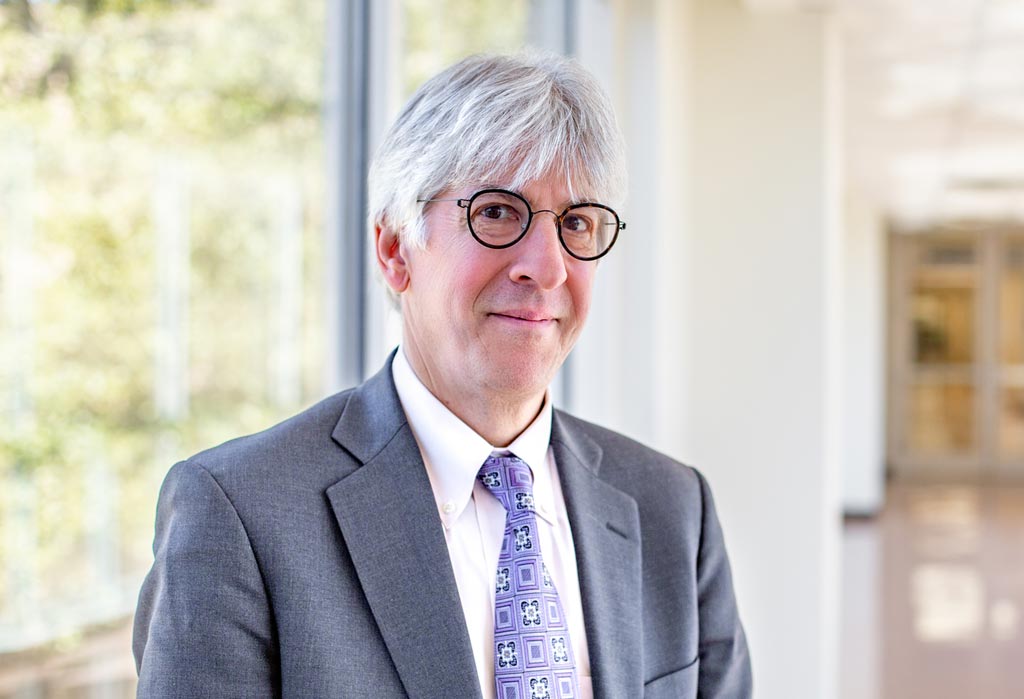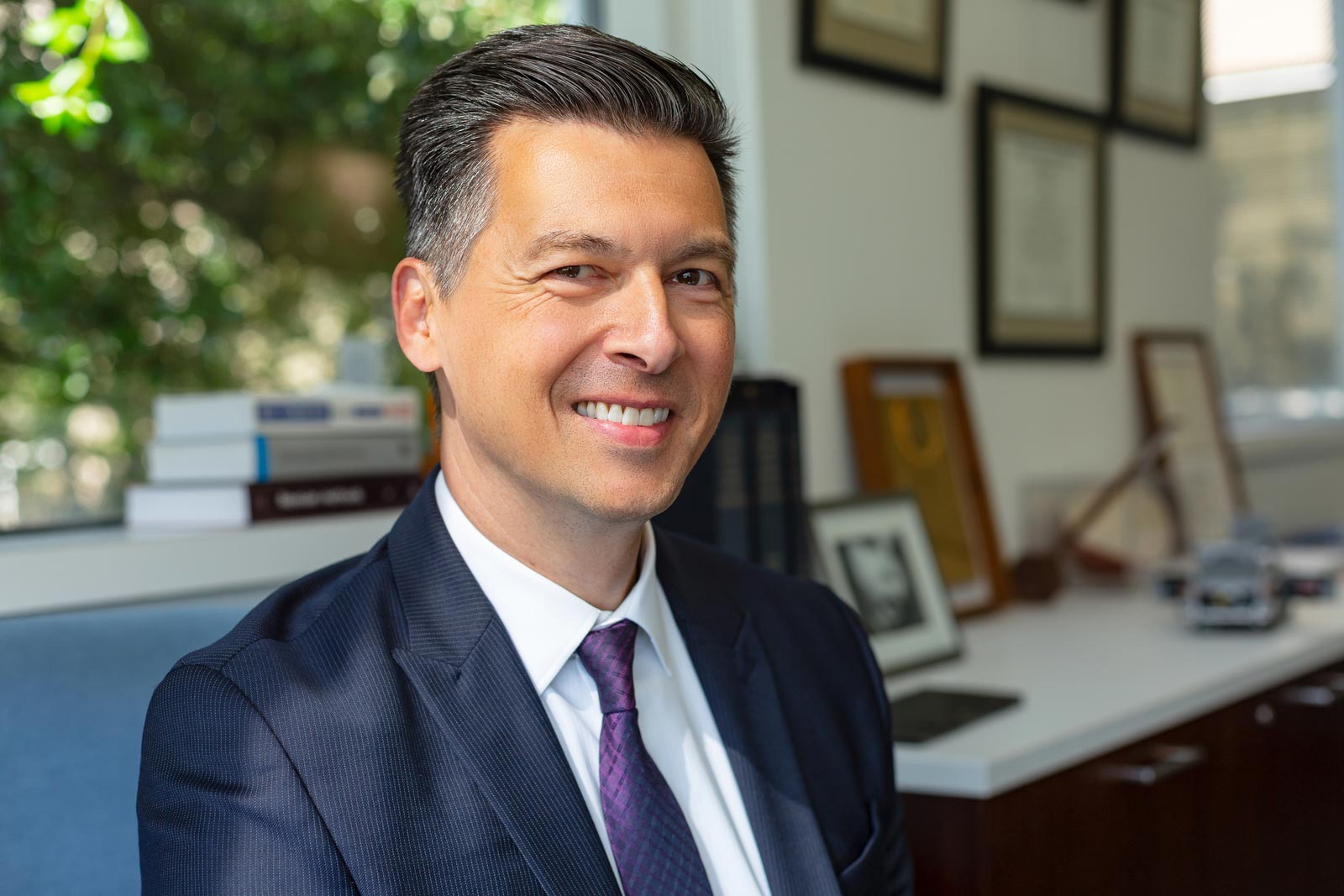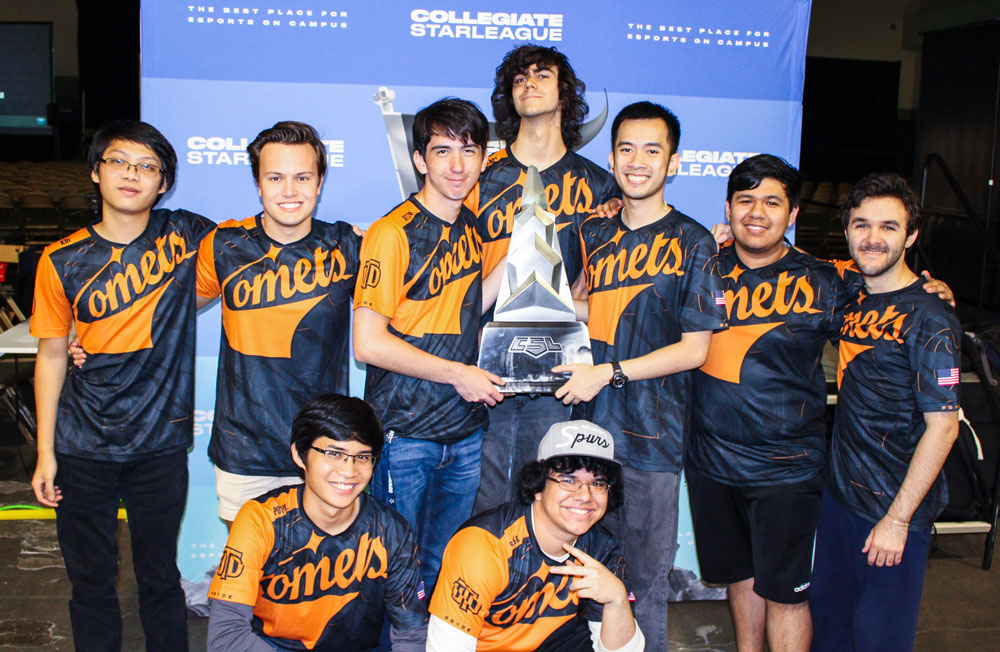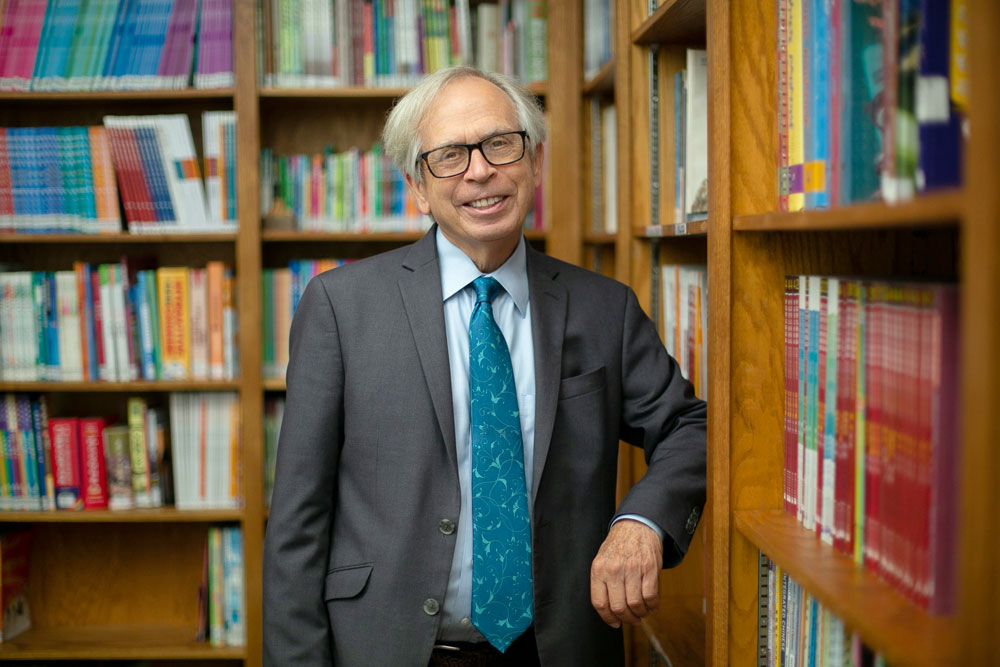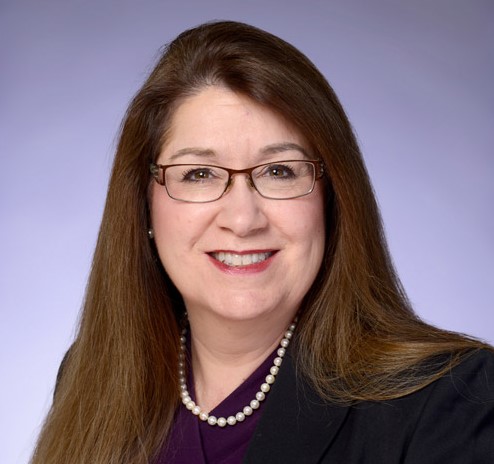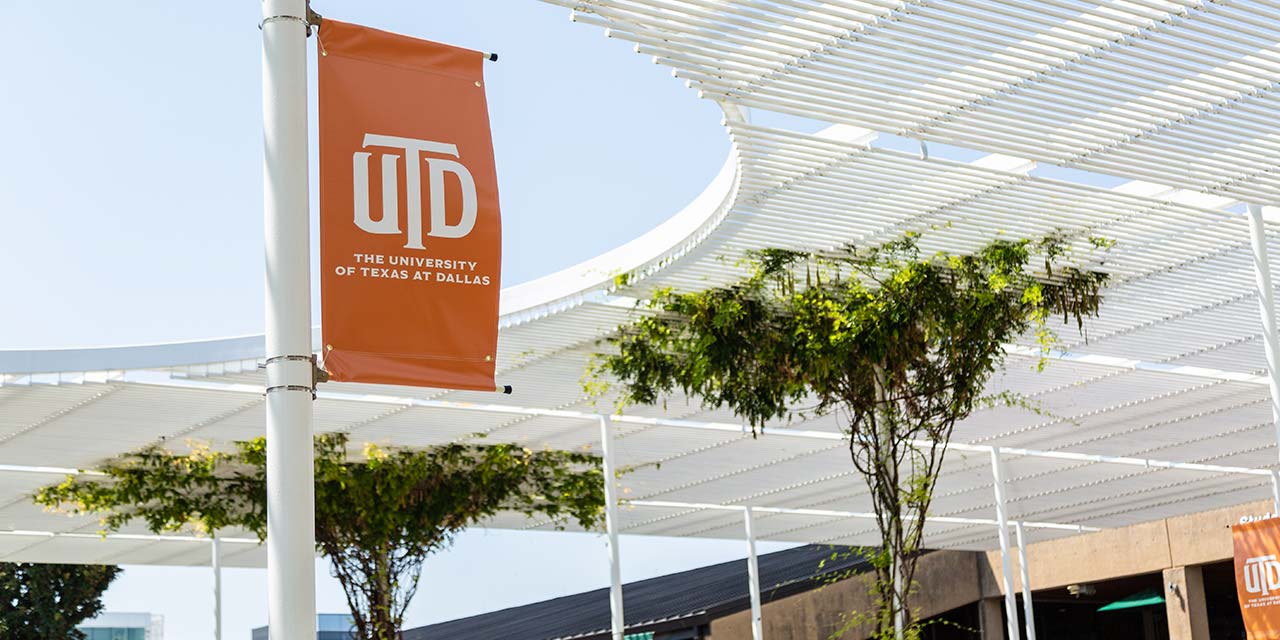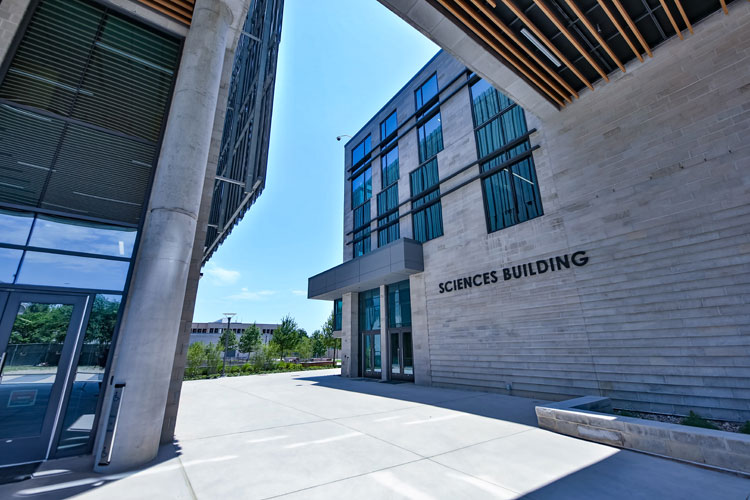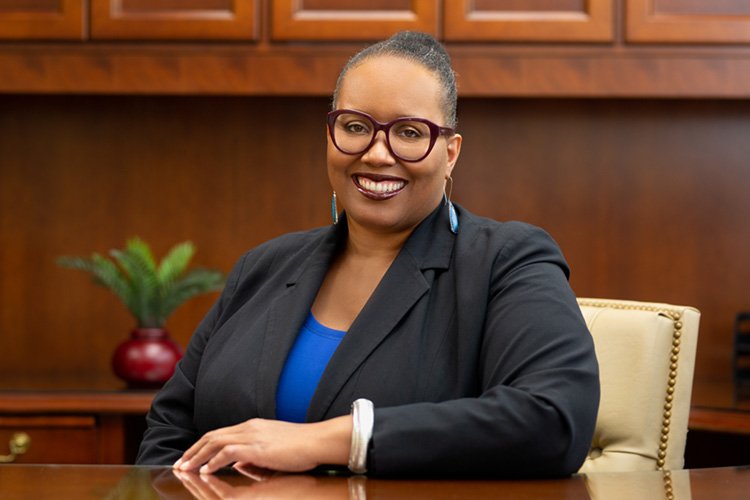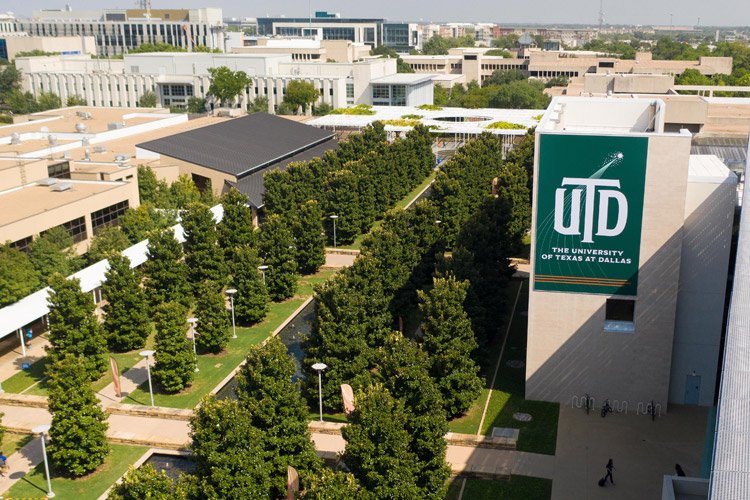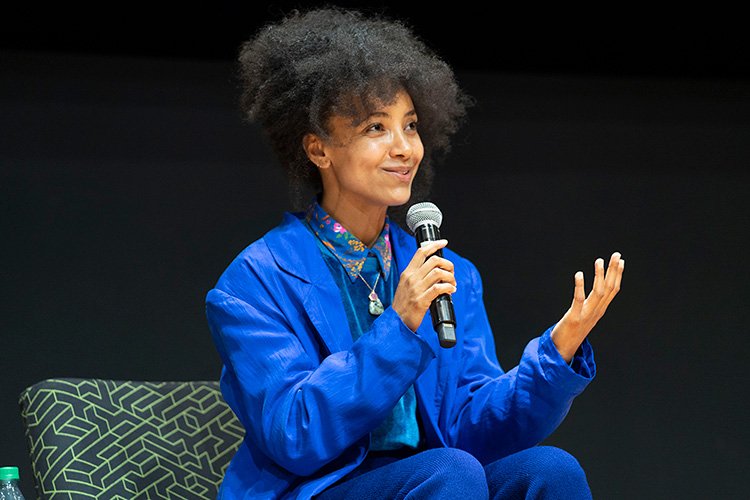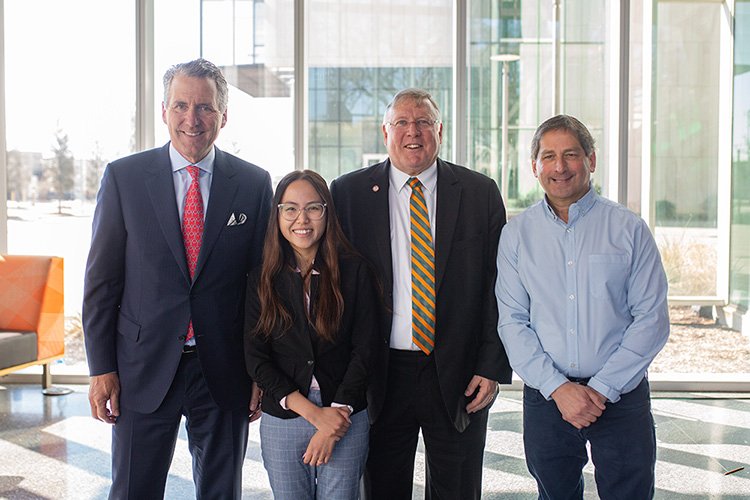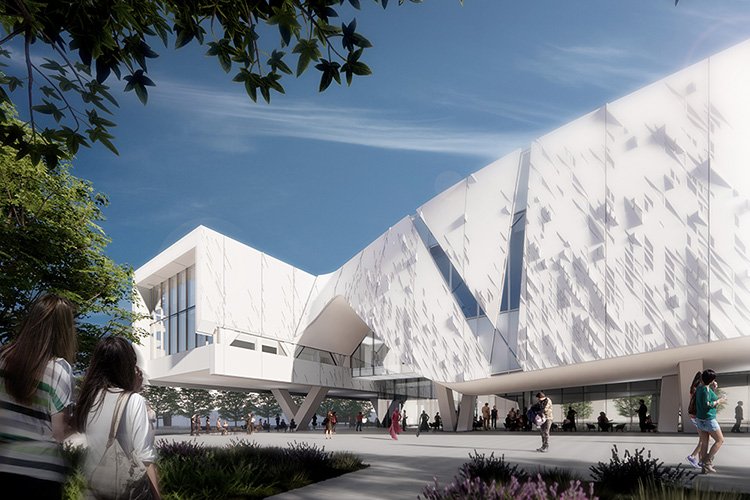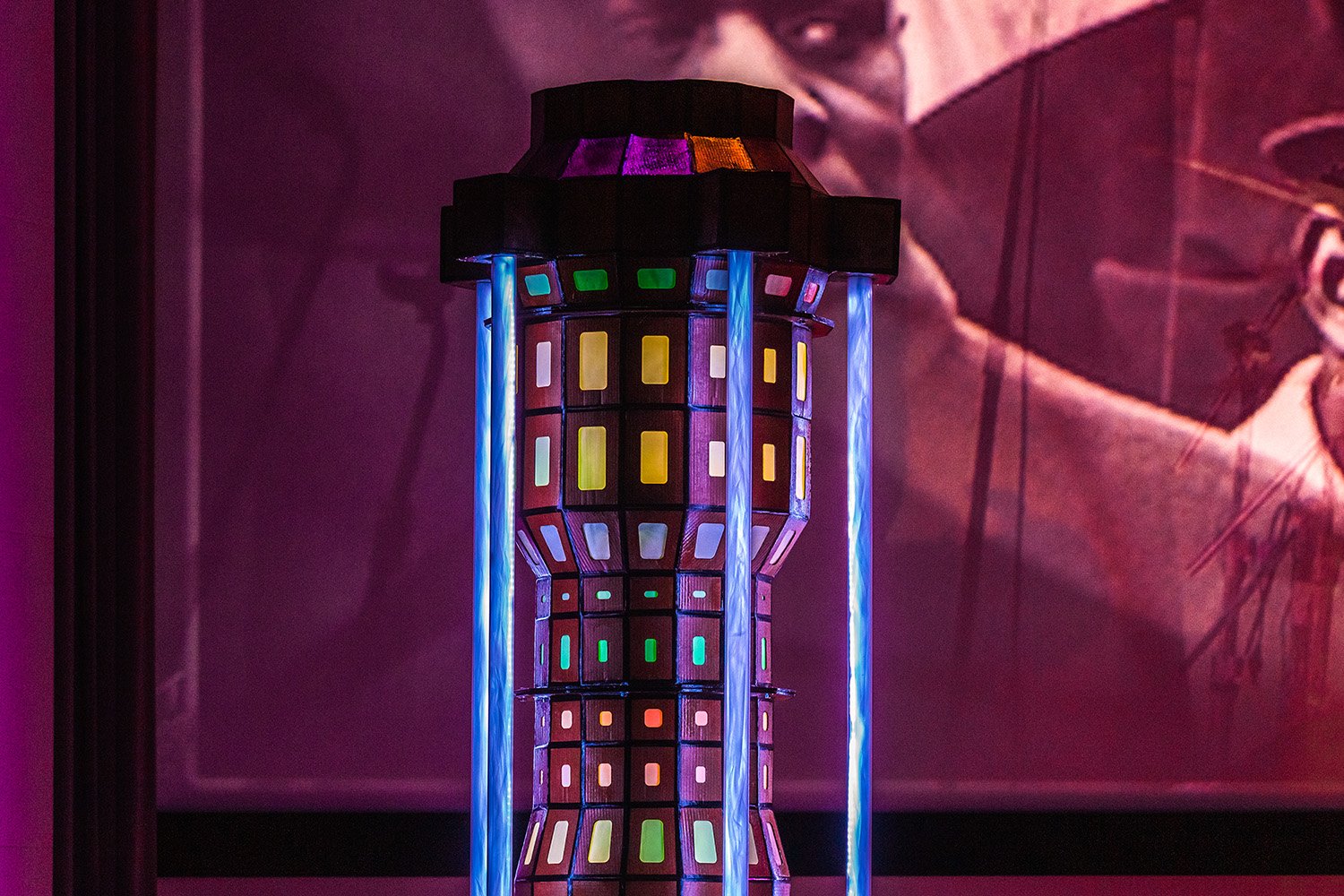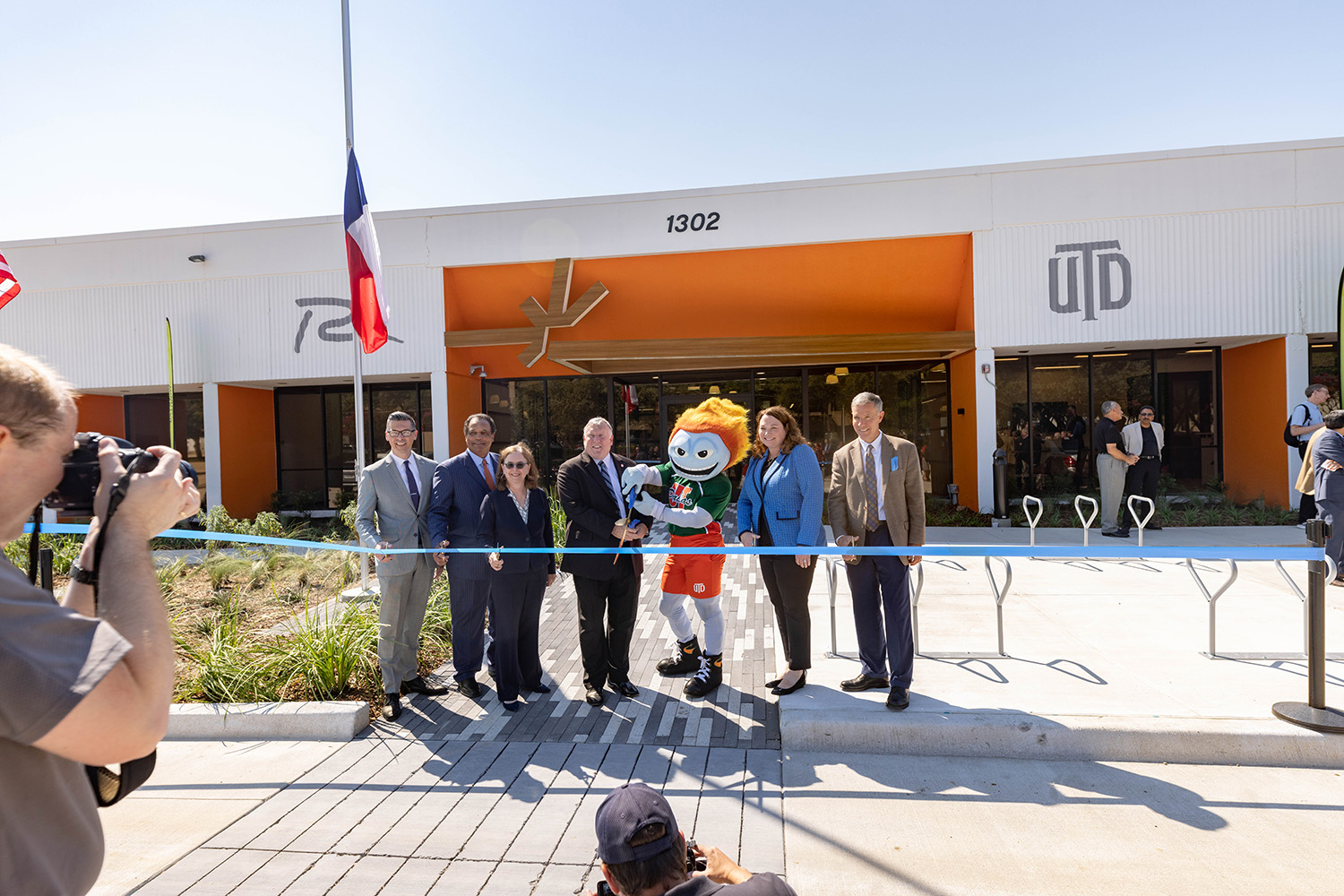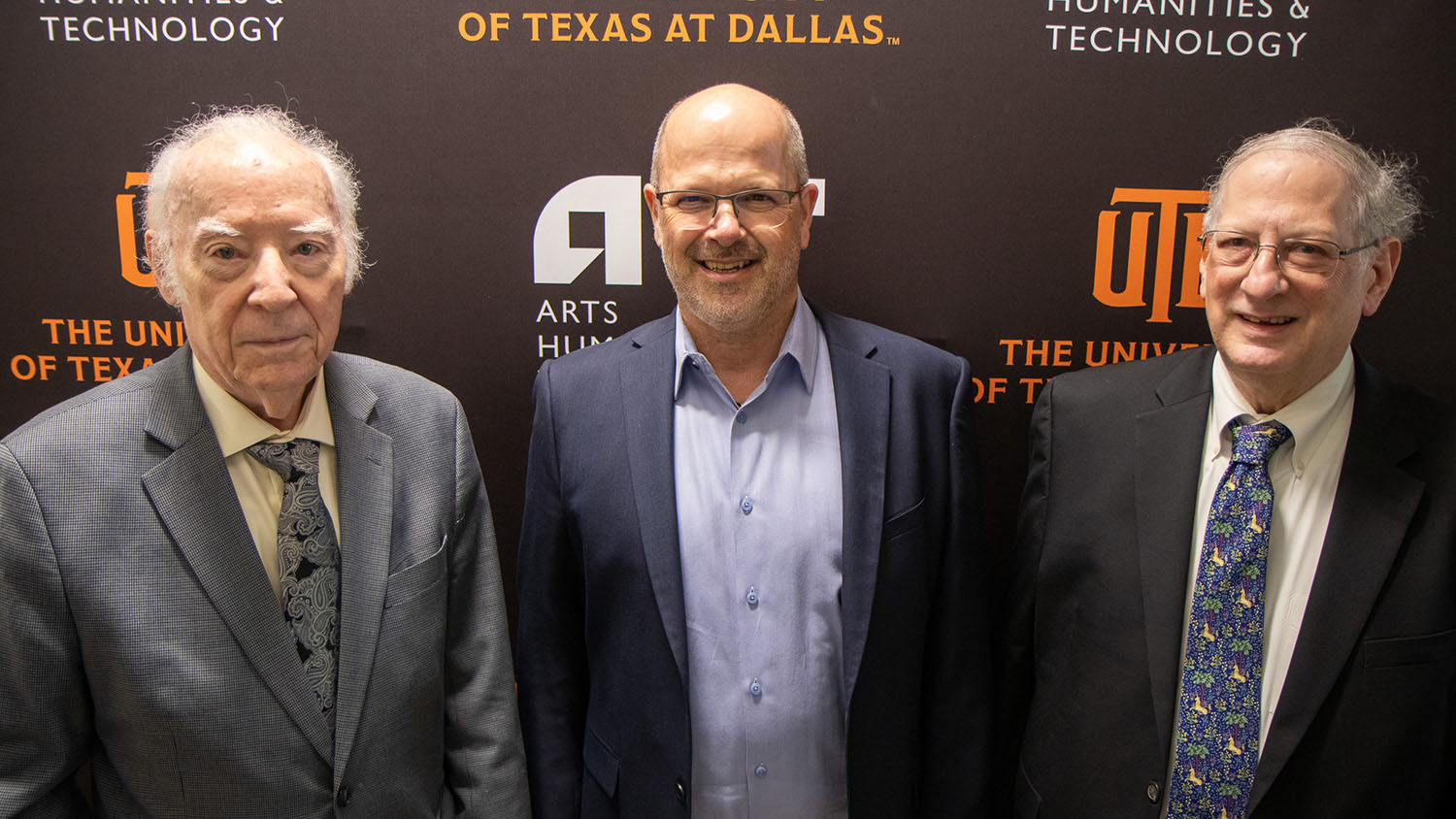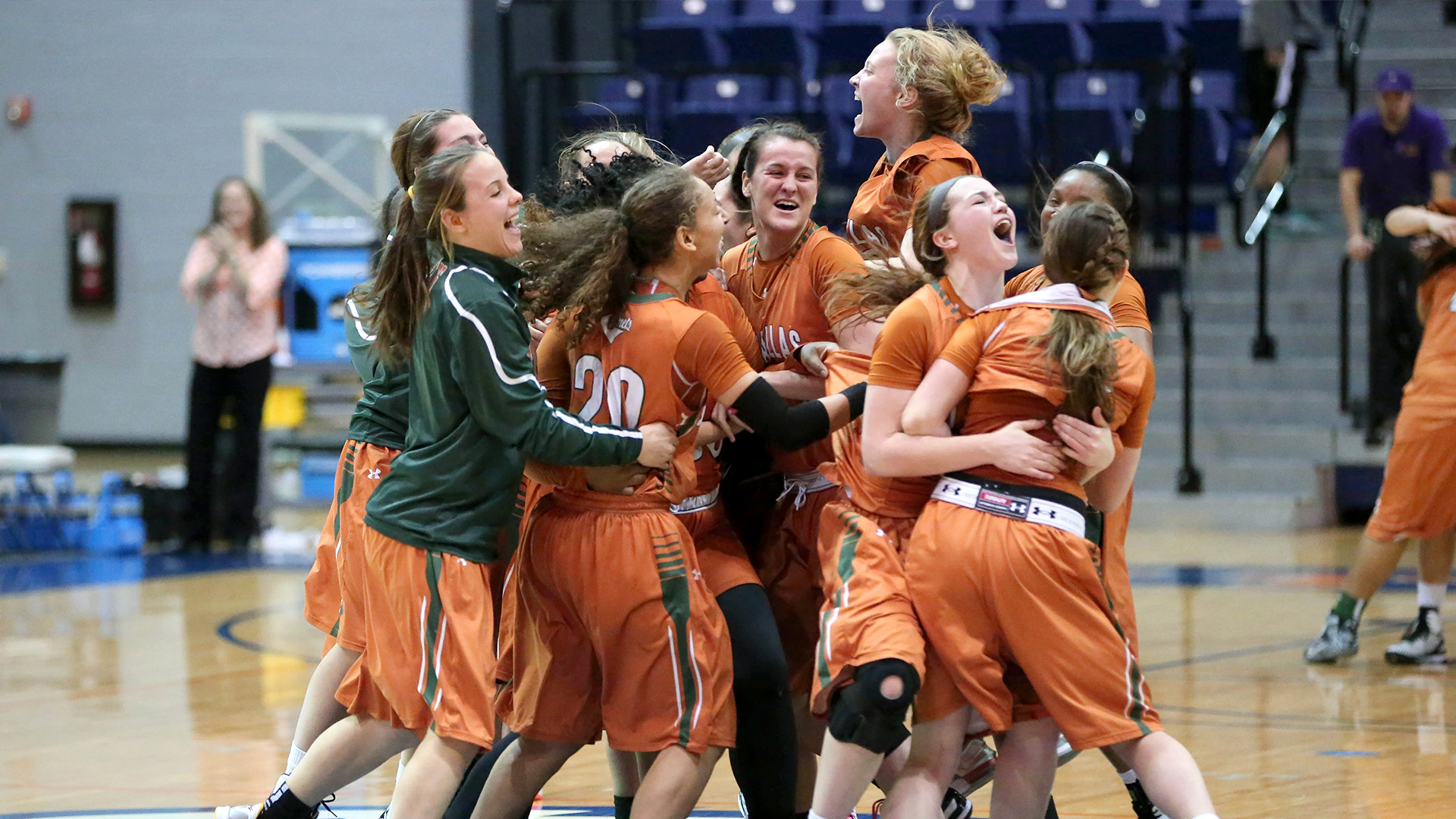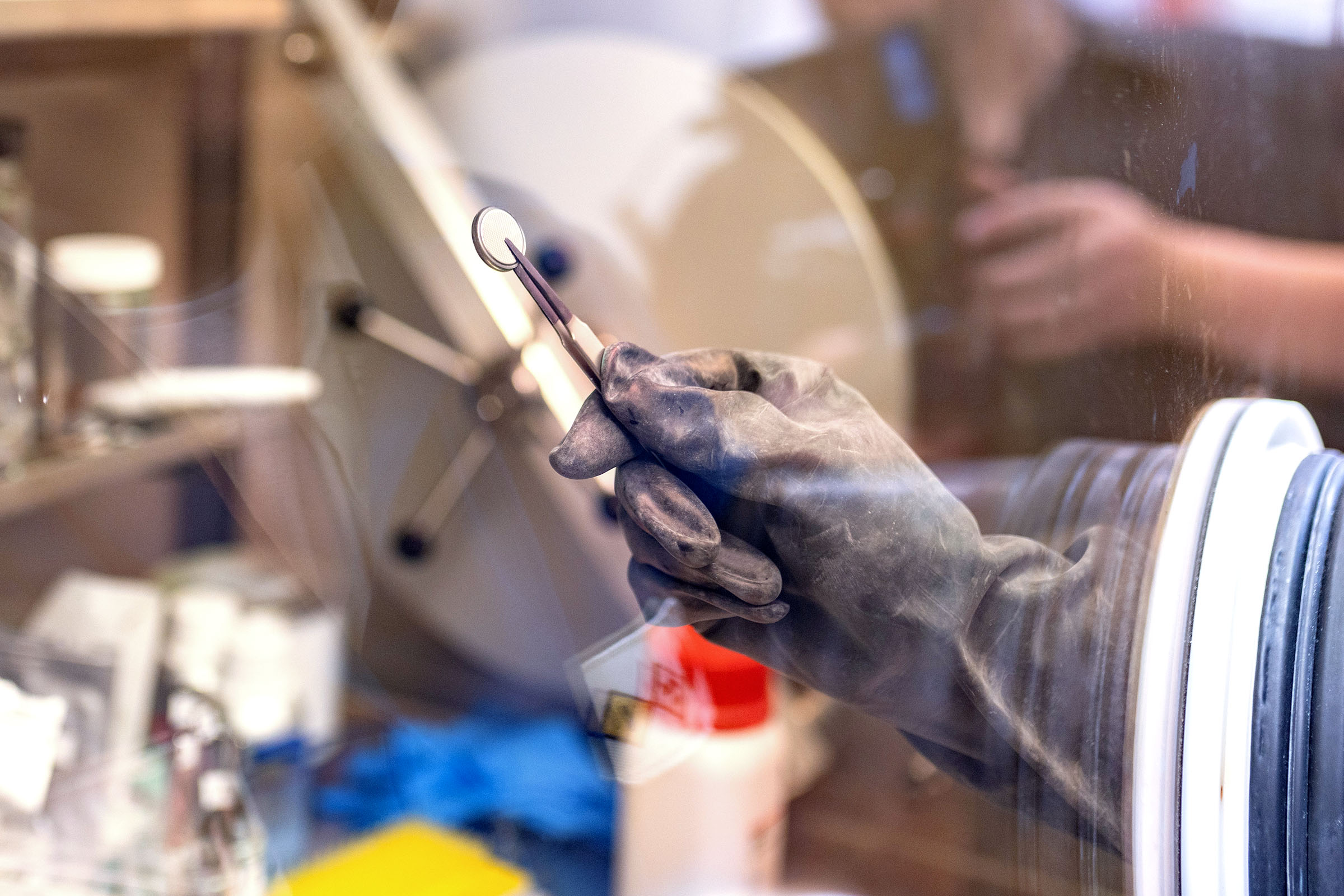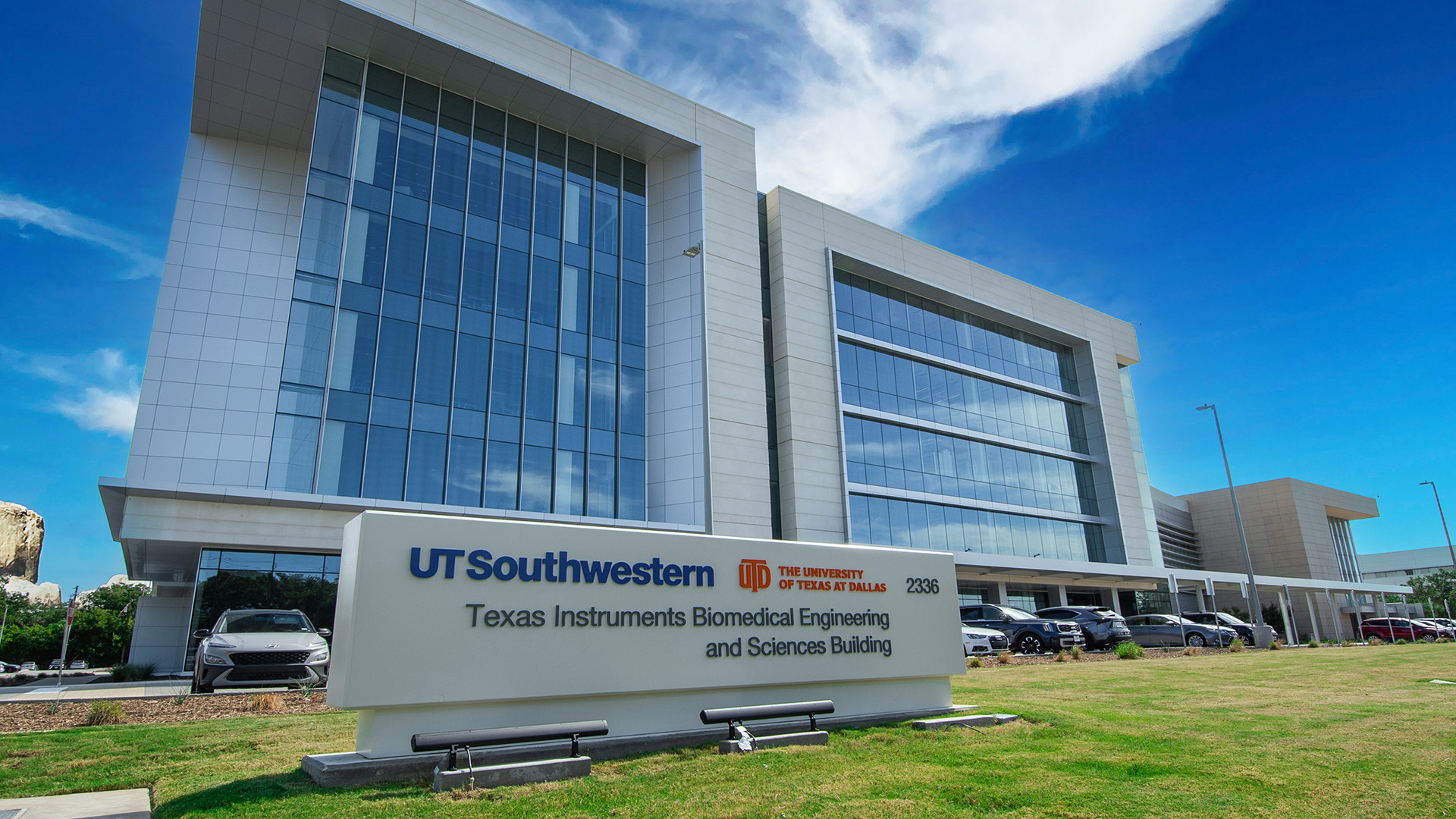Interactive Timeline
- All
- Academics(41)
- Campus(77)
- Culture(42)
- Faculty & Staff(62)
- Honors(30)
- Philanthropy(11)
- Research(11)
Eugene McDermott, J. Erik Jonsson and Cecil Green observe promising young Texans leaving the state to pursue education while their company, Texas Instruments, imports out-of-state talent to work at their Dallas-based headquarters. Hoping to create better higher-education opportunities in North Texas, the trio establishes the Graduate Research Center of the Southwest (GRCSW) — the foundation for what will become The University of Texas at Dallas.
The Graduate Research Center of the Southwest (GRCSW) appoints Dr. Francis (Frank) Johnson to lead its atmospheric and space science division. Johnson is joined by William B. Hanson, Dr. Gilbert Plass, Dr. John Hoffman, Dr. Brian Tinsley and Dr. Walter Heikala.
Ivor Robinson, Dr. Istvan Ozsváth and Dr. Wolfgang Rindler join the Graduate Research Center of the Southwest (GRCSW) and form the mathematics and mathematical physics (relativity) division.
On Nov. 22, 1963, President John F. Kennedy was scheduled to deliver a speech at the Dallas Trade Mart. His prepared remarks included a salute to the newly formed GRCSW:
“It is not a coincidence that those communities possessing the best in research and graduate facilities — from MIT to Cal Tech — tend to attract the new and growing industries. I congratulate those of you here in Dallas who have recognized these basic facts through the creation of the unique and forward-looking Graduate Research Center.”
GRCSW faculty Ivor Robinson and Dr. Wolfgang Rindler organize the first Texas Symposium on Relativistic Astrophysics held in Dallas.
Through the generosity of Lena E. Callier, the Callier Hearing and Speech Center opens as a community-based nonprofit housed at Parkland Hospital.
After a year of construction, the Founders Building opens its doors to a crowd of onlookers. Co-founders J. Erik Jonsson, Eugene McDermott and Cecil Green attend, and Jonsson speaks to the crowd. In honor of this extraordinary moment, Comets celebrate Founders Day every Oct. 29.
GRCSW appoints Gifford K. Johnson as its second president. He serves until 1969, working closely with Dr. Harry Ransom of the UT System and founder J. Erik Jonsson to establish UT Dallas.
The Anson L. Clark Foundation establishes the Clark Summer Research Program, which provides first-year students with opportunities to join research groups and conduct hands-on experiments.
The 61st Texas Legislative Session passes HB 303, establishing a “state-supported institution of higher education to be known as The University of Texas at Dallas.” Gov. Preston Smith signs the bill, making UTD an official member of The University of Texas System effective September 1969.
In July, Dr. Bryce Jordan becomes the first president of UT Dallas. Jordan previously served as the president of The University of Texas at Austin. He would serve UT Dallas for the next decade, going on to become vice chancellor for academic affairs for The University of Texas System in 1981.
Dr. Polykarp Kusch becomes the first Nobel laureate on the UTD faculty. His work in accurately determining the magnetic moment of the electron as being greater than its theoretical value led to innovations in the field of quantum electrodynamics. Yet, despite his prowess in the laboratory, Kusch’s heart was with his students. As he once put it, “I describe myself as an adequate scientist, but I am a superb teacher.”
Dr. Allan Dean Sherry joins the faculty as an assistant professor of chemistry.
Dr. Roderick A. Heelis joins UTD as a research scientist in space science. He would later be appointed professor of physics in 1989.
The Callier Center for Communication Disorders joins UT Dallas. The Callier Center provides innovative evaluations and treatments for people with speech, language and hearing disorders.
UT Dallas establishes the School of Management. Students can develop their skills for professional success in six areas of business: accounting, finance & managerial economics, information systems, marketing, operations management, and organizations, strategy & international management.
Margaret McDermott, wife of founder Eugene McDermott, donates the 10-foot-tall steel Jack sculpture, affectionately called the “Love Jack” by students. American modernist sculptor and Texas native Jim Love created the Love Jack. It has been displayed in several locations across campus over the years.
James F. Reilly II graduates with a bachelor of science in geosciences. Reilly goes on to earn a master’s (1987) and PhD (1995) from UT Dallas. After his time on campus, Reilly would go on to explore the Hobbs Coast of West Antarctica, the deep ocean with the Harbor Branch Oceanographic Institution and U.S. Navy, and outer space as an astronaut for NASA. In 2018, Reilly is appointed director of the U.S. Geological Survey (USGS).
The Alexander Clark Center and Visual Arts Building open. The Visual Arts Building, also known as the Art Barn, provides art students with gallery space to present their work. Both the Clark Center and the Visual Arts Building are torn down in the 2010s to make room for more development.
Co-editor of the Translation Review, former president of the American Literary Translators Association and a medievalist by training, Dr. Dennis M. Kratz becomes associate professor of arts and humanities. He later becomes dean of the School of Arts and Humanities.
Dr. Bert Moore joins UTD as program head of psychology. He goes on to lead the School of Behavioral and Brain Sciences as dean for 26 years. During his work at UT Dallas, Moore would serve as a professor of clinical psychology at UT Southwestern Medical Center, a member of the American Psychological Association and serve on review panels for the National Institutes of Health and the National Science Foundation.
Dr. Rainer Schulte and Dr. Dennis Kratz begin the Center for Translation Studies to promote discourse across foreign languages and cultures.
The Mercury becomes the official student newspaper of UT Dallas.
Dr. Robert H. Rutford becomes the University’s second president in May 1982, a position he occupies until 1994. A glacial geologist and expert in geomorphology and Antarctica, Rutford led a party into the Antarctic Ellsworth Mountains in the 1960s and served as director of the division of polar programs for the National Science Foundation from 1975 to 1977. His dedication to the UTD community would later be honored with his appointment as president emeritus in 2007.
In honor of UT Dallas’ first on-staff Nobel laureate, Dr. Polykarp Kusch, the University endows the lecture series “Concerns of the Lively Mind,” which would later be renamed the “Polykarp Kusch Lecture Series” in 1985. Notable lectures include Dr. Rainer Schulte’s “Translation: A Model for Intercultural Communication” in 2010 and Dr. Hobson Wildenthal’s “The Lifecycle of a Science from Conception to Metamorphosis” in 2017.
The UT Dallas Alumni Association, now known as Alumni Relations, forms.
Dr. Zsuzsanna Ozsváth, a Hungarian-Jewish Holocaust survivor, translation expert, and professor of 19th- and 20th-century European literature and history, establishes the Ackerman Center for Holocaust Studies. UT Dallas is just one of two schools in the nation that offers a master’s or PhD in Holocaust studies.
The Texas Legislature passes HB 42, authorizing UT Dallas to enroll freshmen and sophomore students. Enrollment is limited to 2,000 entering freshmen with lower division enrollment limited to 5,000 students. This legislation marks the expansion of UTD into a full-scale university, from freshmen students all the way to PhD candidates.
The University appoints Dr. Franklyn Jenifer as its third president. Jenifer had previously been president of Howard University and the chancellor of the Massachusetts Board of Regents of Higher Education. During Jenifer’s tenure, UT Dallas’ enrollment would increase more than 61 percent. The campus would undergo dramatic physical transformation with major new facilities, including the School of Management, the Erik Jonsson School of Engineering and Computer Science, and the Callier Center for Communication Disorders. Jenifer would be named president emeritus of UT Dallas in 2005.
UT Dallas pairs up with the city of Richardson to put on the first Sounds of Class, an annual family-friendly music festival.
The Galerstein Women’s Center, named for UTD’s first female dean, Dr. Carolyn Lipshy Galerstein, opens. It is renamed the Galerstein Gender Center in 2017.
Dr. Hasan Pirkul joins the School of Management as its new dean and Caruth Chair.
The chess team debuts at UT Dallas, launching a proud tradition of competitive excellence. Since its establishment, the UTD chess team has won the President’s Cup — known as the Final Four of College Chess — four times, won the Pan American Intercollegiate Chess Championship, and made history by playing Instituto Superior de Cultura Física in the first US-Cuba chess match in 50 years.
The Collegium V Honors Program begins to provide promising students with small class sizes, innovative teaching methods and a variety of extracurricular activities.
UTD alum Dr. Sandra Bond Chapman establishes the Center for BrainHealth. The center is now home to labs with 60 fully funded research projects, including youth brain injury assessment, caregiver training, law enforcement mindfulness training and adolescent reasoning training.
Margaret McDermott donates $32 million dollars to establish the Eugene McDermott Scholars Program, a highly competitive program which seeks to provide scholars with leadership, cultural and educational tools to enrich their academic experience. Because of McDermott’s generosity, all McDermott Scholars attend UT Dallas on a full scholarship with a stipend package.
As a tangible reminder of their time at UT Dallas, students can purchase a class ring complete with UTD shield, a comet encircling a star, and the Texas flag. The University presents the rings after sealing them in a wooden box sourced from the original Founders Building and enclosed with equipment used in NASA missions. The ceremony includes dunking the rings in a reflection pool on the Margaret McDermott Mall.
Washington Advisory Group presents a report on UT Dallas’ future. In its conclusion, it states:
“We believe that with continued progress, support from the state, the UT System and private sources, and with strong leadership, UTD could become a top-tier research university and fulfill the dreams of its founders.”
Texas Instruments, the state of Texas, and the UT System announce Project Emmitt, a bold public-private partnership formed to build a chip fabrication plant in Richardson and infuse up to $300 million for expanding the Erik Jonsson School of Engineering and Computer Science.
Dr. Russell A. Hulse, winner of the Nobel Prize for physics in 1993, joins UT Dallas as a visiting professor. He is appointed Regental Professor and associate vice president for strategic initiatives in 2004.
Dr. Bhavani Thuraisingham joins UT Dallas as professor of computer science and director of the Cyber Security Research and Education Institute.
The McDermott Library acquires its one-millionth book: Flora Londinensis, a landmark 18th-century botanical set by William Curtis.
Dr. Larry D. Sall, director of libraries since 2000, is appointed dean of the McDermott Library.
Dr. Brian Berry is appointed dean of the School of Social Sciences.
Dr. David E. Daniel is appointed fourth president of UT Dallas. An engineer whose work was recognized by the American Society of Civil Engineers, Daniel worked at UT Austin and University of Illinois before arriving at UT Dallas. Under his leadership, UTD triples its research expenditures, allocates $600 million for building construction, adds 40 new degree programs and raises $210 million in private funds.
Eugene McDermott Scholar Sophie Rutenbar BA’06 becomes the first UT Dallas student to be awarded both a Truman Scholarship and Marshall Scholarship.
UT Dallas’ first Ceremonial Mace is presented to President David Daniel. The mace is made of wood from the 600-year-old Treaty Oak Tree in Austin and bears a metal University Seal that was carried into space.
At UT Dallas’ inaugural Investiture Ceremony, President David E. Daniel presents “Creating the Future” — his strategic plan for UT Dallas that outlines how the University will become one of the nation’s best public research universities and one of the great universities of the world.
The Natural Science and Engineering Research Laboratory opens. Its colorful anodized shingles earn it the nickname “The Mermaid Building.”
Dr. Denise C. Park joins UT Dallas as professor of Brain and Behavioral Science and the T. Boone Pickens Distinguished Chair in Clinical Brain Science.
McDermott Scholar Rachel Markowitz becomes UT Dallas’ first Fulbright Scholar.
The U.S. State Department awards Critical Language Scholarships to Stacey Knepp and Molly Wurzer.
UT Dallas partners with the Confucius Institute, a global network of partnerships that promotes a greater understanding of China’s languages and civilization.
Improvements across campus begin, including renovation of the Founders Building and construction of the school’s first residence hall and the Science Learning Center.
The first phase of the Campus Landscape Enhancement Project begins. The project includes planting 6,000 trees, constructing a small amphitheater and renovating roads.
Spirit Rock, an ever-changing public art piece consisting of three large boulders, is installed for students to paint messages and artwork.
UTD premieres its fight song, written to the tune of “Tiger Rag,” a famous jazz ballad produced in 1917 by the New Orleans group Original Dixieland Jazz Band.
Dr. Mark W. Spong is appointed dean of the Erik Jonsson School of Engineering and Computer Science.
The first residence hall (South) and Dining Hall open for students, followed by four more residence halls in the following five years. The group of residence halls is known as University Commons.
Gov. Rick Perry visits UT Dallas to sign House Bill 51. The legislation offers funding to reward research productivity and match private funding. It also establishes goals based on national standards that encourage UT Dallas and other universities throughout the state to expand research and improve academic excellence.
Presidents David E. Daniel, Franklyn Jenifer and Robert H. Rutford gather on a panel to reflect on the University’s 40-year trajectory.
UTD completes Phase I of the Campus Landscape Improvement Project. Thanks to major philanthropic support, the $30-million project culminates with a dedication ceremony under the Trellis – complete with a misting column to combat the Texas heat.
The Science Learning Center (SLC) opens and gives students access to a number of instructional and interdisciplinary science labs. Its tiled exterior is inspired by both the atomic emission spectra of gases and the look of human DNA once it is separated in gel electrophoresis.
UTD’s first LEED Platinum facility, the Student Services Building, opens for students with a Career Center, Financial Aid Office and multicultural and gender centers.
Dr. Denise C. Park establishes the Center for Vital Longevity, a center dedicated to researching and understanding the aging brain, memory, cognitive aging and Alzheimer’s disease.
After just eight months of construction, the Visitor Center and University Bookstore opens its doors to visitors and students.
Holocaust Studies gains a new home in the Jonsson Academic Center and is renamed the Ackerman Center for Holocaust Studies in honor of Edward M. Ackerman’s generous support of the center.
Dr. Alex R. Piquero joins UT Dallas as Ashbel Smith Professor of criminology.
Alumni Naveen Jindal MBA’92, Charles “Chuck” Davidson MS’80 and Nancy Gundy Davidson BS’80 collectively donate a joint gift of $30 million. This momentous gift is commemorated in the naming of the Naveen Jindal School of Management and the Davidson Management Honors Program.
Dr. Bruce M. Novak joins UT Dallas as dean of the School of Natural Sciences and Mathematics.
Dr. James Coleman, a member of the National Academy of Engineering and the National Academy of Inventors, joins UT Dallas as professor and head of the Department of Electrical Engineering and as the Erik Jonsson Distinguished Chair.
UT Dallas begins an annual tradition for its faculty, the Investiture Ceremony. The ceremony — attended by colleagues, family, and students — is a time to celebrate and recognize UTD’s extraordinary faculty.
The Exley, UTD’s undergraduate research journal, prints for the first time.
The Comets win their first championship title in an upset against Louisiana College, advancing to their first-ever trip to the NCAA Division III National Tournament.
Both the men’s and women’s tennis teams win their first titles in the American Southwest Conference.
The Texas Symposium on Relativistic Astrophysics returns to UT Dallas for its 27th conference. Dr. Wolfgang Rindler, who was present for the inaugural symposium, and Dr. Mustapha Ishak-Bousaki host the conference. While it is held in locations around the world, the conference retains “Texas” in its name to honor the first gathering at UT Dallas.
In honor of one of Texas’ most generous philanthropists, the Edith O’Donnell Arts and Technology Building is formally dedicated. An inaugural concert features the original composition De Rerum Natura (On the Nature of Things) by Dr. Robert Xavier Rodríguez.
UTDesign gets its own special laboratory space in the Synergy Park North building.
Edith O’Donnell, longtime visionary and patron of the arts and education, makes a contribution of $17 million to create the Edith O’Donnell Institute of Art History.
With a $14-million donation from Margaret McDermott, the Eugene McDermott Graduate Fellows Program begins at UT Dallas.
In a whirlwind of construction, Residence Hall West, Dining Hall West and Recreation Center West open to students.
UT Dallas awards a PhD to its youngest recipient, Austin Howard, who completed his coursework in physics at age 22.
Crowds pack the Edith O’Donnell Arts and Technology Building lecture hall for the first Arts, Technology, and Emerging Communications (ATEC) Distinguished Lecture — a talk by Robert Edsel, author of The Monuments Men. Subsequent events include a talk from former astronaut Mae Jemison; internet pioneer Vinton G. Cerf; and UTD alum and Microsoft executive Christian Belady MA’90.
Eugene McDermott Scholar Bhaskaran Nair BS’13 becomes the first UT Dallas student to receive the Gates Cambridge Scholarship.
Hundreds of donors, faculty, staff and students gather to celebrate the finale of Realize the Vision: The Campaign for Tier One and Beyond. The University’s first comprehensive campaign surpassed its goal to raise more than $263 million.
Dr. Aziz Sancar, who earned his PhD in molecular and cell biology from UT Dallas in 1977, becomes the first UTD alum to win a Nobel Prize.
The Carnegie Classification of Institutions of Higher Education classifies UT Dallas as an R1 Institution — a classification reserved for doctoral institutions with the highest research activity.
Dr. Anne Balsamo is appointed the first dean of the School of Arts, Technology, and Emerging Communication.
Dr. Richard C. Benson is appointed the fifth president of UT Dallas. Since then, UT Dallas has qualified for funding from the National Research University Fund, a third engineering building and alumni center have opened, and President Benson outlined goals in a new strategic plan.
On the third annual Founders Day, the Texas Instruments Plaza is dedicated.
The Founders Building is designated a Milestones in Microbiology site by the American Society of Microbiology.
At 220,000 square feet, the Bioengineering and Sciences Building opens its doors. The building, which houses collaborative labs for bioengineering and neurosciences, is UT Dallas’ largest academic building.
UT Dallas’ Callier Center for Communication Disorders opens its $22-million facility.
Northside, a $54-million mixed-use development, is built by co-developers Balfour Beatty Campus Solutions and Wynne/Jackson on UT Dallas land. The 370,000-square-foot property includes townhomes and apartments.
The women’s cross country team wins the American Southwest Conference championship for the first time.
The 68,000-square-foot Student Services Building Addition opens. It has a 530-seat auditorium, food and retail locations, and a gaming wall.
Margaret McDermott creates an endowment of $10 million for undergraduate research and, per her request, the Honors College is renamed the Hobson Wildenthal Honors College.
Peter Walker, the renowned landscape architect who designed the UT Dallas Landscape Enhancement Project, is awarded the first Richard Brettell Prize in the Arts — an award established with a gift from Margaret McDermott to recognize the essential role of arts, music, literature, performance and design.
In the Young University Rankings report from Times Higher Education, UT Dallas ranks No. 1 in schools founded less than 50 years ago.
Soccer player Sam Konstanty and volleyball player Michelle Toro become the first Comets in school history to earn the prestigious NCAA Postgraduate Scholarship.
The Center for BrainHealth opens its new home for the Brain Performance Institute.
The Davidson-Gundy Alumni Center opens. It is named for Nancy Gundy Davidson BS’80 and Charles “Chuck” Davidson MS’80, in acknowledgment of their $15-million gift that made its construction possible.
UT Dallas achieves the critical benchmark criteria required to qualify for funding from the National Research University Fund, an exclusive source of research support available to the state’s emerging research universities.
The UT Dallas baseball team wins its first American Southwest Conference title.
On the ground where the Alexander Clark Center once stood, the new Engineering and Computer Science West building opens. The building stands four stories high with 200,000 square feet of labs, classrooms and office space.
UT Dallas premieres its on-campus wind tunnel, perfect for automobile and subsonic testing and with the capability of reaching 115 mph.
Margaret McDermott, the wife of founder Eugene McDermott and benefactor of UTD, passes away at age 106. A Dallas native and Red Cross nurse during World War II, Mrs. McDermott’s impact on campus can be seen in the Eugene McDermott Scholars program, the McDermott Library and several endowed chairs honoring her late husband.
The Ackerman Center for Holocaust Studies becomes the new, permanent host of the Annual Scholars Conference on the Holocaust and the Churches and holds the 48th conference on campus.
UT Dallas men’s cross country team captured the American Southwest Conference championship for the first time in team history.
North Texas real estate icon Herb Weitzman and his wife, Donna, establish the Herbert D. Weitzman Institute for Real Estate at the Naveen Jindal School of Management.
UT Dallas becomes one of the few universities to add an esports program to its athletics department.
Dr. Juan González, professor of molecular and cell biology in the School of Natural Sciences and Mathematics, is named dean of Graduate Education.
The Trammell and Margaret Crow family donates the entire collection of the Trammell and Margaret Crow Museum of Asian Art, together with $23 million of support funding, to create the Trammell and Margaret Crow Museum of Asian Art of The University of Texas at Dallas.
President Richard C. Benson unveils a new Strategic Plan, a blueprint for UT Dallas’ success over the next five years.
Dr. Steven L. Small, professor of neurology at the University of California, Irvine and director and chief scientific officer of the Medical Innovation Institute at the UC Irvine School of Medicine, becomes dean of the School of Behavioral and Brain Sciences.
Rafael Martín accepts a new role as vice president and chief of staff for the University. Martín joined UT Dallas in 2003 as the founding manager of the Office of Technology Transfer. He became associate vice president for research in 2006. He also served as interim vice president for research.
Dr. Stephanie G. Adams, professor of engineering management and systems engineering at Old Dominion University and dean of its Frank Batten College of Engineering & Technology, becomes the fifth dean of the Erik Jonsson School of Engineering and Computer Science.
The Super Smash Bros. Ultimate team earned the first athletics national championship for UT Dallas. The esports team traveled to Massachusetts to compete in the Collegiate Starleague Smash Ultimate National Championships on Aug. 23-25 at Shine 2019, one of the largest events in the world for Smash tournaments.
The University of Texas at Dallas establishes the Center for Asian Studies, expanding its commitment to programs that previously were components of the University’s earlier initiatives, the Confucius Institute and the Asia Center. It operates in tandem with the University’s Trammell and Margaret Crow Museum of Asian Art.
Edith O’Donnell, one of Texas’ — and The University of Texas at Dallas’ — most generous philanthropists and a strong proponent of education, science and the arts, died Nov. 14 at the age of 94.
Dr. David Hyndman, a geoscientist with 25 years of experience as a researcher, educator and academic administrator, has been named dean of the School of Natural Sciences and Mathematics at The University of Texas at Dallas.
The University of Texas at Dallas women’s golf team won its first American Southwest Conference championship.
Dr. Yvette E. Pearson joined UT Dallas in fall 2021 after working in various roles to increase opportunities in engineering for women, minorities, students from low-income backgrounds and people with disabilities.
The University of Texas at Dallas returned to pre-pandemic operations when the fall semester began Aug. 23.
Dr. Hobson Wildenthal, distinguished scholar in residence, professor of physics, and long-serving executive vice president and provost, died Sept. 4 after a sudden, brief illness.
esperanza spalding, the recipient of The University of Texas at Dallas’ 2021 Richard Brettell Award in the Arts, shared her philosophies about music and life as she met with students, administrators and the public on campus.
UT System and UT Dallas leaders joined elected officials and members of the campus community to share details of the $300 million Promise Plus program, which will greatly expand tuition assistance programs at UTD and six other UT System institutions.
The University of Texas at Dallas breaks ground on the Edith and Peter O’Donnell Jr. Athenaeum, a new cultural district located on approximately 12 acres at the southeastern edge of the campus.
The University of Texas of Dallas holds the inaugural All-University Commencement, a sparkling new Comet tradition that celebrated recent graduates’ academic journeys.
The University of Texas at Dallas announces that the School of Arts and Humanities (A&H) and the School of Arts, Technology, and Emerging Communication (ATEC) will combine to form one larger school focused broadly on the arts and humanities and will be known as the School of Arts, Humanities, and Technology (AHT).
Dr. Nils Roemer, interim dean of the School of Arts and Humanities and the School of Arts, Technology, and Emerging Communication, director of the Ackerman Center for Holocaust Studies, and the Stan and Barbara Rabin Distinguished Professor in Holocaust Studies, is appointed the inaugural dean of the School of Arts, Humanities, and Technology.
The Institute for Innovation and Entrepreneurship at The University of Texas at Dallas hosts an open house at its newest research and startup space in the Headquarters for the Richardson Innovation Quarter.
Dr. Donal Skinner, who led the honors programs at Ohio University and the University of Wyoming, joins The University of Texas at Dallas as dean of the Hobson Wildenthal Honors College.
The gift creates new opportunities, while also strengthening scholarships, research and programming for the Harry W. Bass Jr. School of Arts, Humanities, and Technology.
University of Texas at Dallas alumnus Richard Kurjan MA’82 recently made a significant gift to name the Center for Translation Studies in honor of its founder, Dr. Rainer Schulte, Founders Professor of arts and humanities.
Domee Shi, an Academy Award-winning director and artist, has been selected to receive the 2023 Richard Brettell Award in the Arts at The University of Texas at Dallas.
The University of Texas at Dallas has initiated its transition to Division II of the NCAA, accepting an invitation to join the Lone Star Conference (LSC) as a full member.
The University of Texas at Dallas has expanded its international recruiting, alumni engagement and institutional partnership-building efforts by establishing an office in India that is focused on engaging with potential students throughout Asia.
As announced by the Department of Defense on Sept. 18, The University of Texas at Dallas will receive $30 million over three years from the DOD to develop and commercialize new battery technologies and manufacturing processes, enhance the domestic availability of critical raw materials, and train high-quality workers for jobs in an expanding battery energy storage workforce.
The $120 million, five-story, 150,000-square-foot Texas Instruments Biomedical Engineering and Sciences Building supports dozens of faculty from UT Dallas and UT Southwestern Medical Center.
A new Student Success Center/Student Union will be built where the Cecil and Ida Green Center is located, and the former Pub dining area in the current Student Union will be renovated and become an esports center.
The Department of Geosciences is now the Department of Sustainable Earth Systems Sciences to reflect changes in the field since the department was established more than 50 years ago.
The University of Texas at Dallas will make a record 19th appearance in the President’s Cup — known as the Final Four of College Chess — and will have home advantage as the event returns to the Dallas-Fort Worth metroplex for the first time in 15 years.
A gray morning over The University of Texas at Dallas campus gave way to just enough breaks in the clouds around midday for throngs of Comets to experience the total eclipse of the sun that captivated millions of onlookers across North America on April 8.
The University of Texas at Dallas has been accepted as an NCAA Division II provisional member. They will start an expedited, two-year transition process with the goal of being a full Division II member on Sept. 1, 2026.
The University of Texas at Dallas accelerated its international student recruiting efforts by establishing a footprint in Africa’s most populous nation. The UT Dallas Africa office opened in Lagos, Nigeria, with a ceremony held July 18.
Dr. Adam J. Woods, a leader in neuromodulation who is focused on finding noninvasive methods for remediating age-related decline in thinking and memory, is the new dean of the School of Behavioral and Brain Sciences.
Annette Addo-Yobo BS’20 has been on a whirlwind tour since becoming the first immigrant-born winner of Miss Texas. Her next big stop? The Miss America pageant in January.
After eight years of steady and inspired leadership, Dr. Richard C. Benson announced plans to step down from his position as the fifth president of The University of Texas at Dallas.
University of Texas at Dallas leaders and friends celebrated the opening of the Brettell Reading Room at the Edith and Peter O’Donnell Jr. Athenaeum on Sept. 4. The reading room is the first space to be completed in Phase 1 of the University’s new cultural district.
University leaders, donors and supporters gathered Sept. 24 to celebrate the opening of the first phase of the Edith and Peter O’Donnell Jr. Athenaeum, a new 12-acre cultural gateway to The University of Texas at Dallas campus that when complete will include two museums, a performance hall and music building, and a grand plaza.
